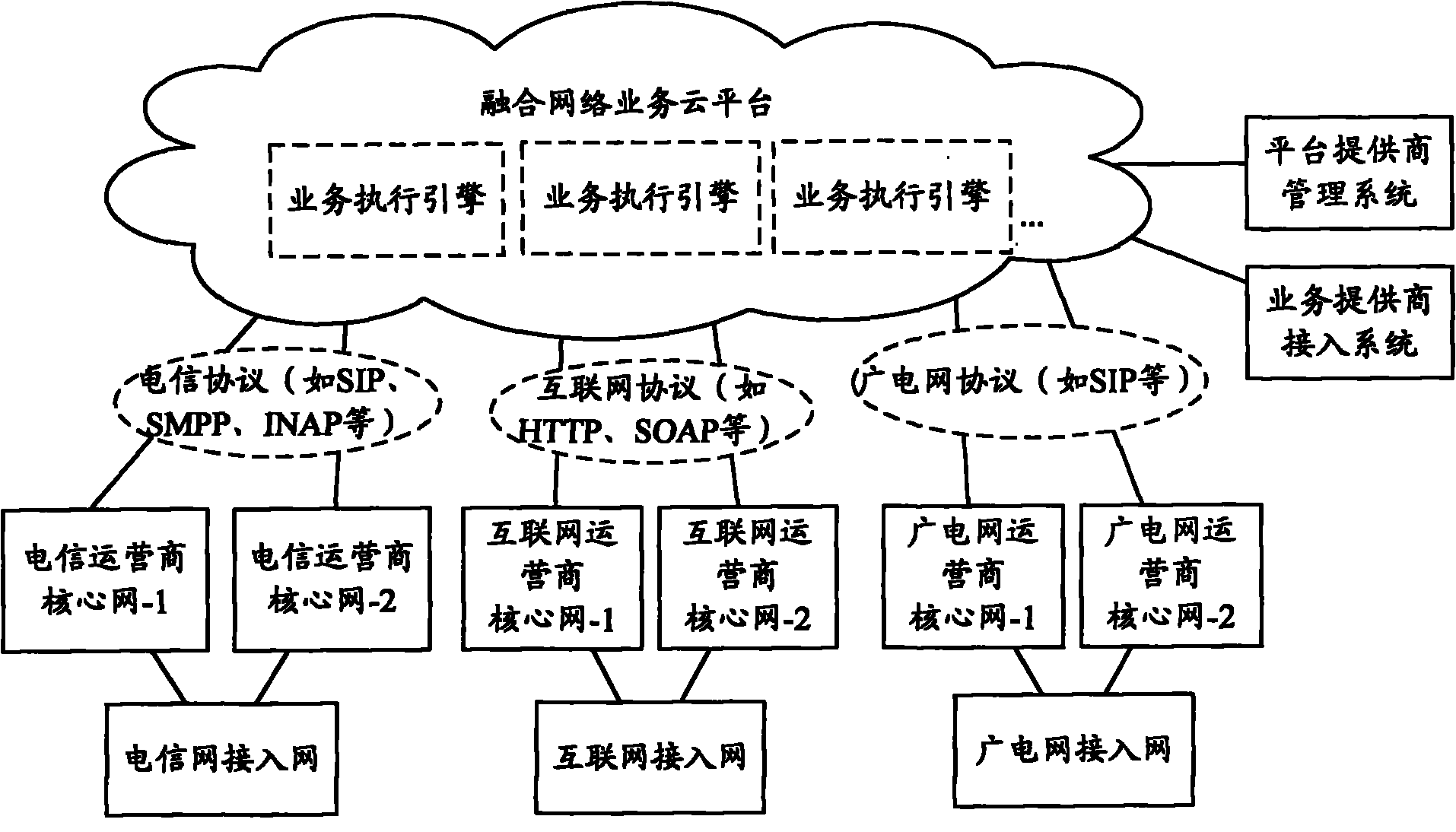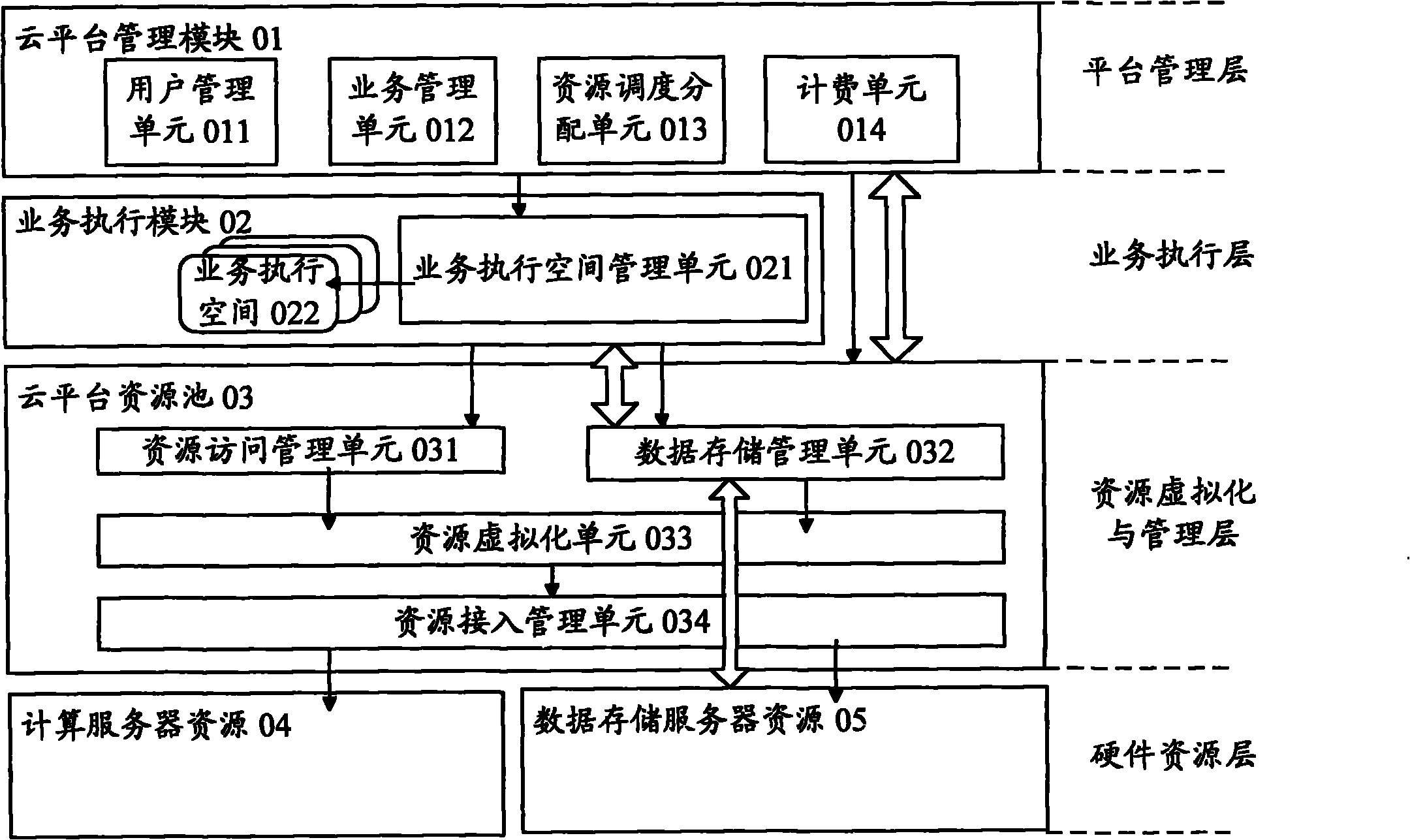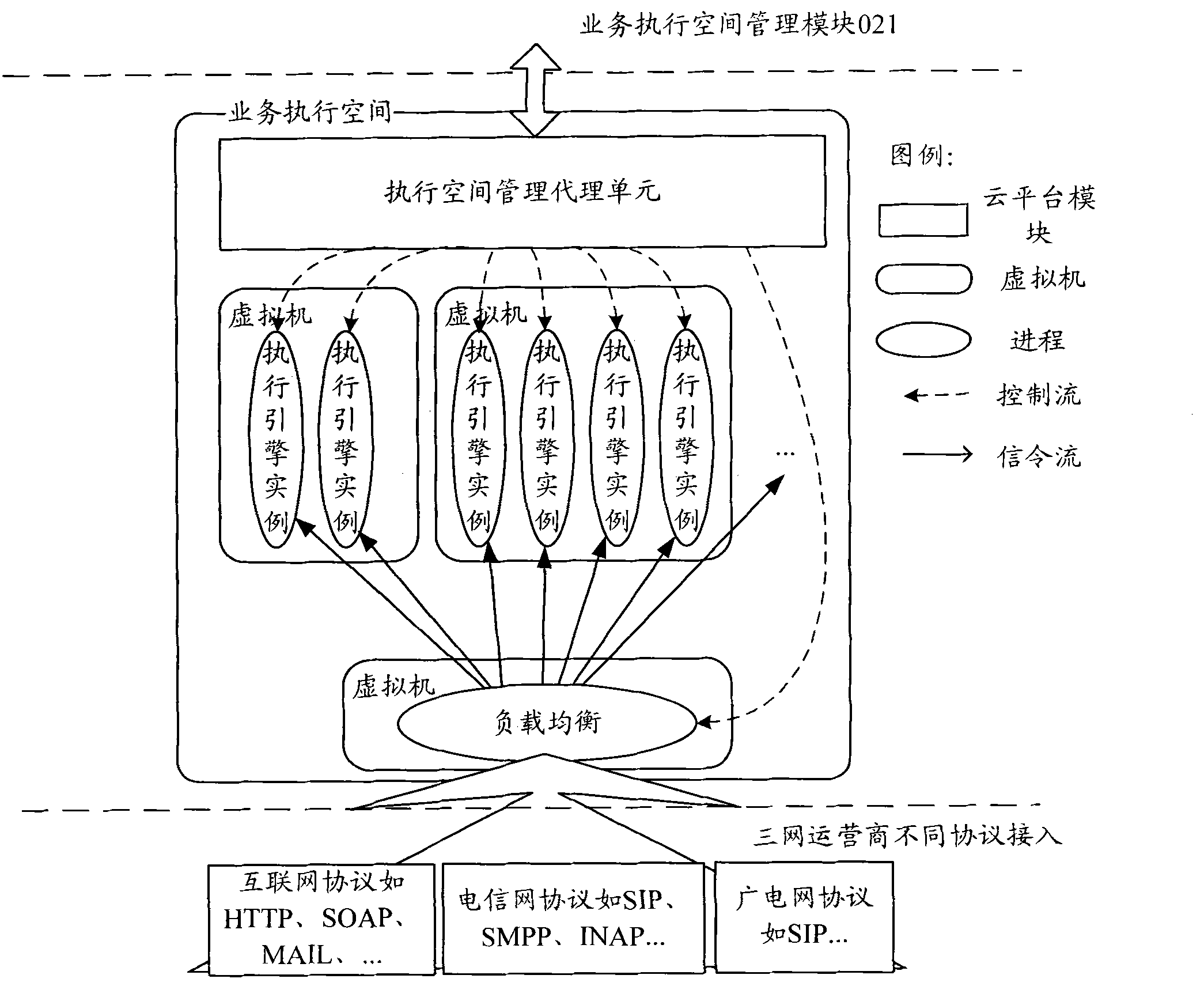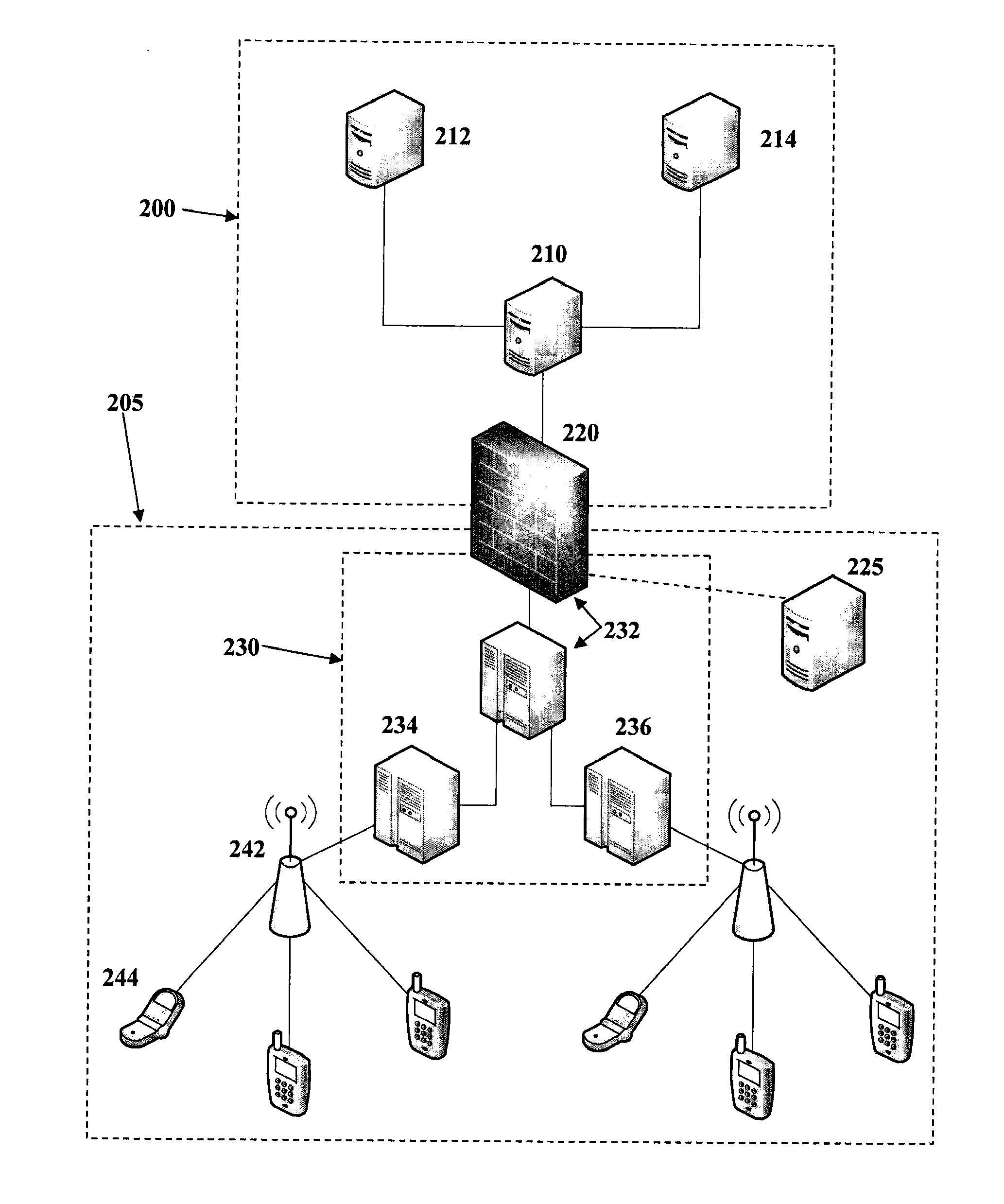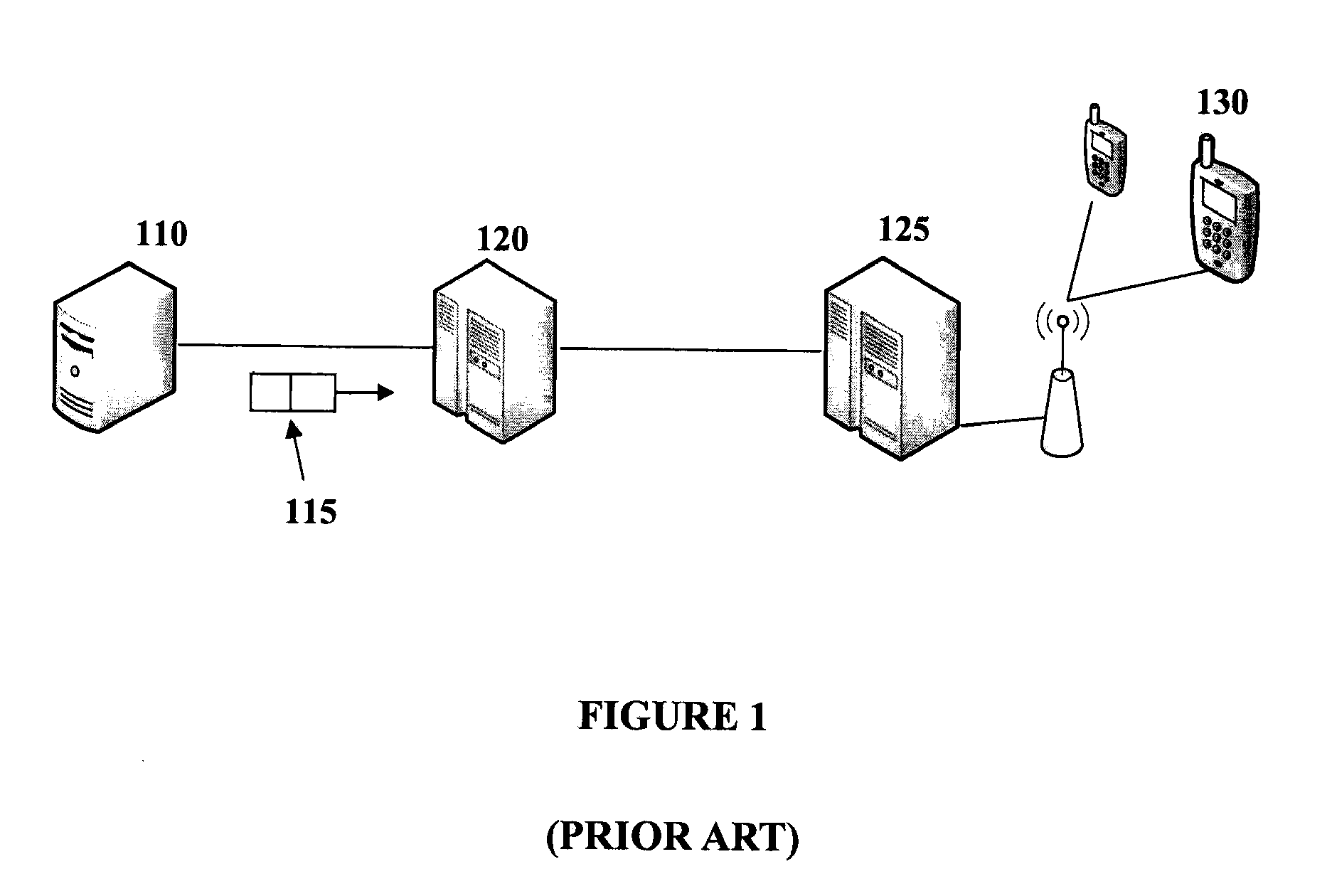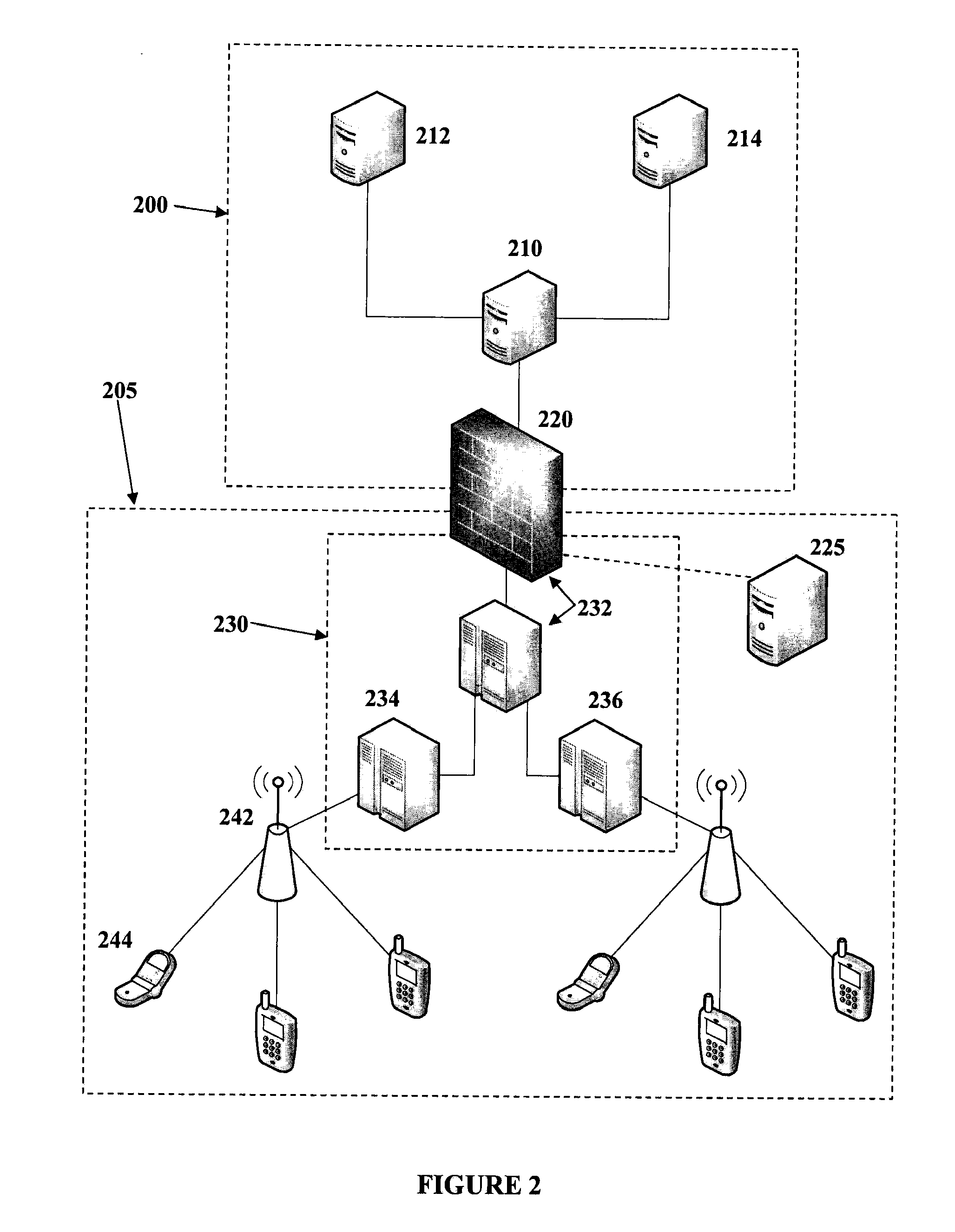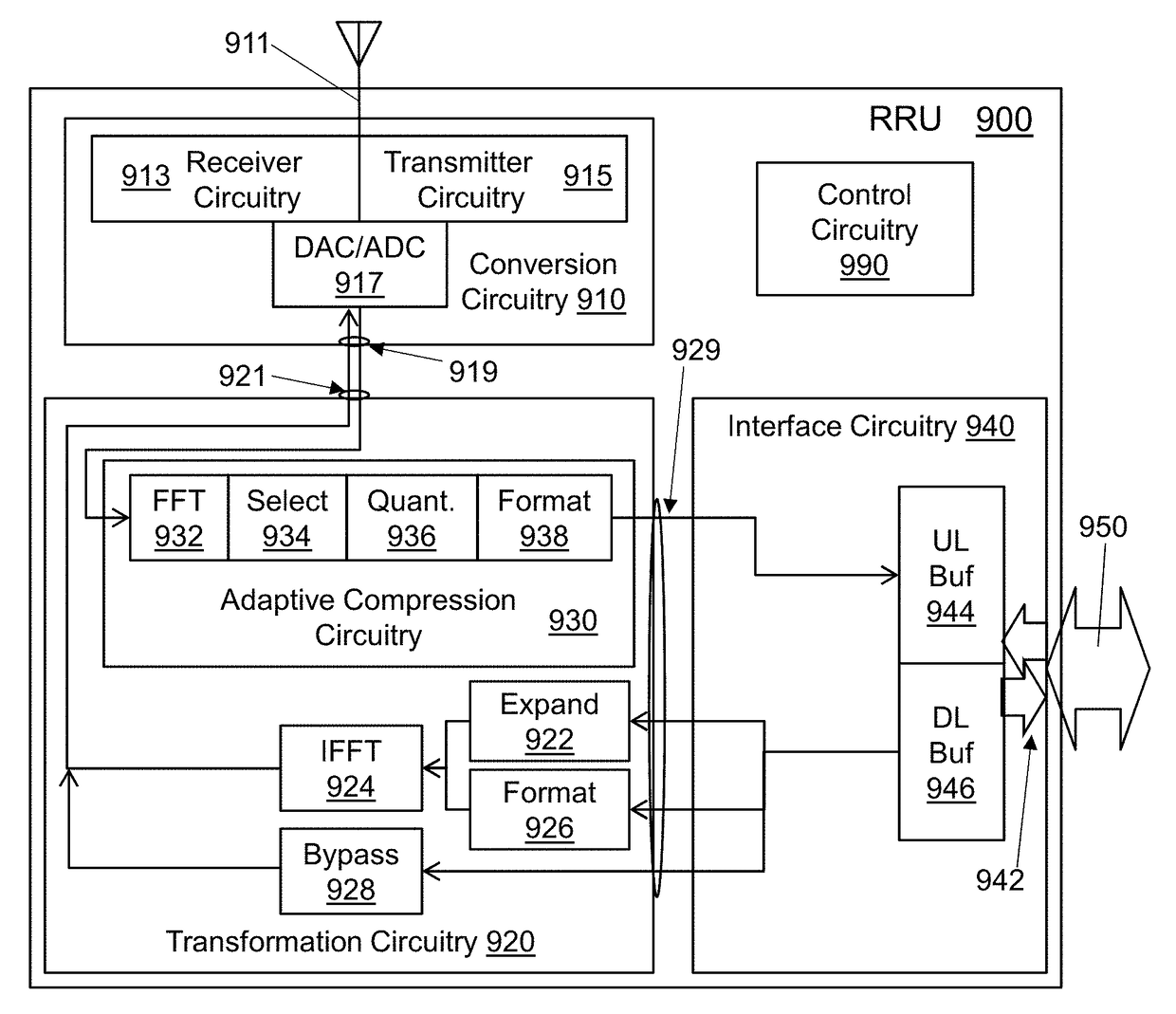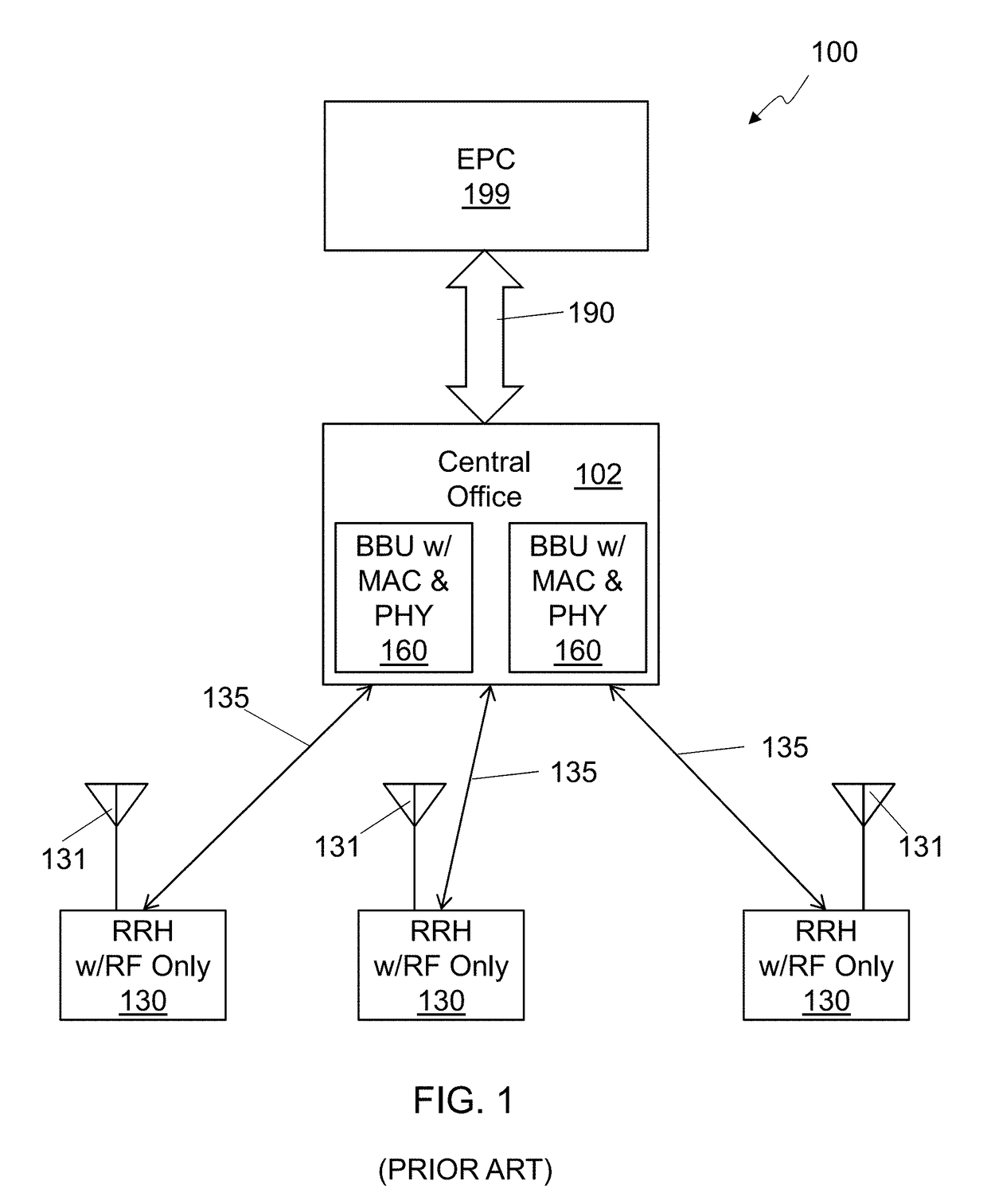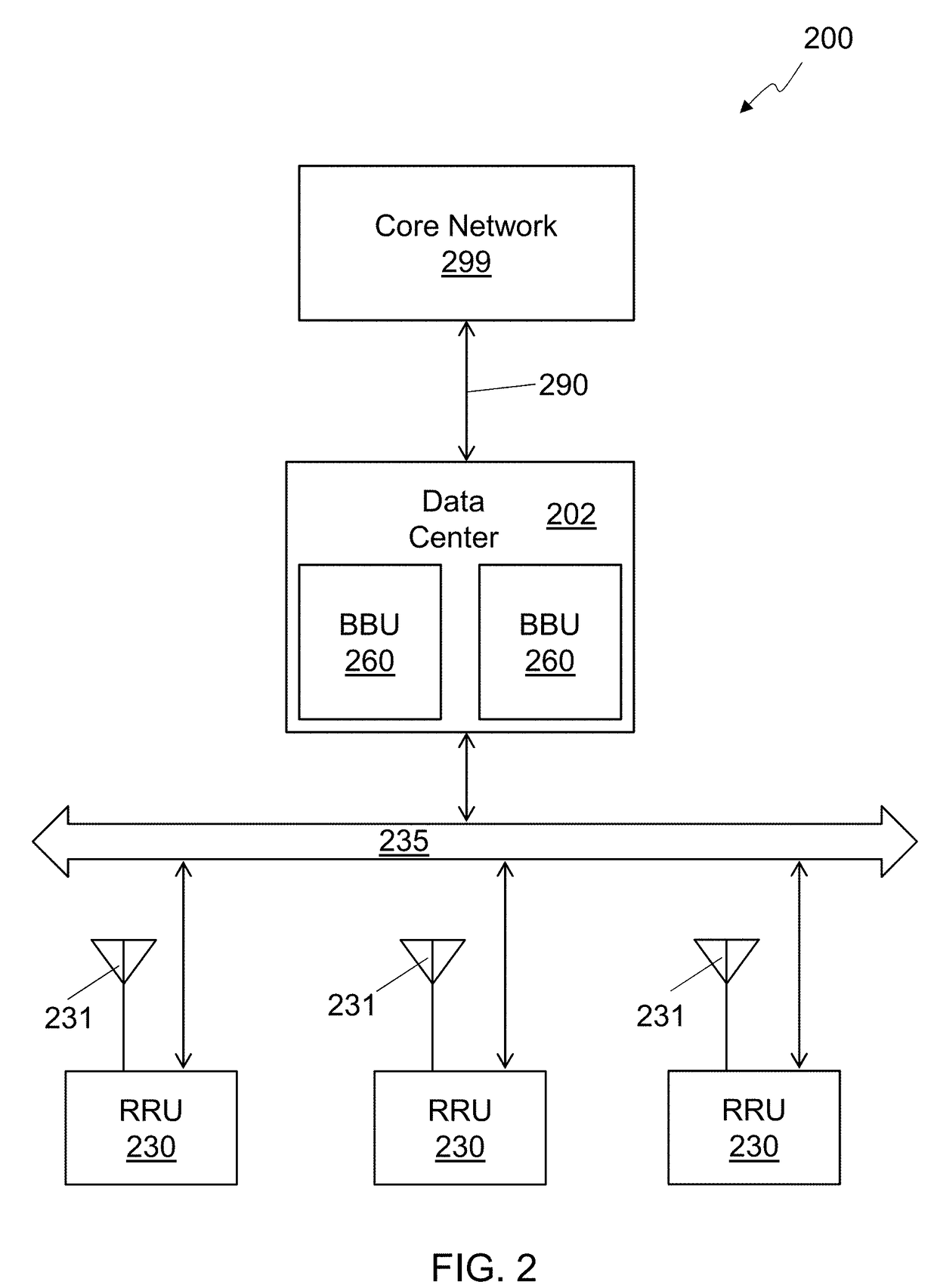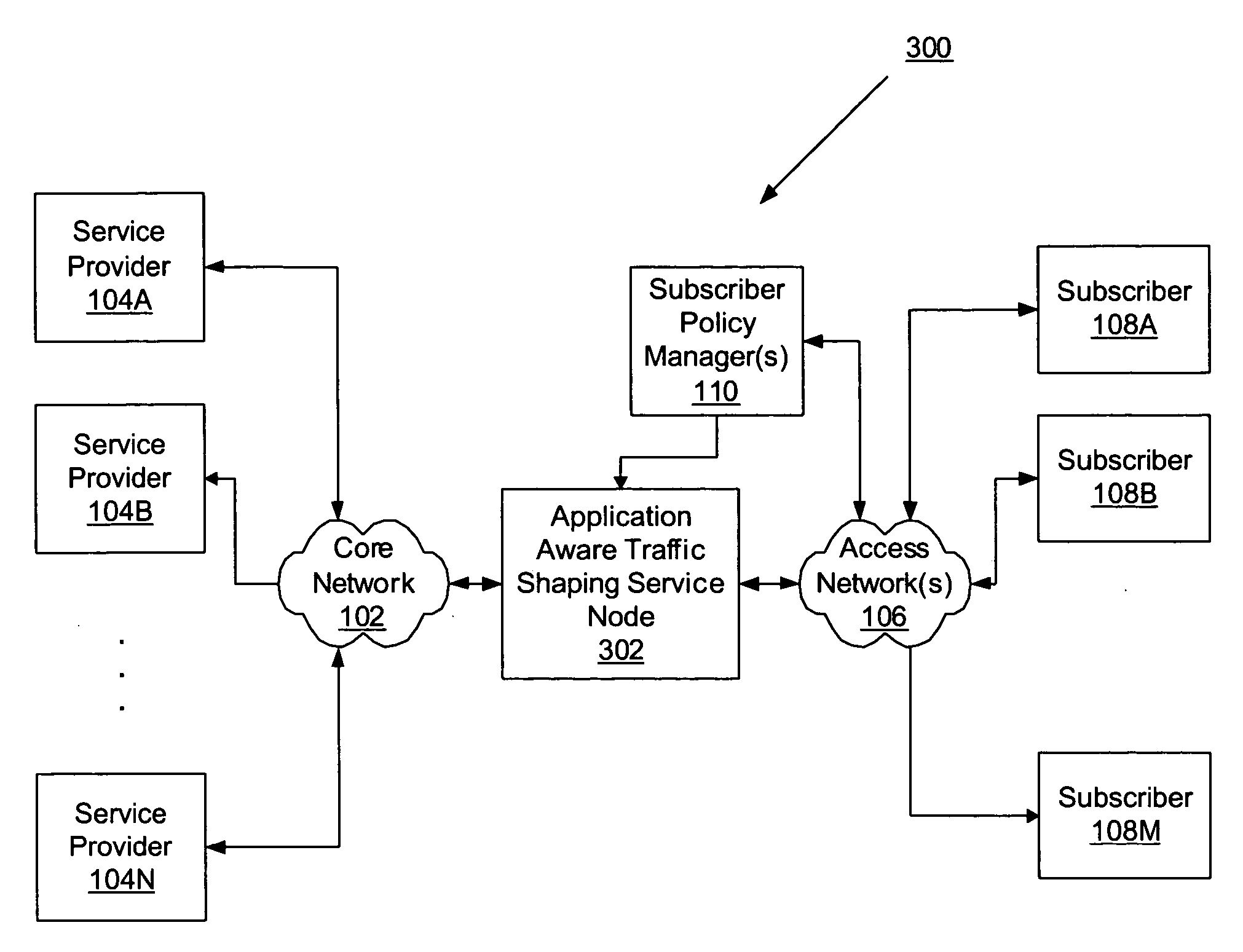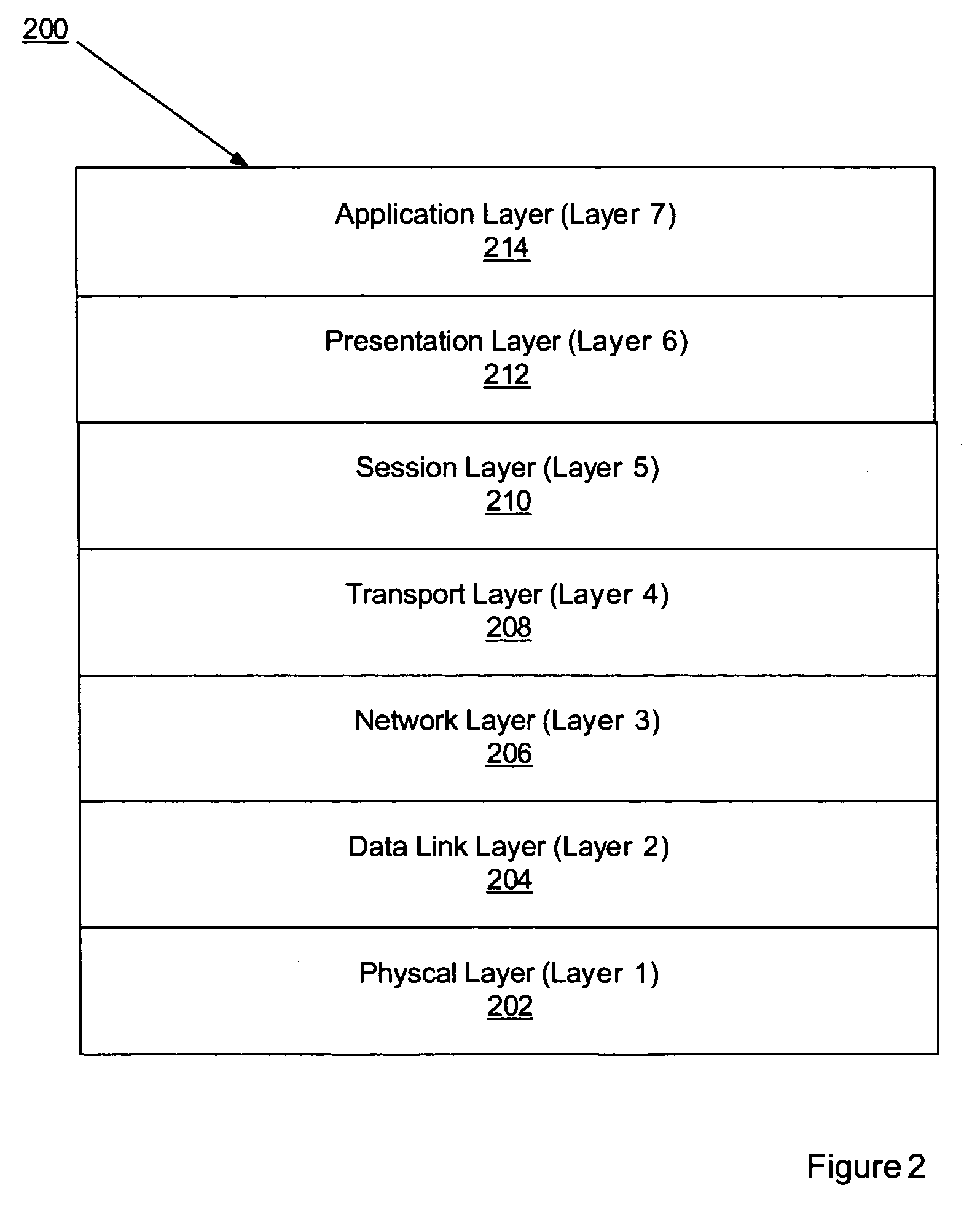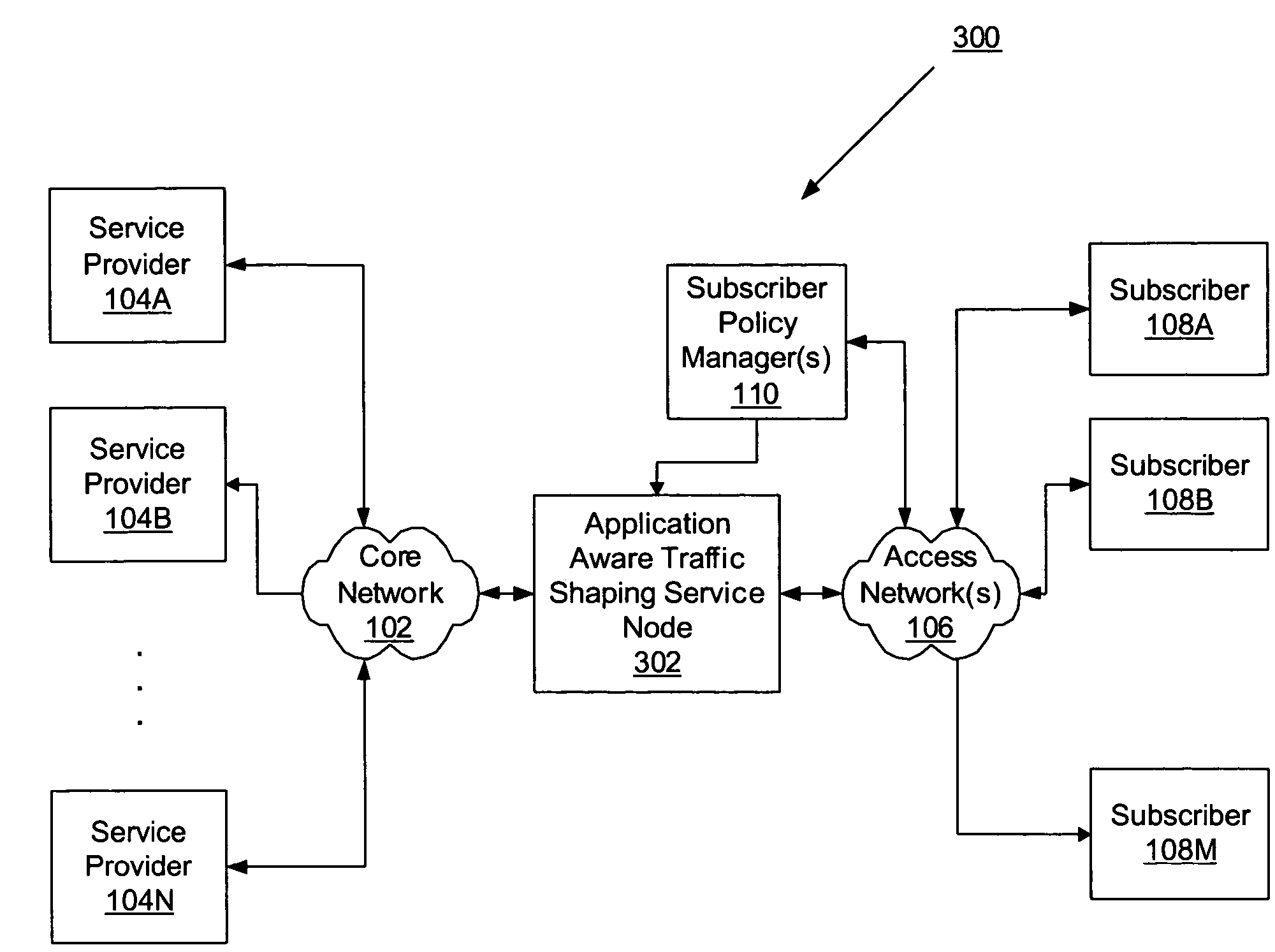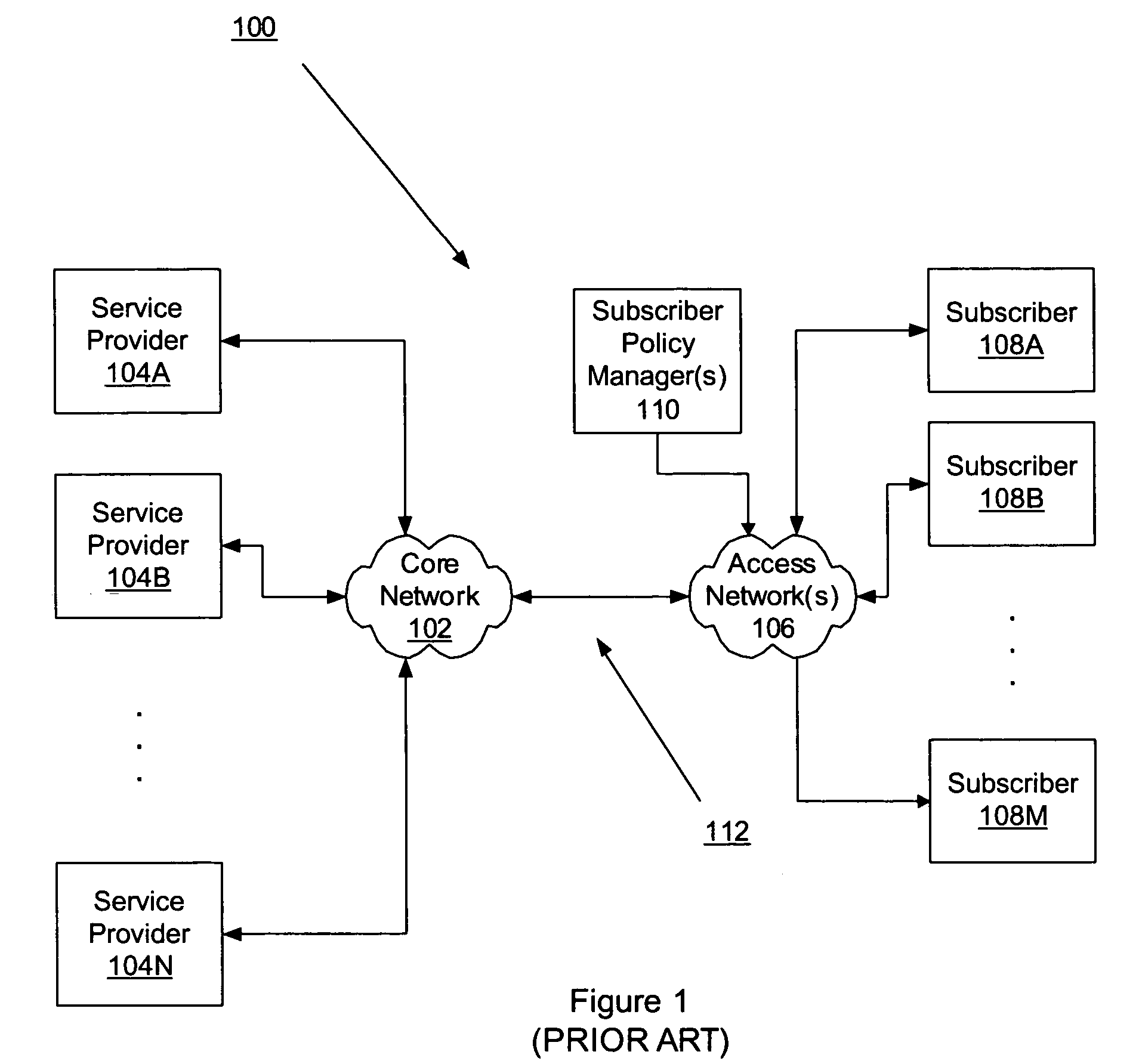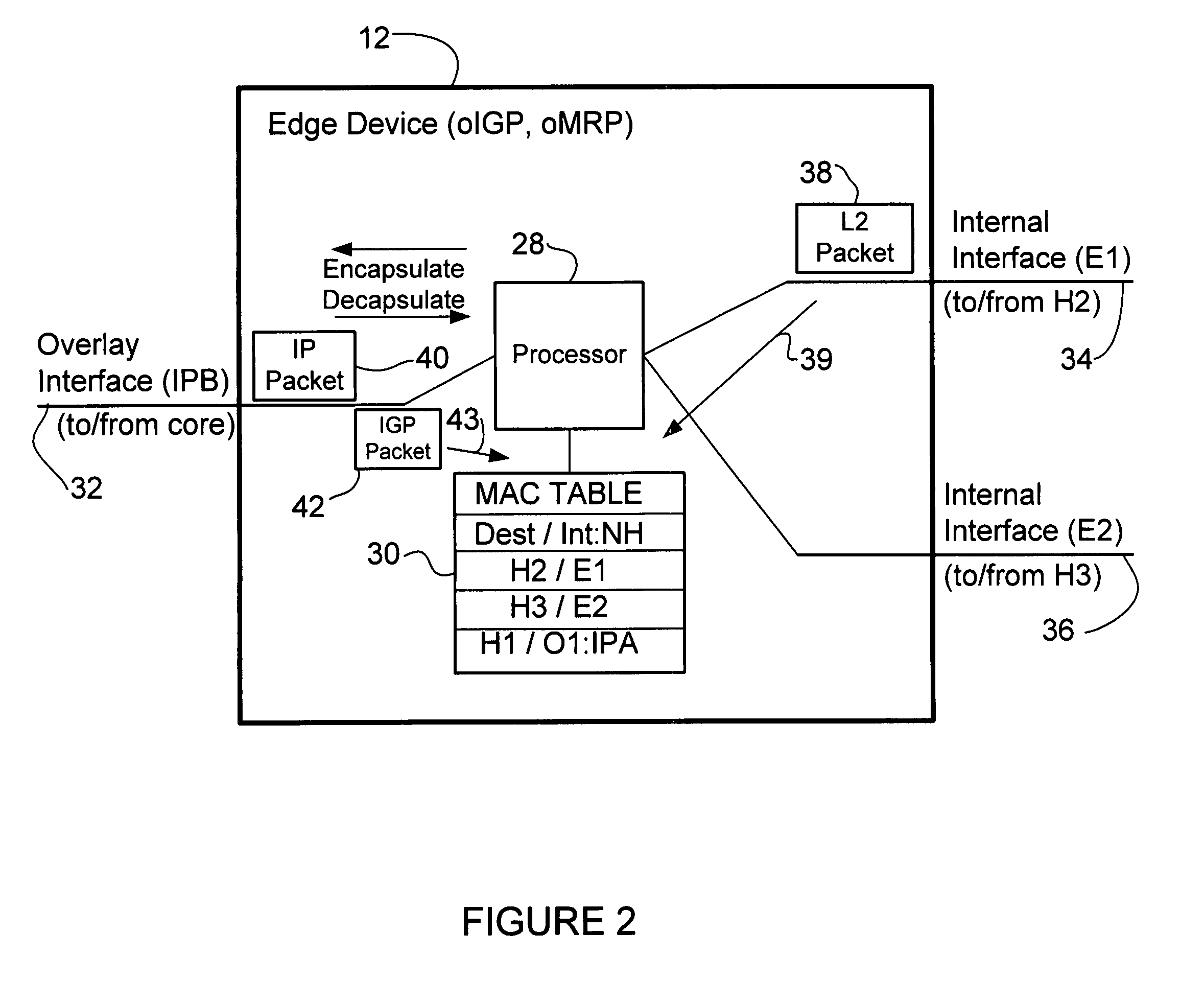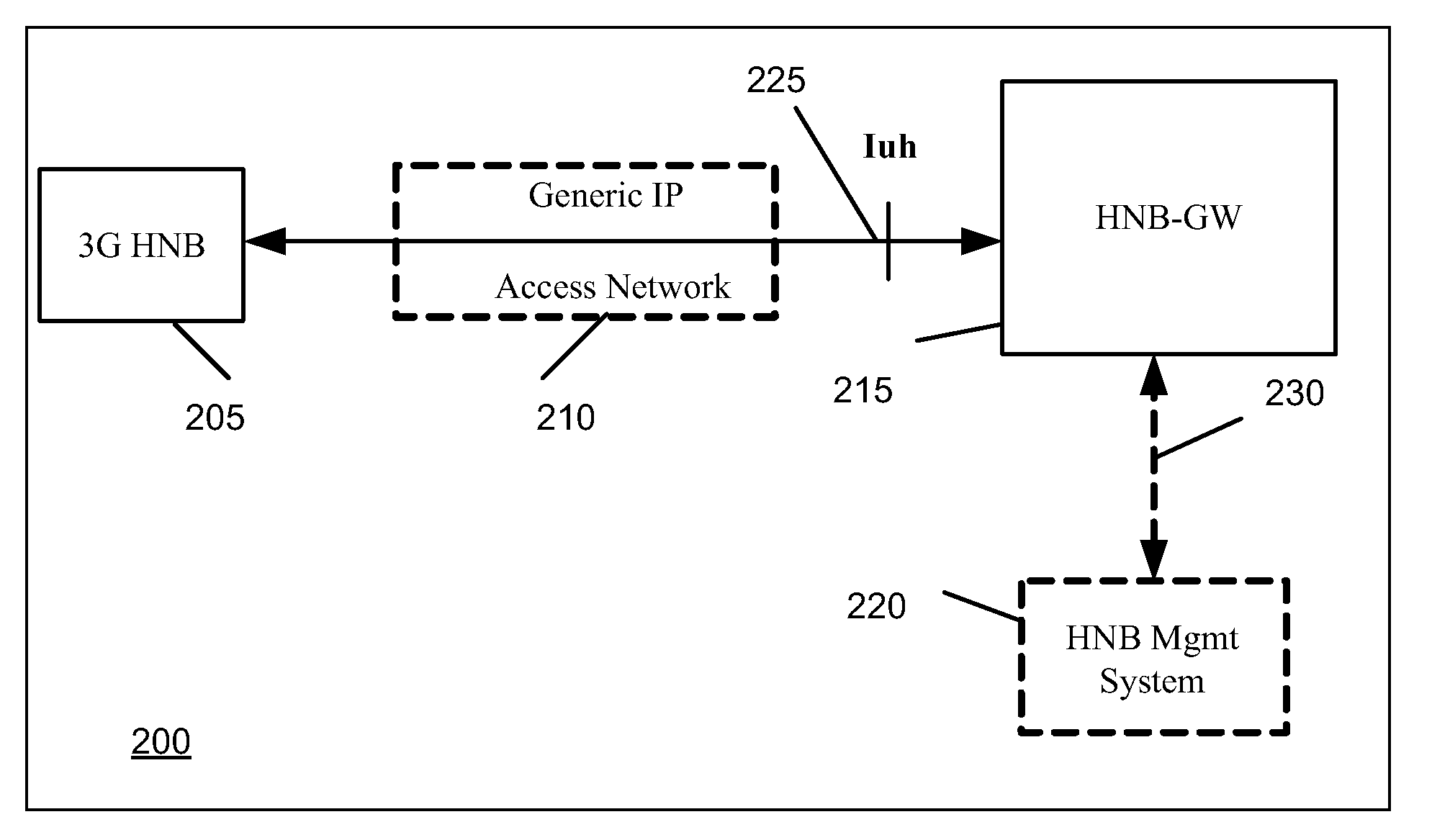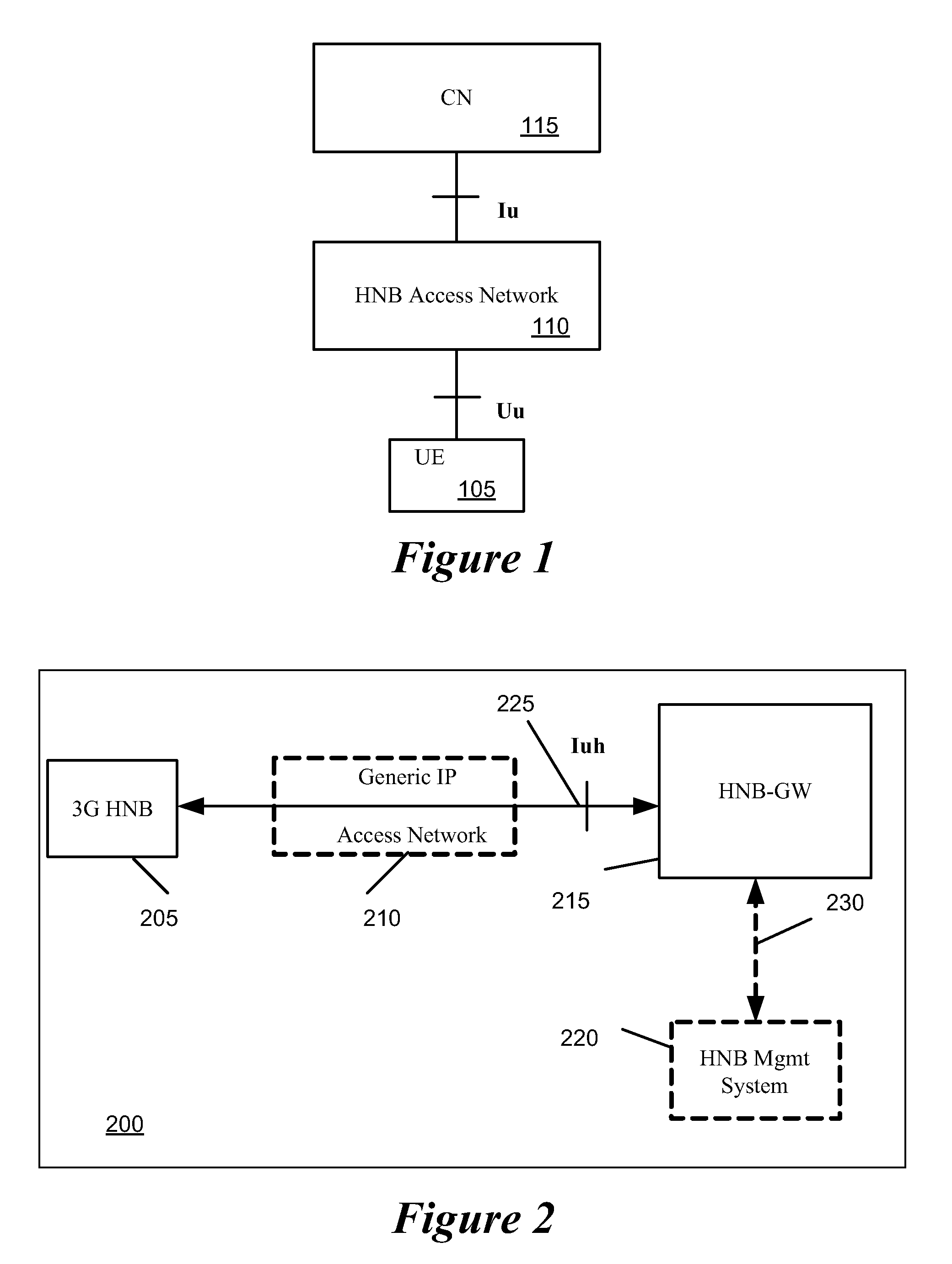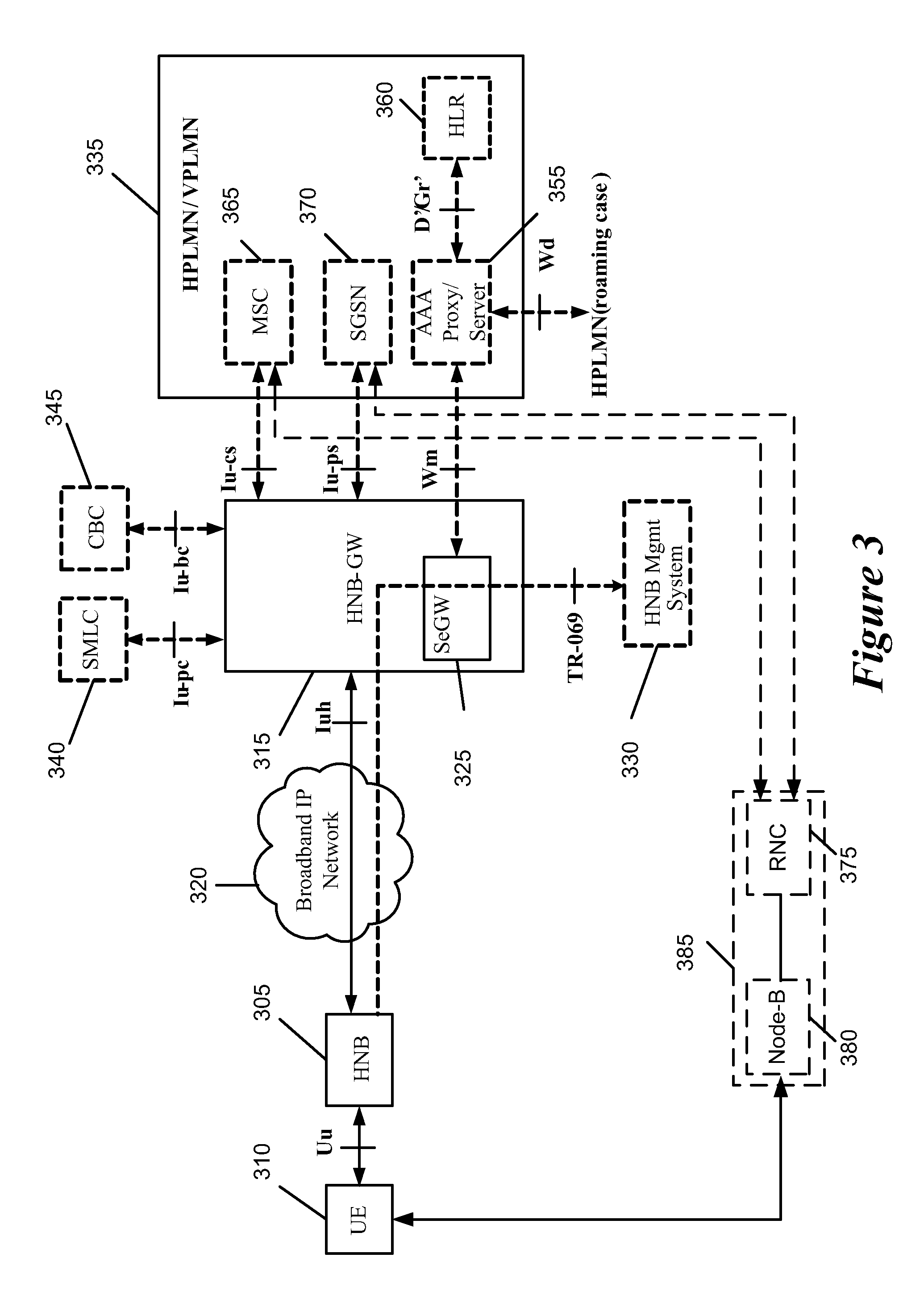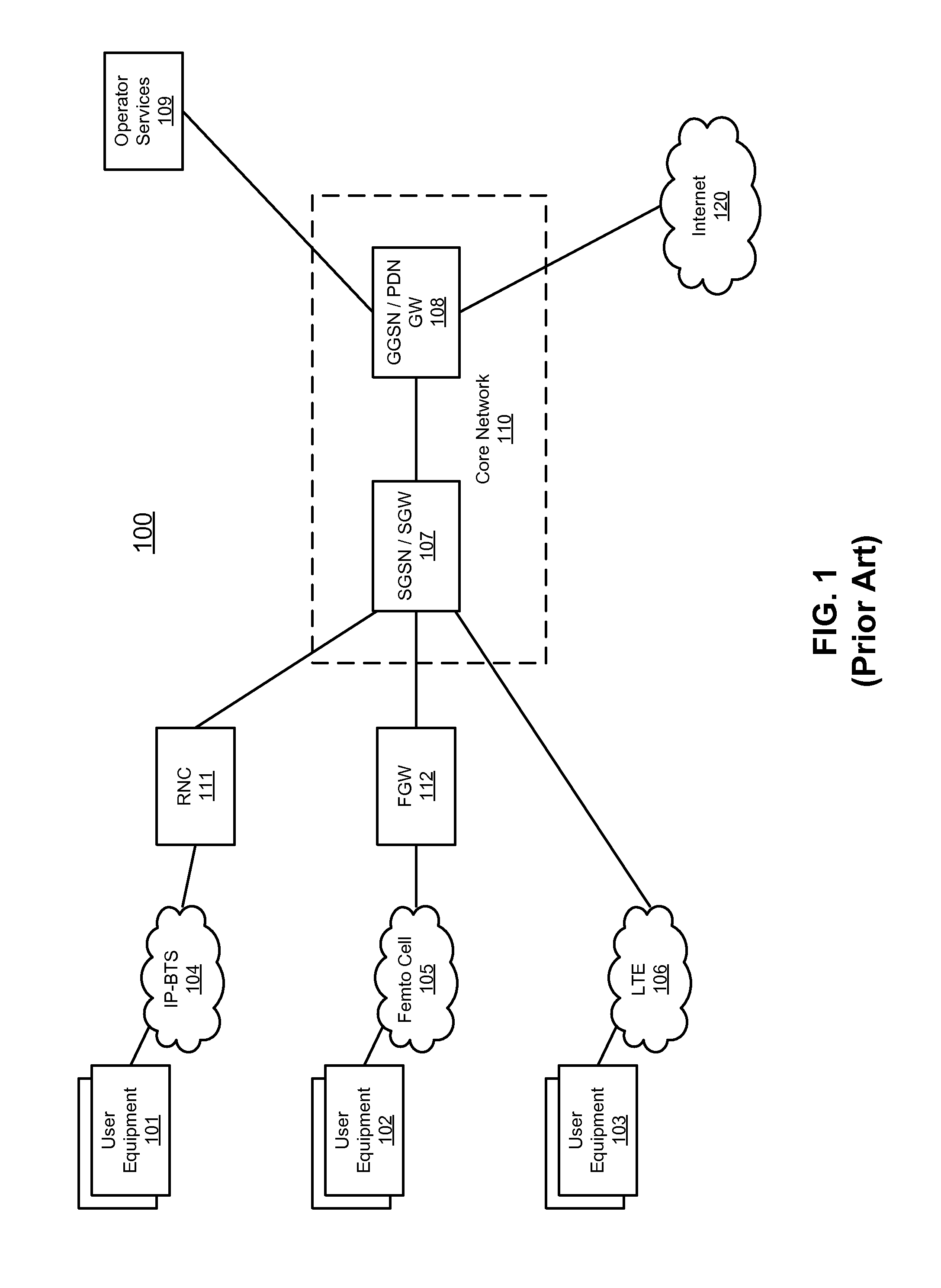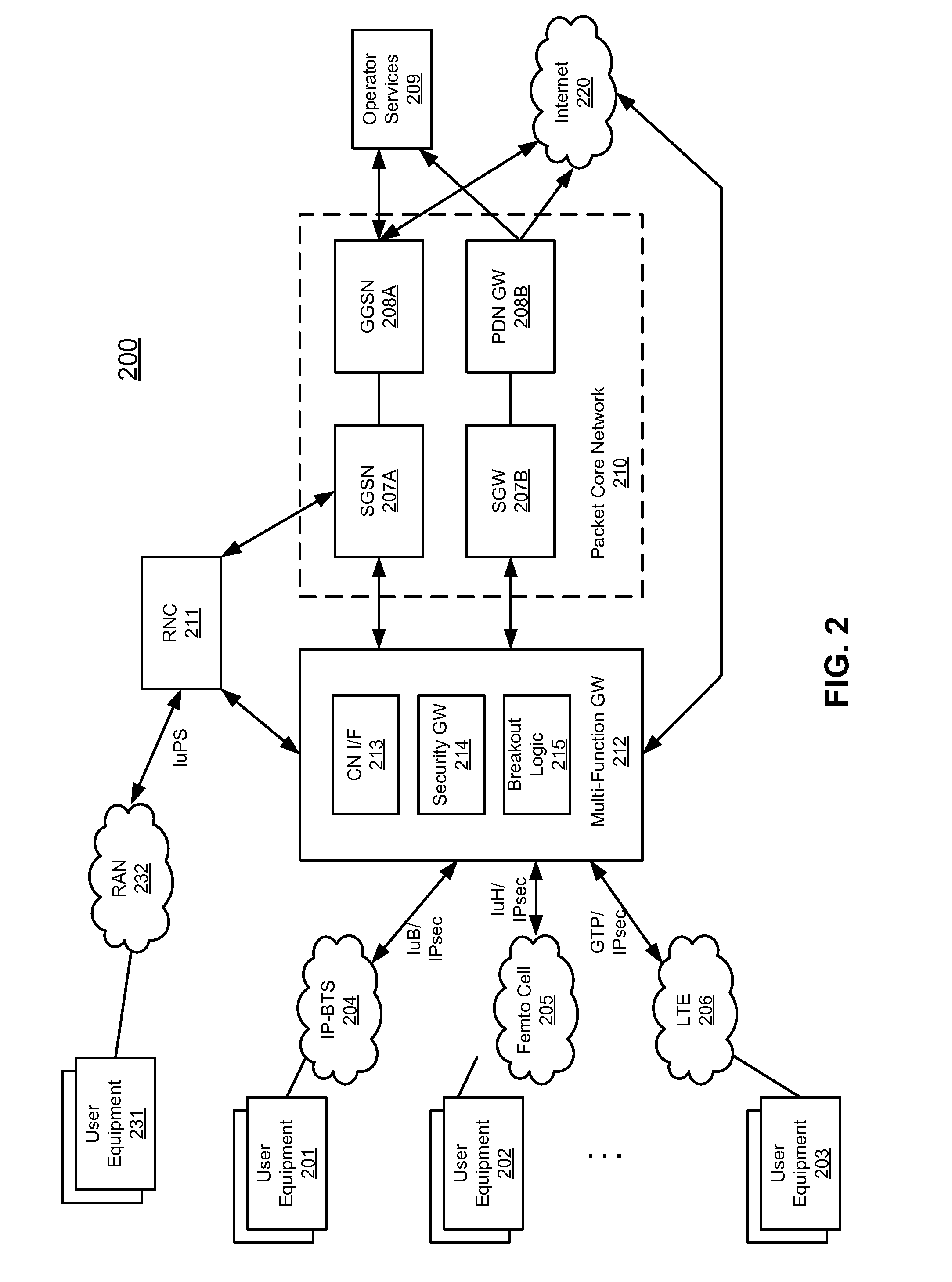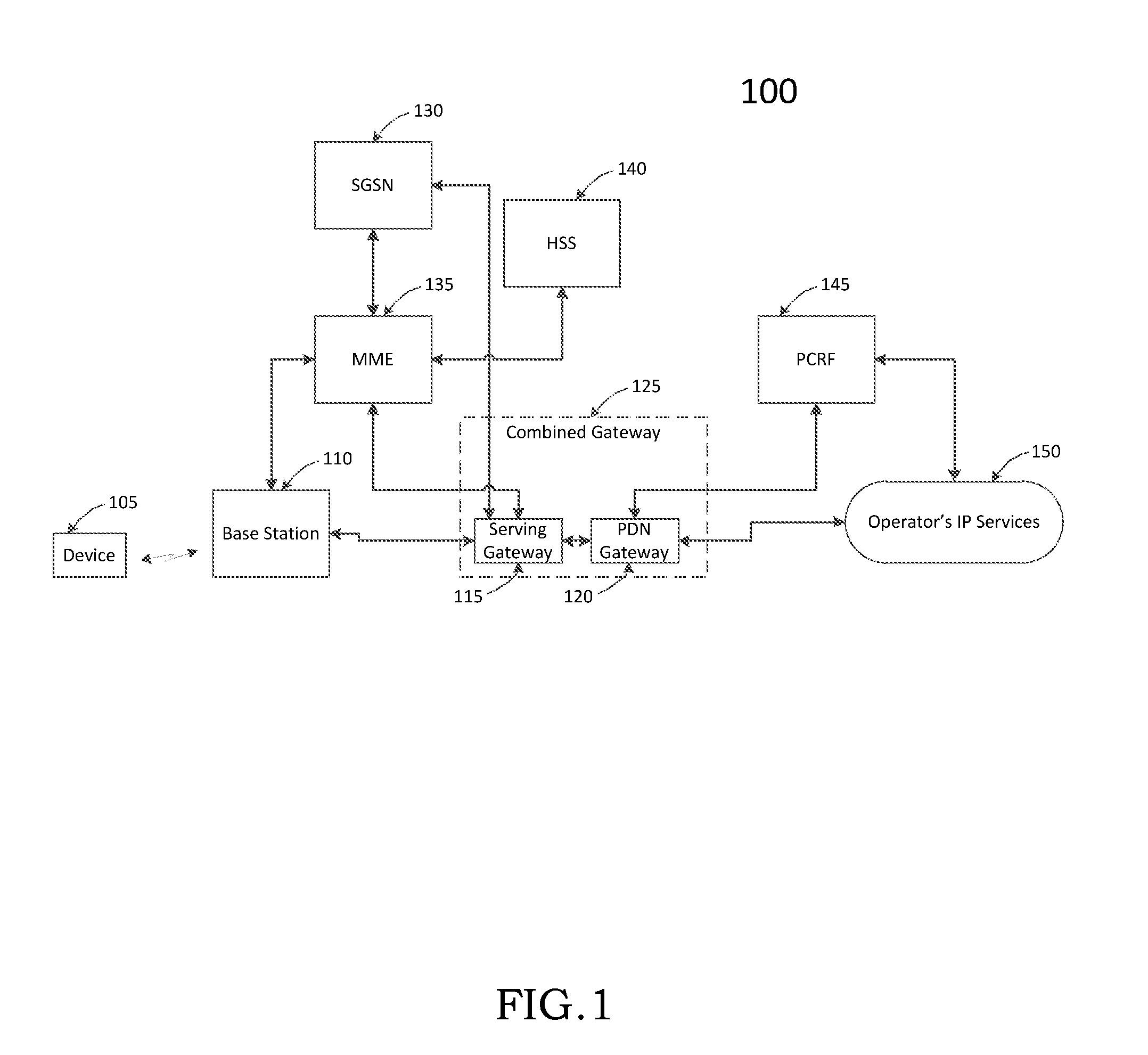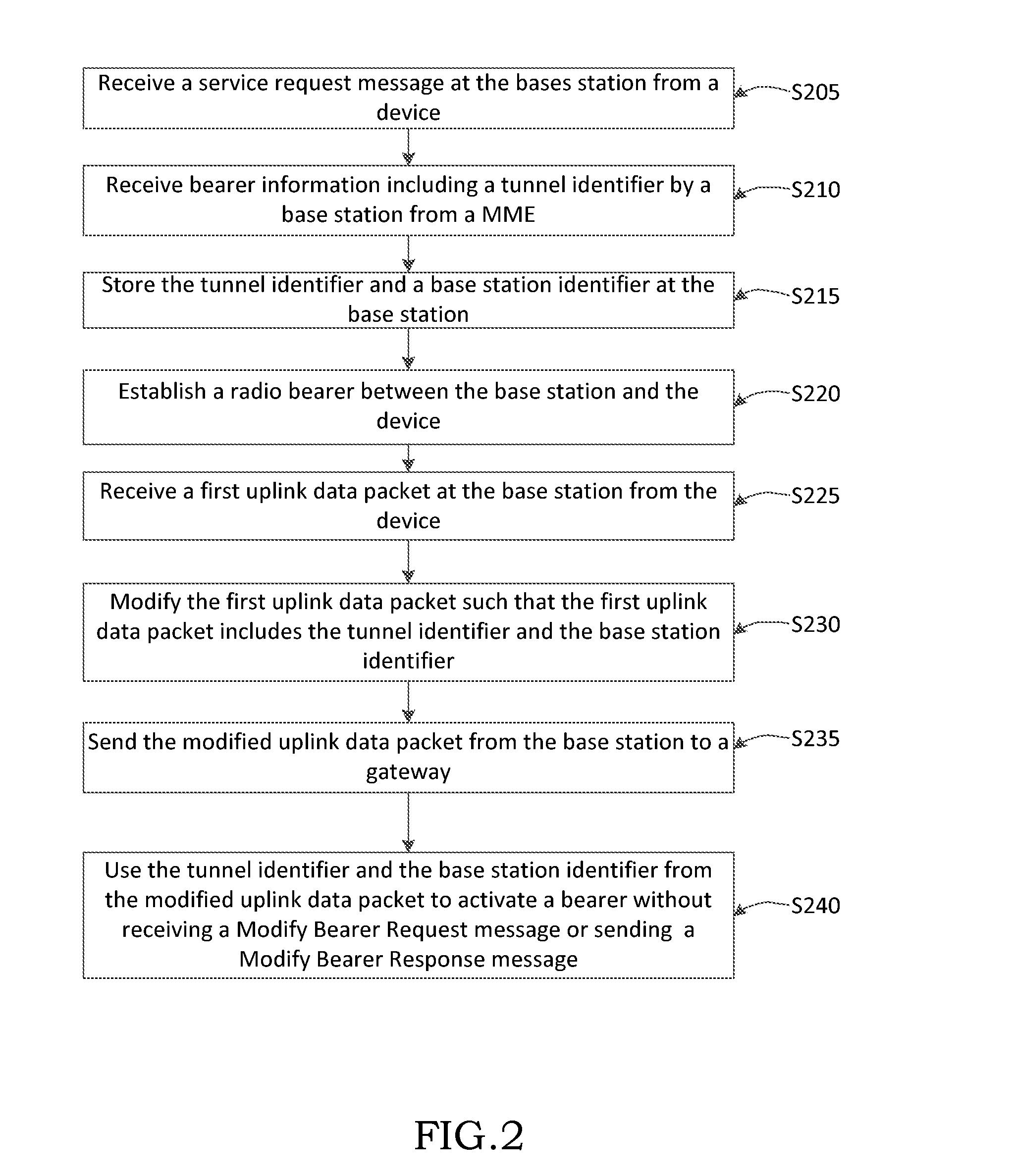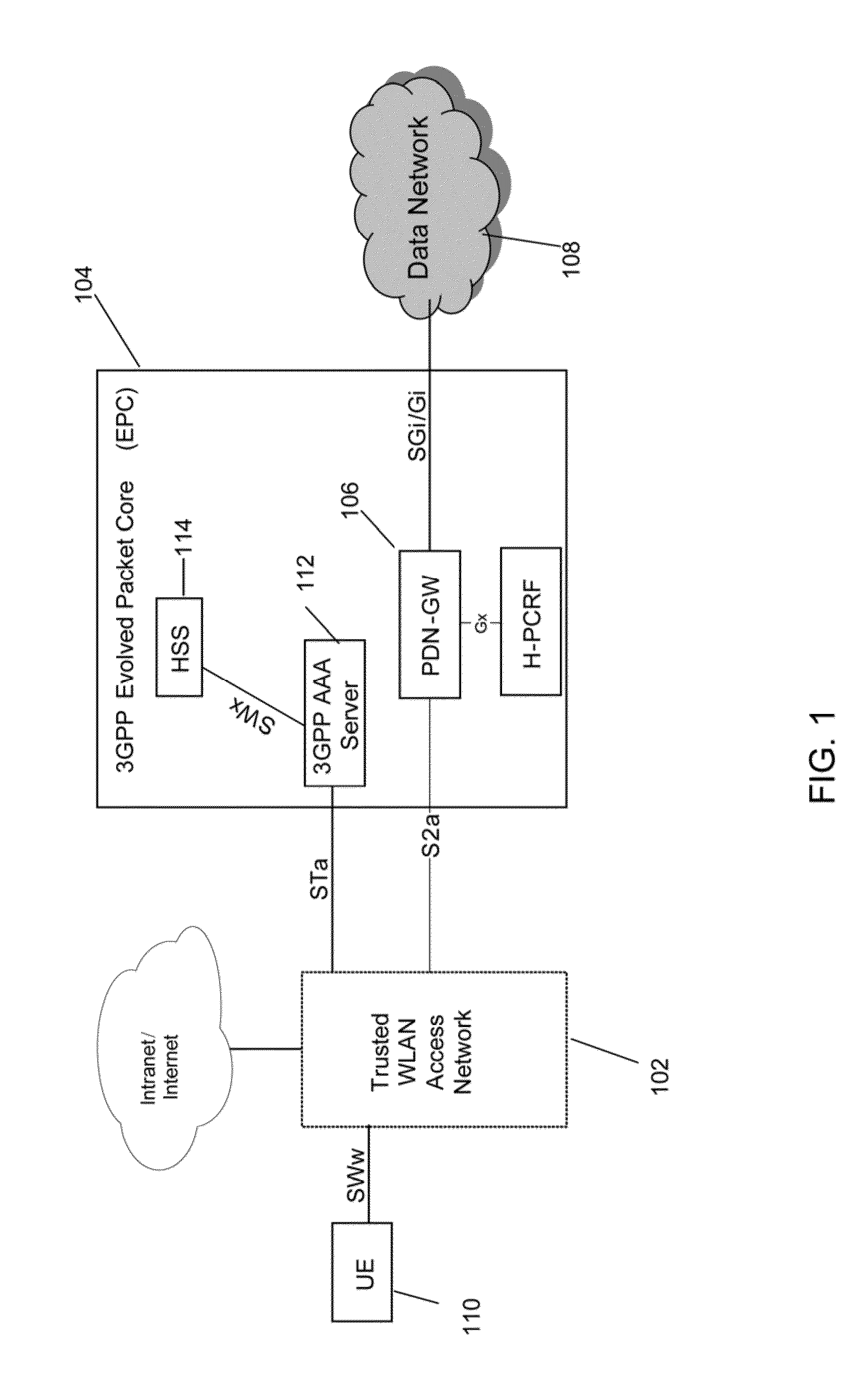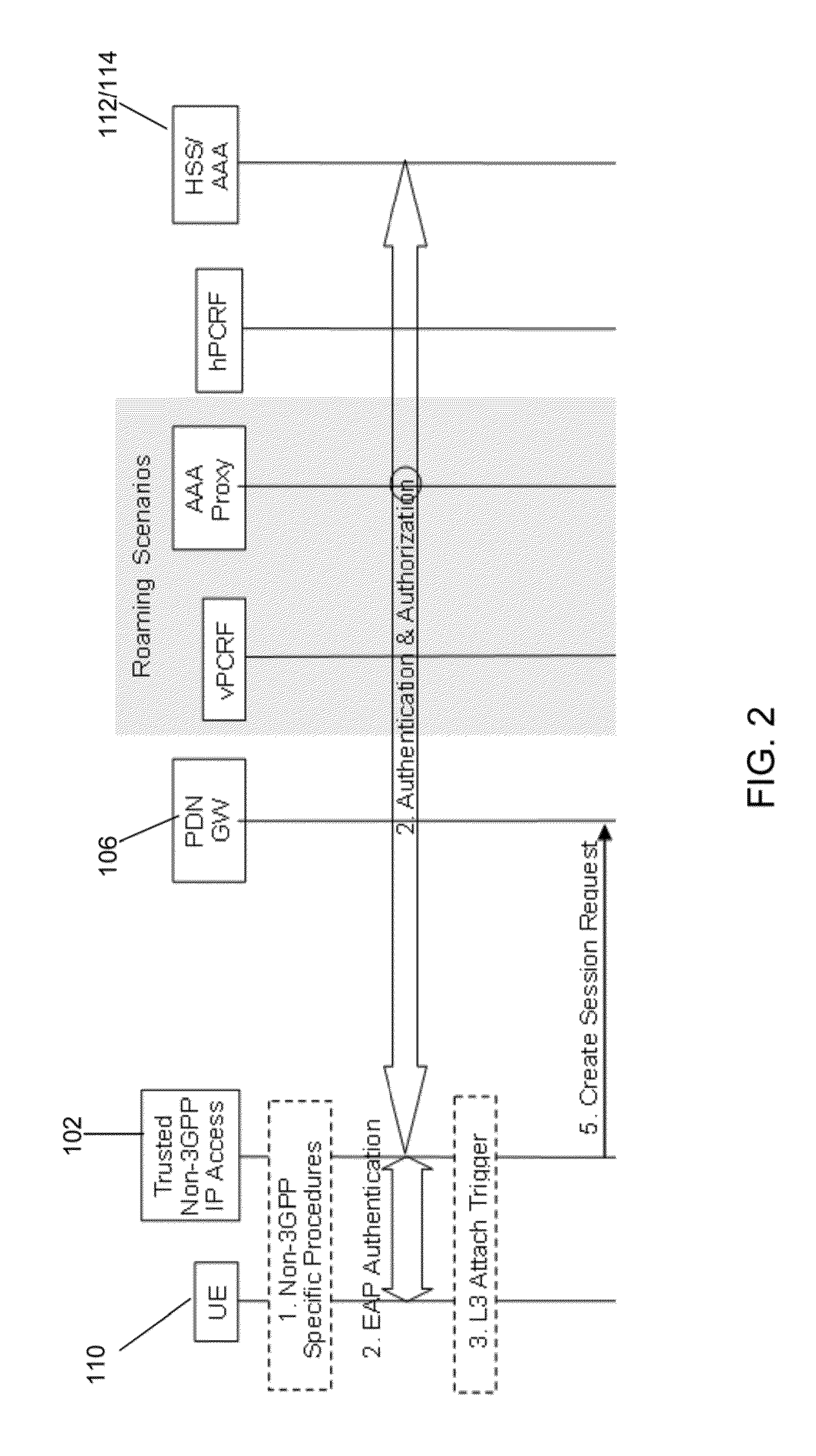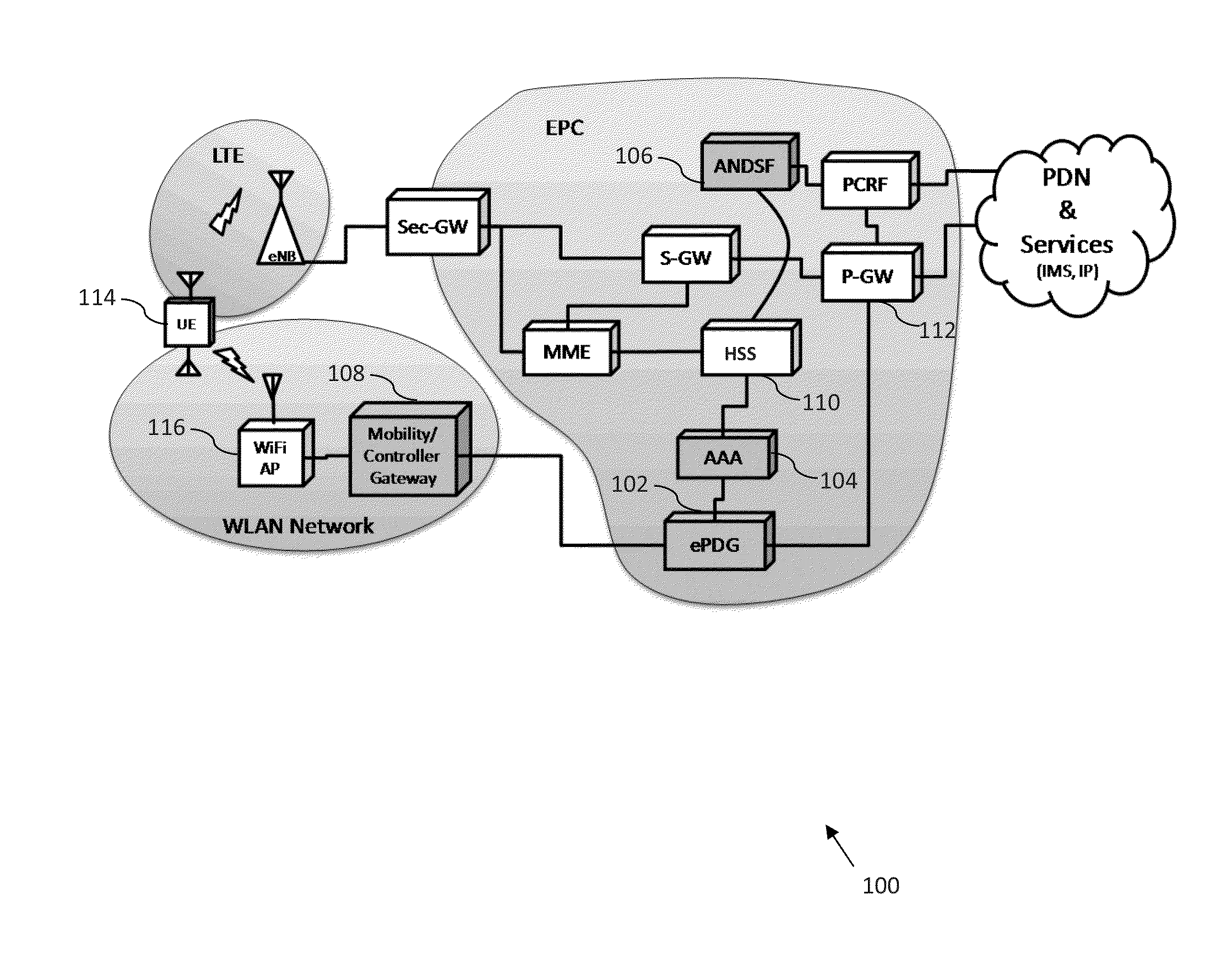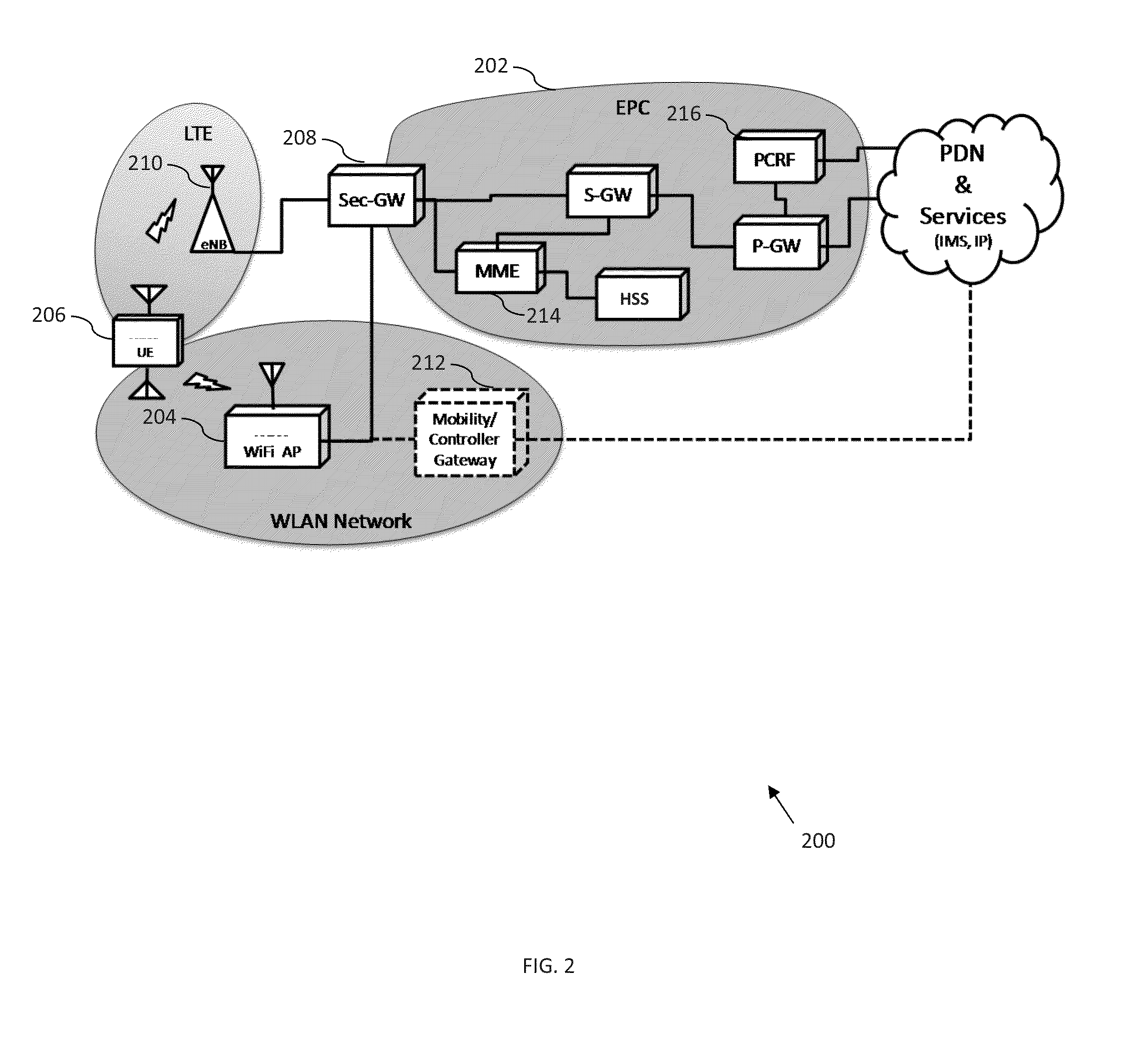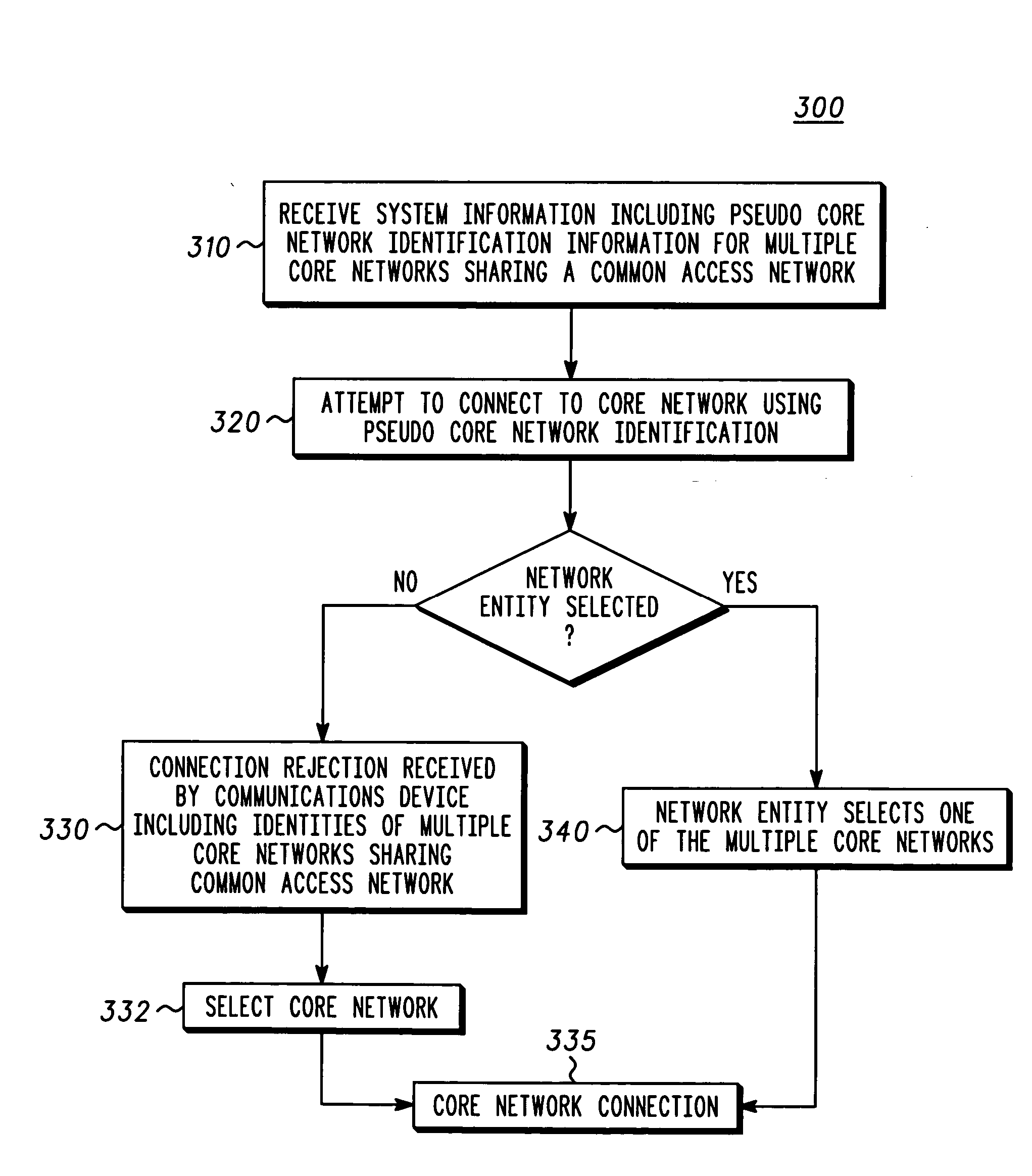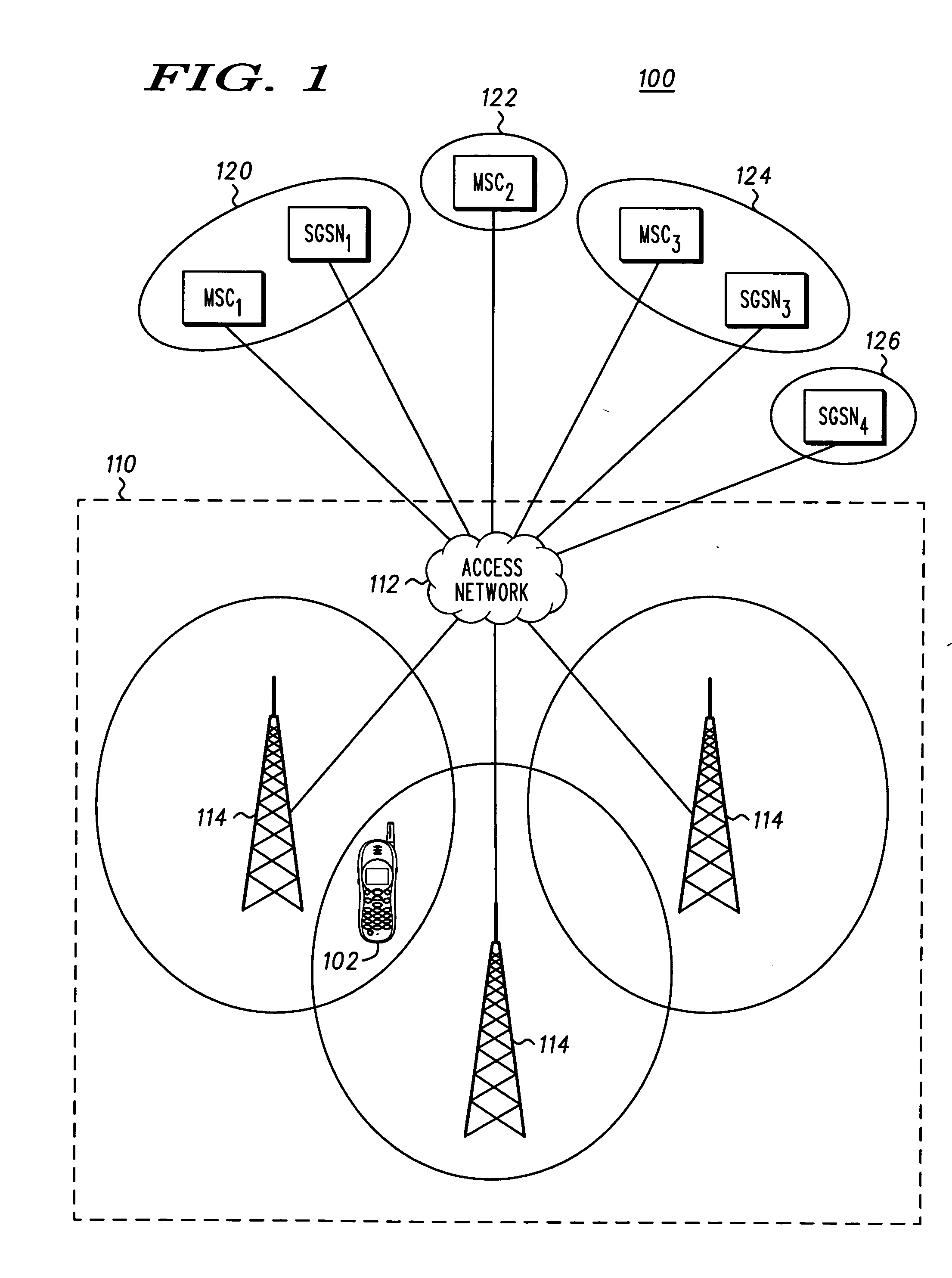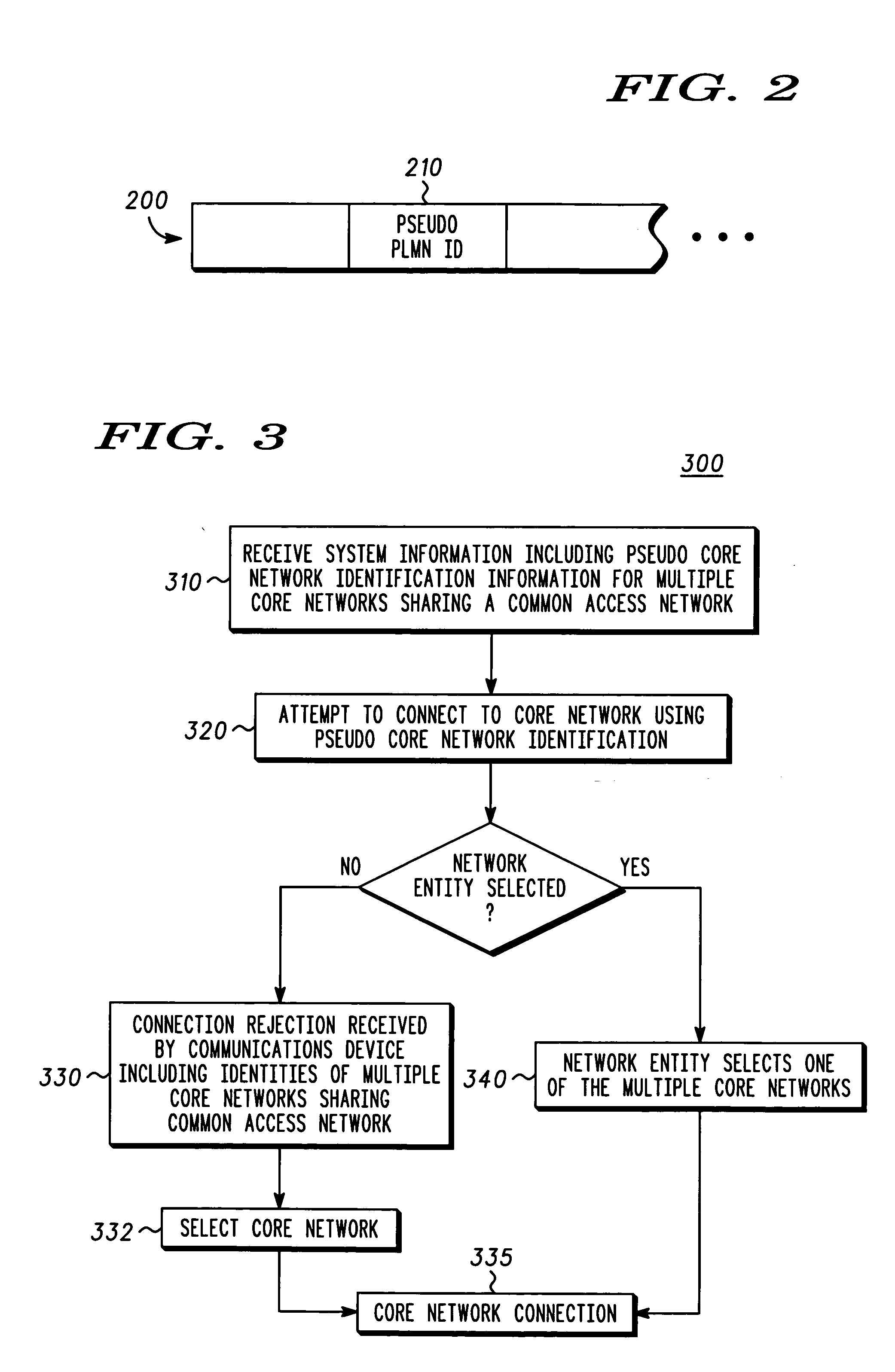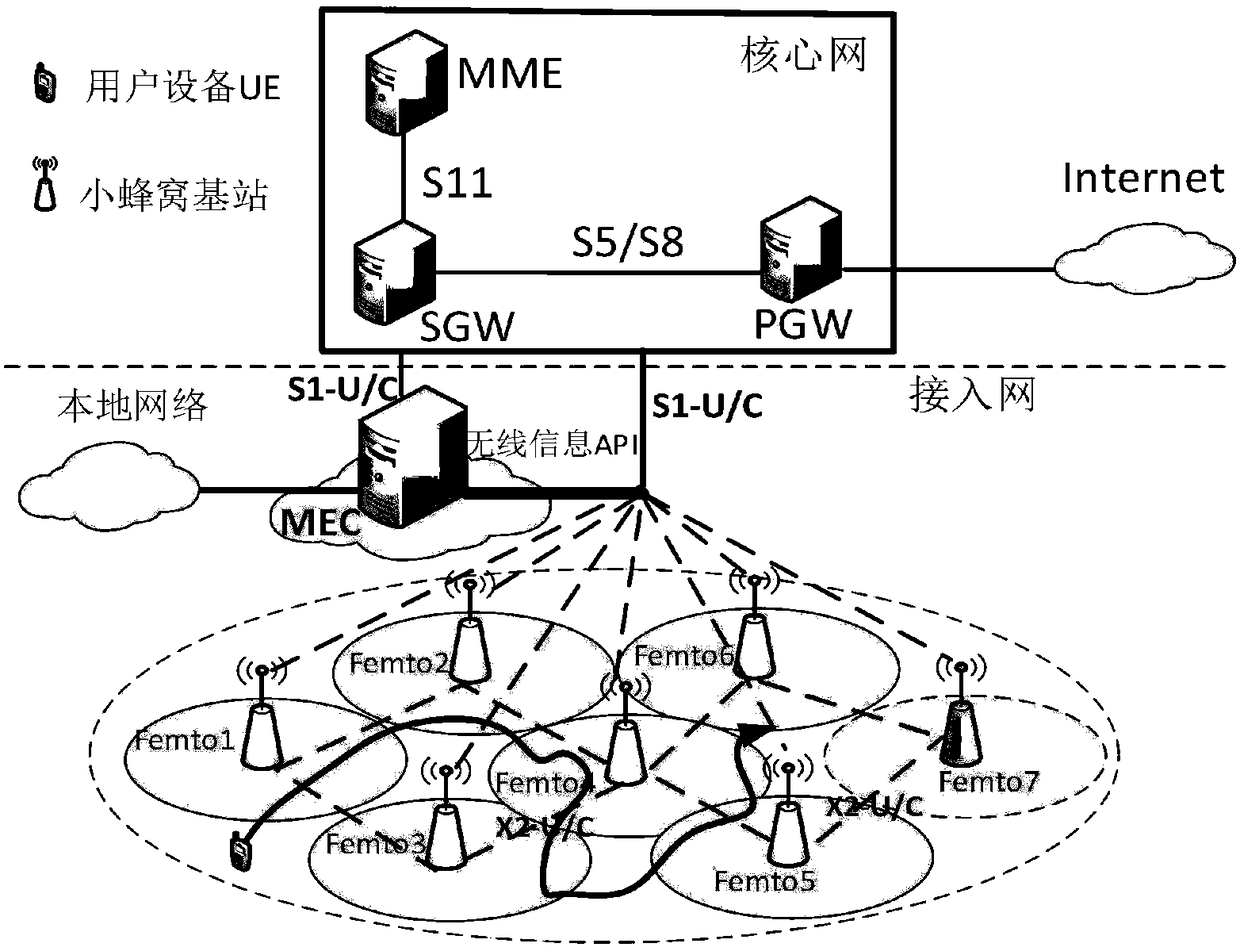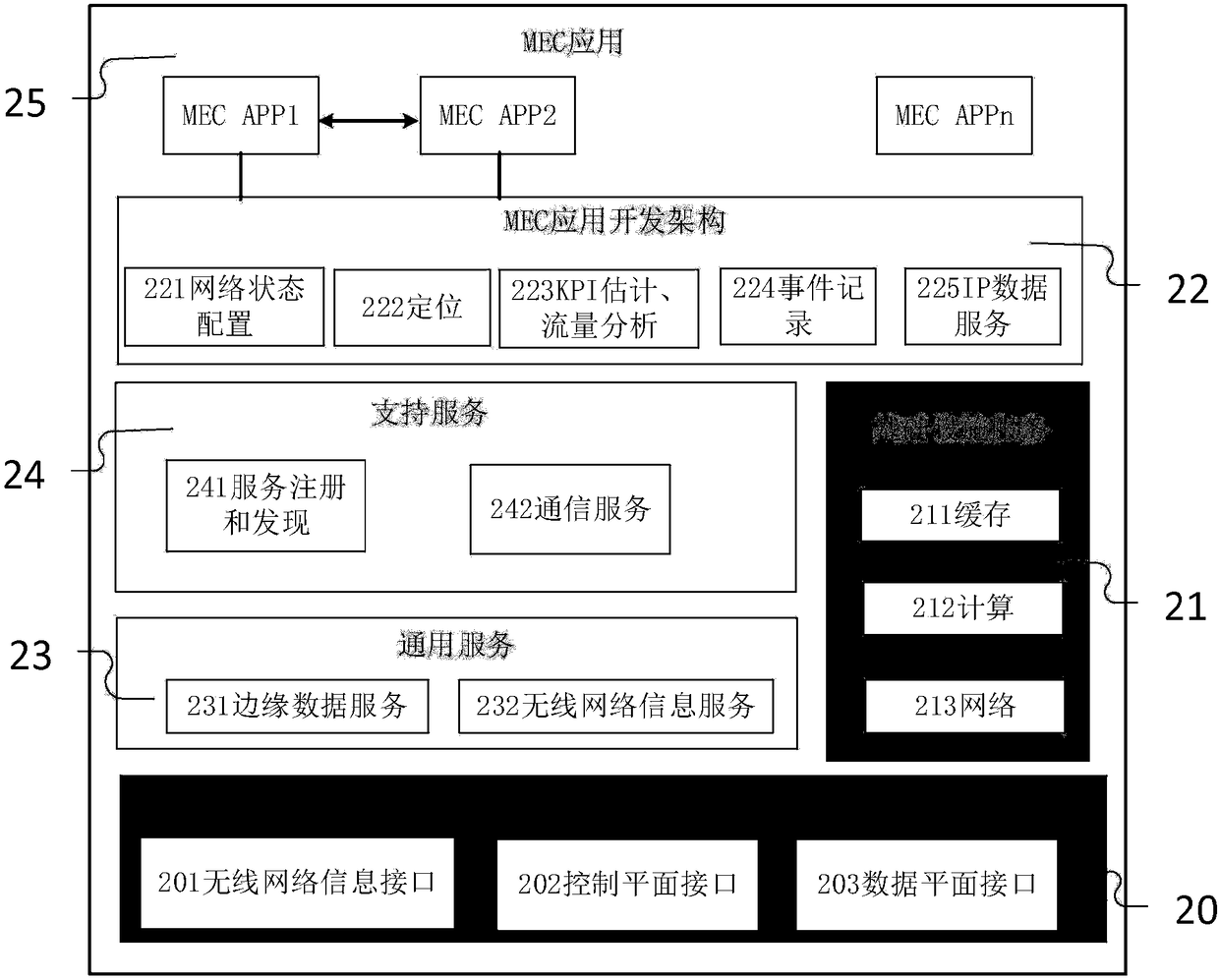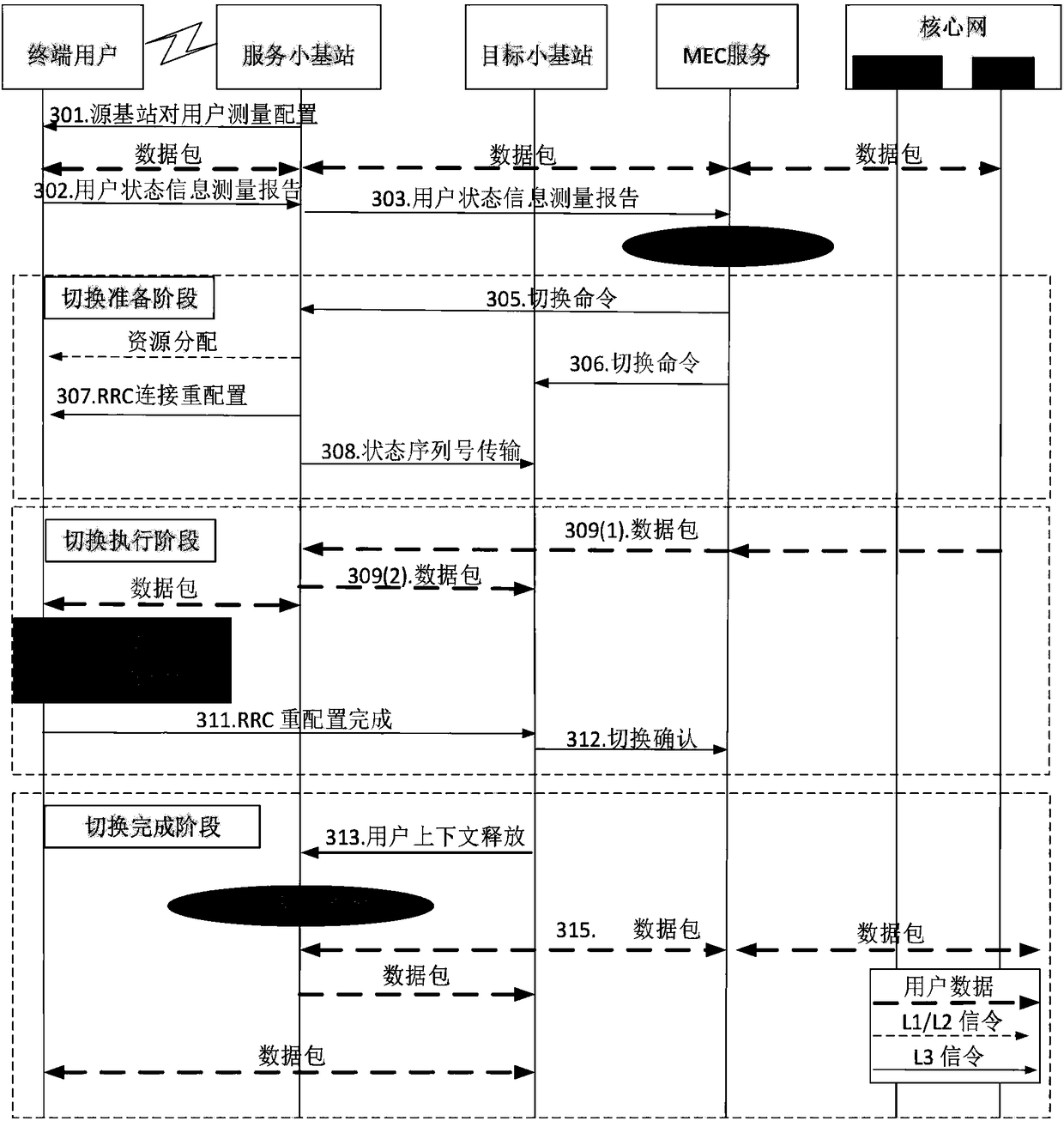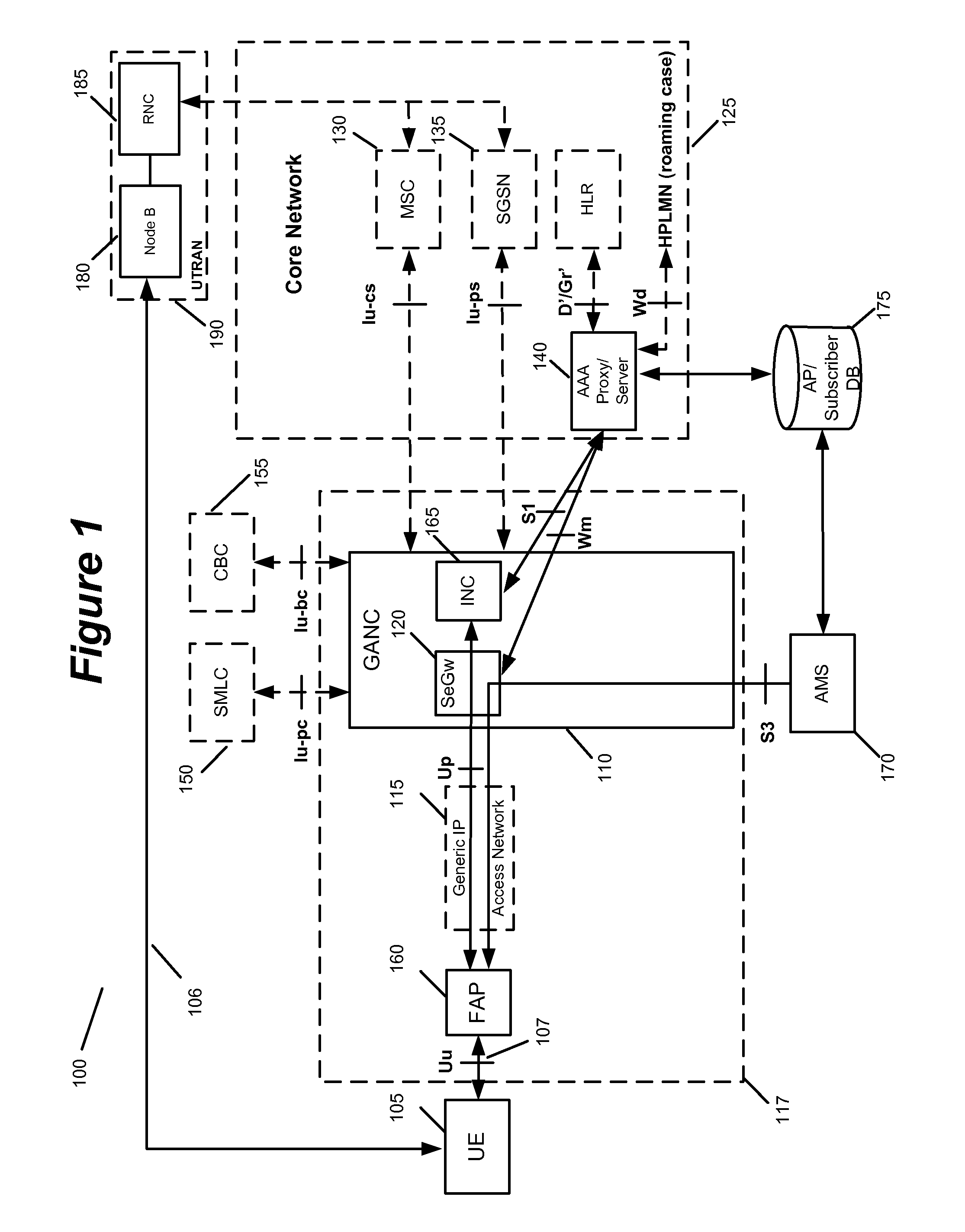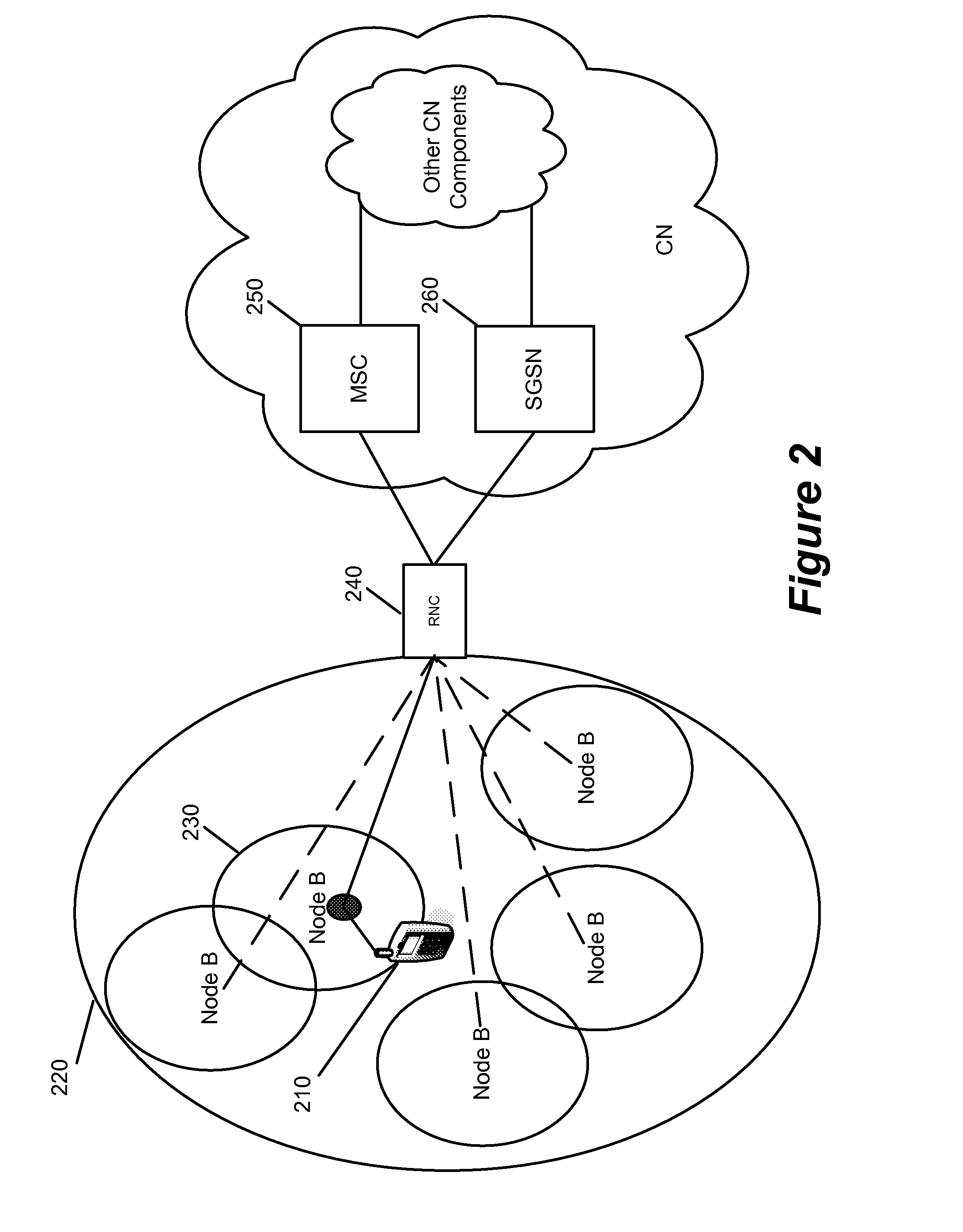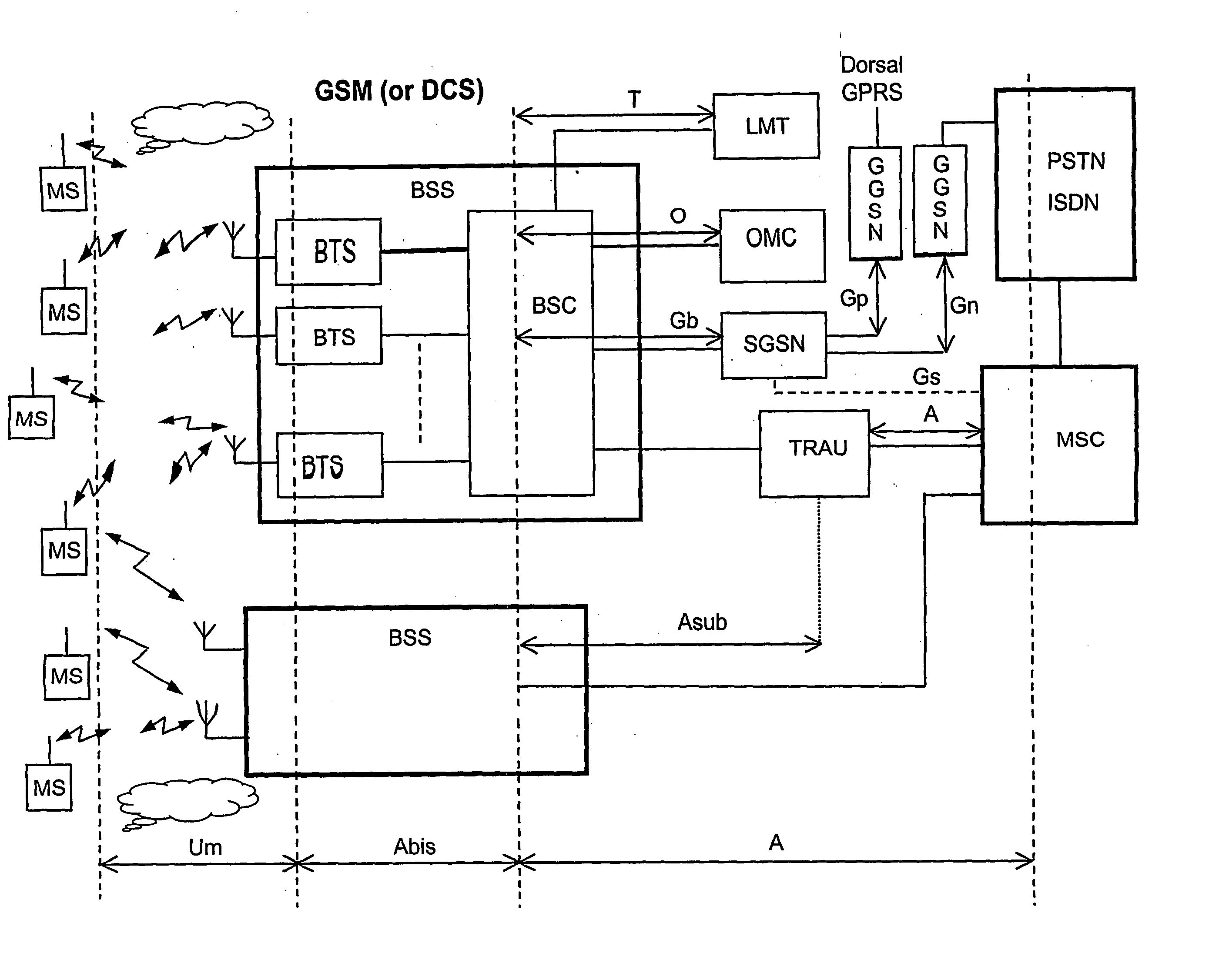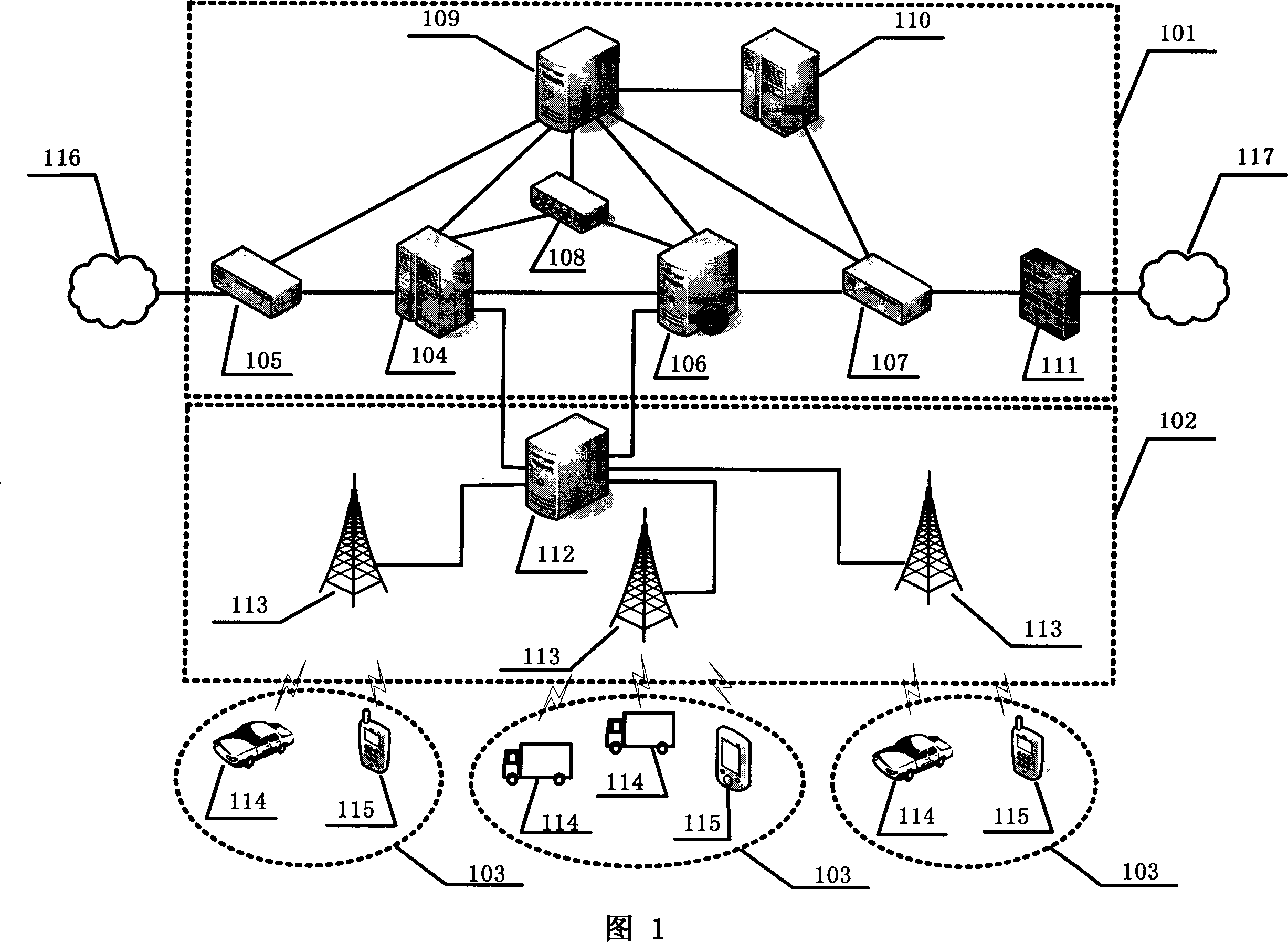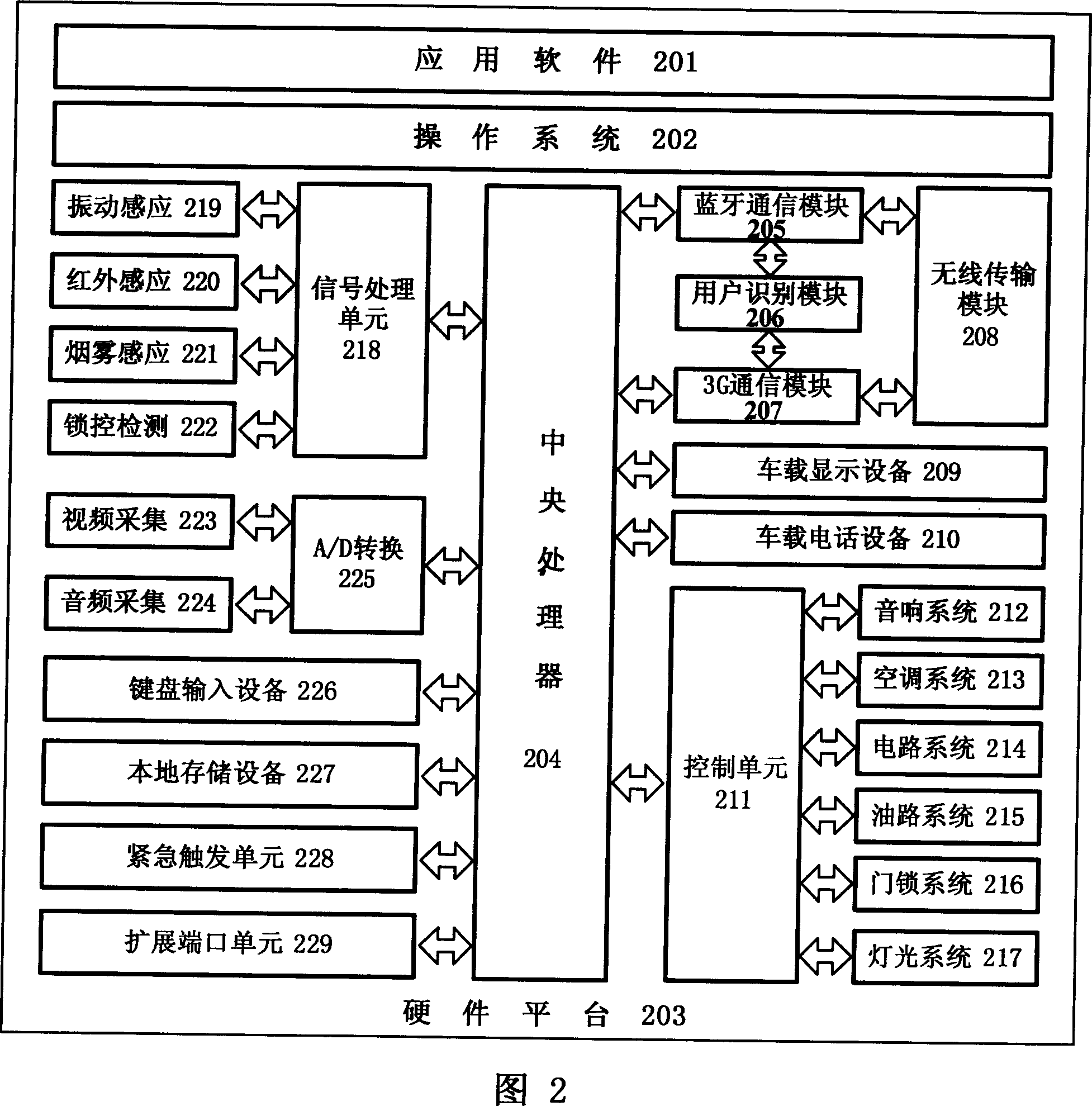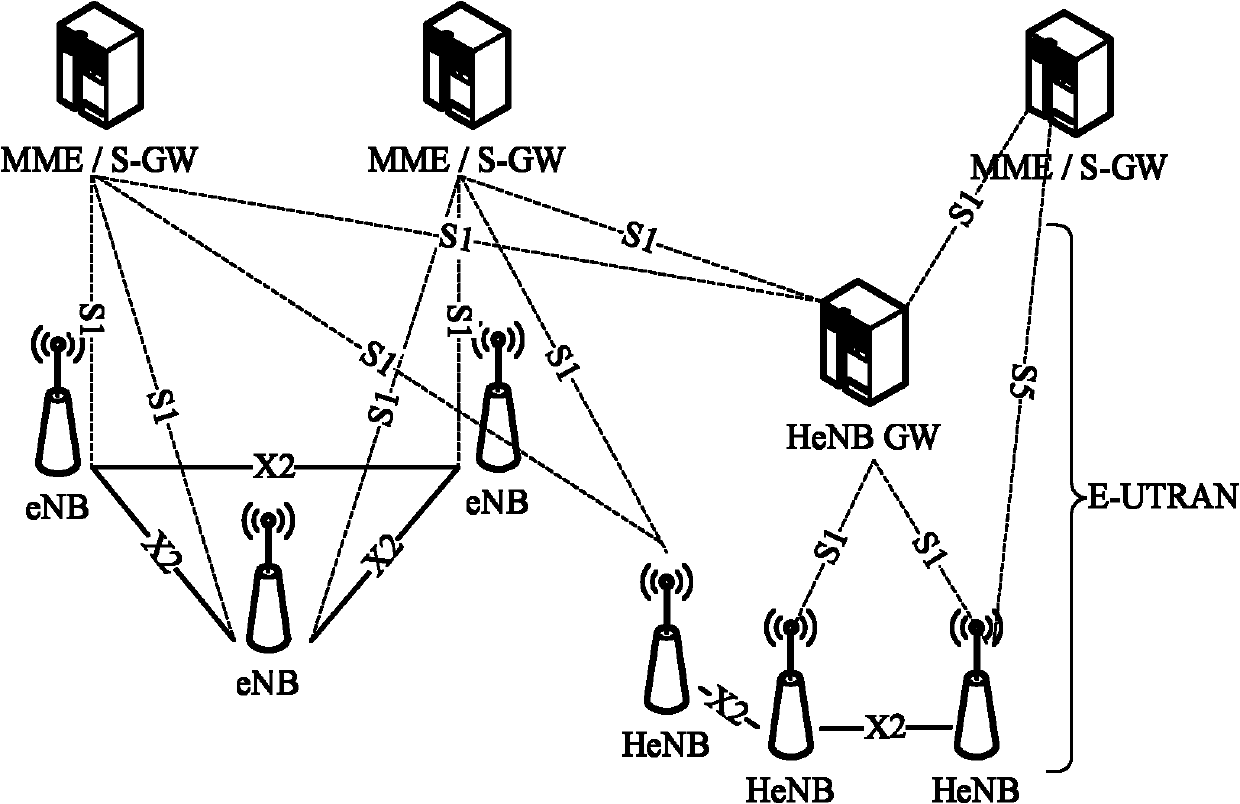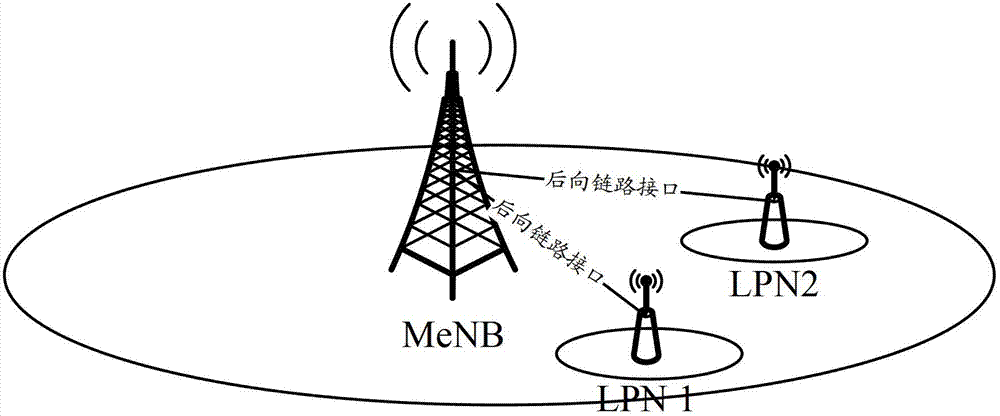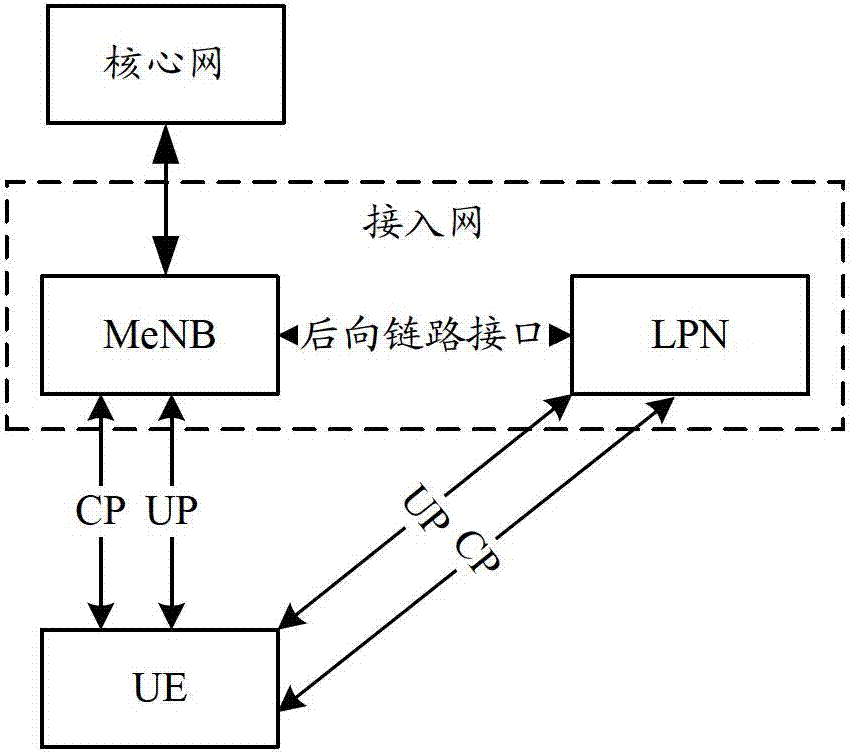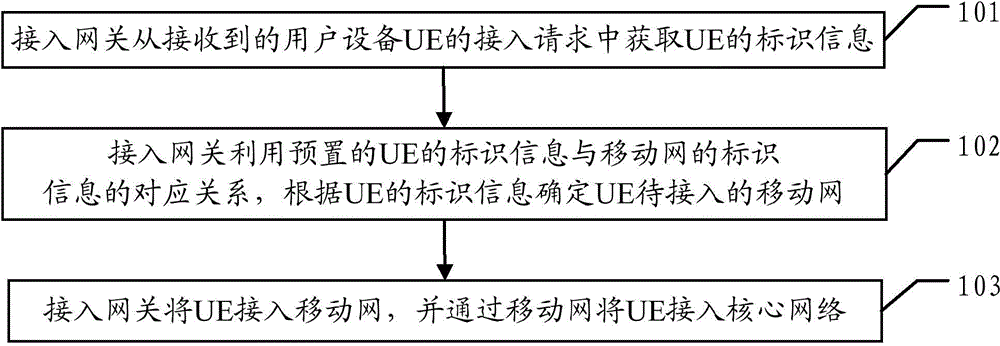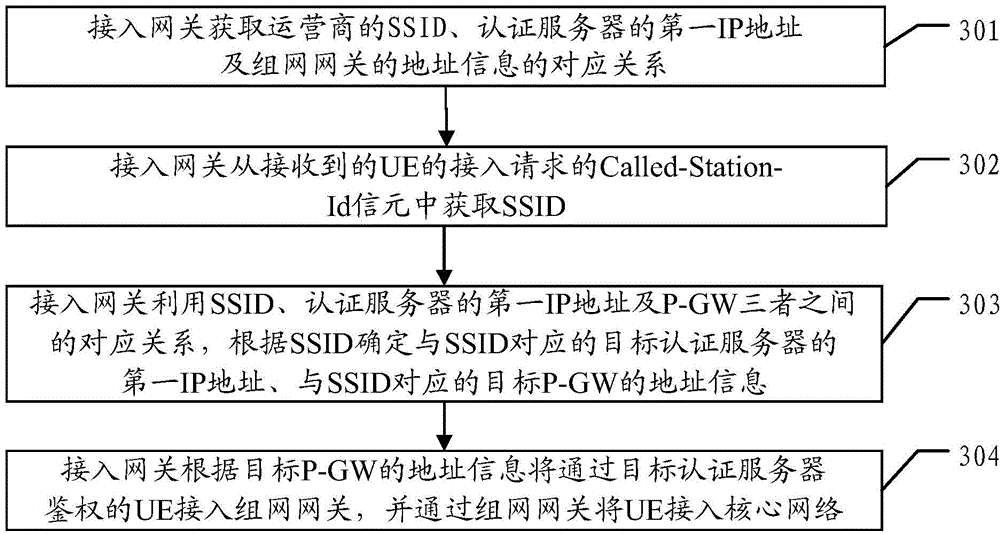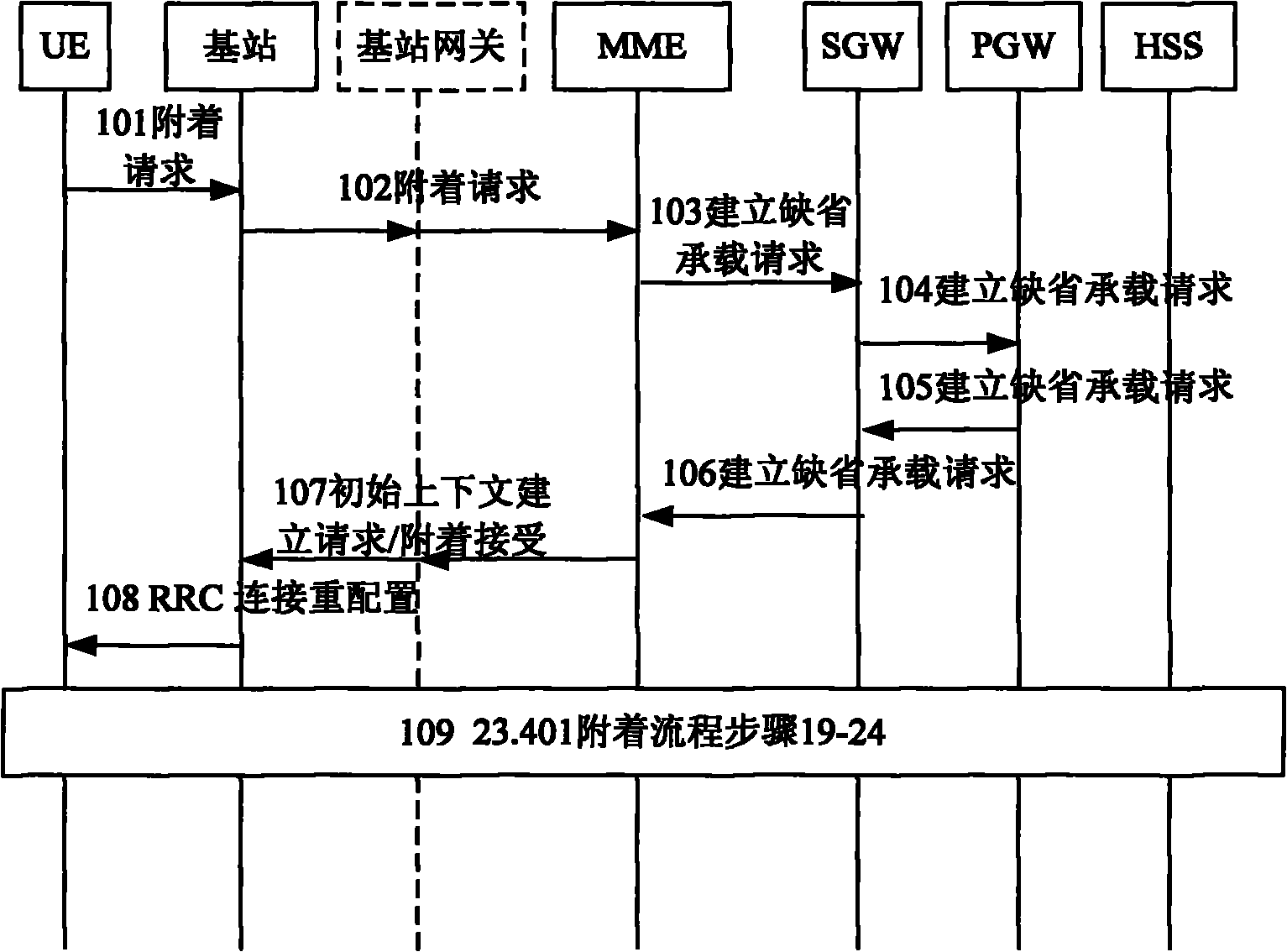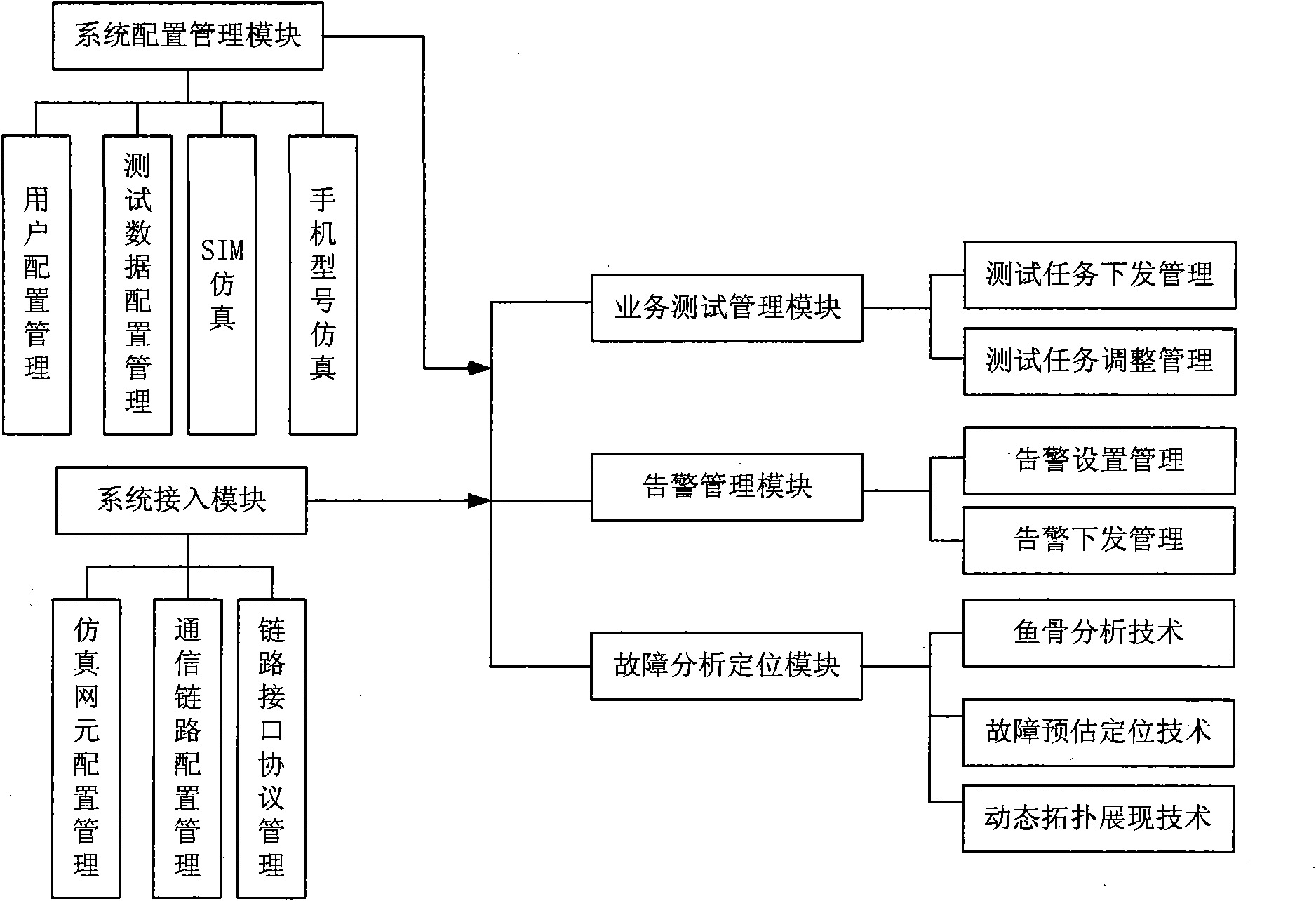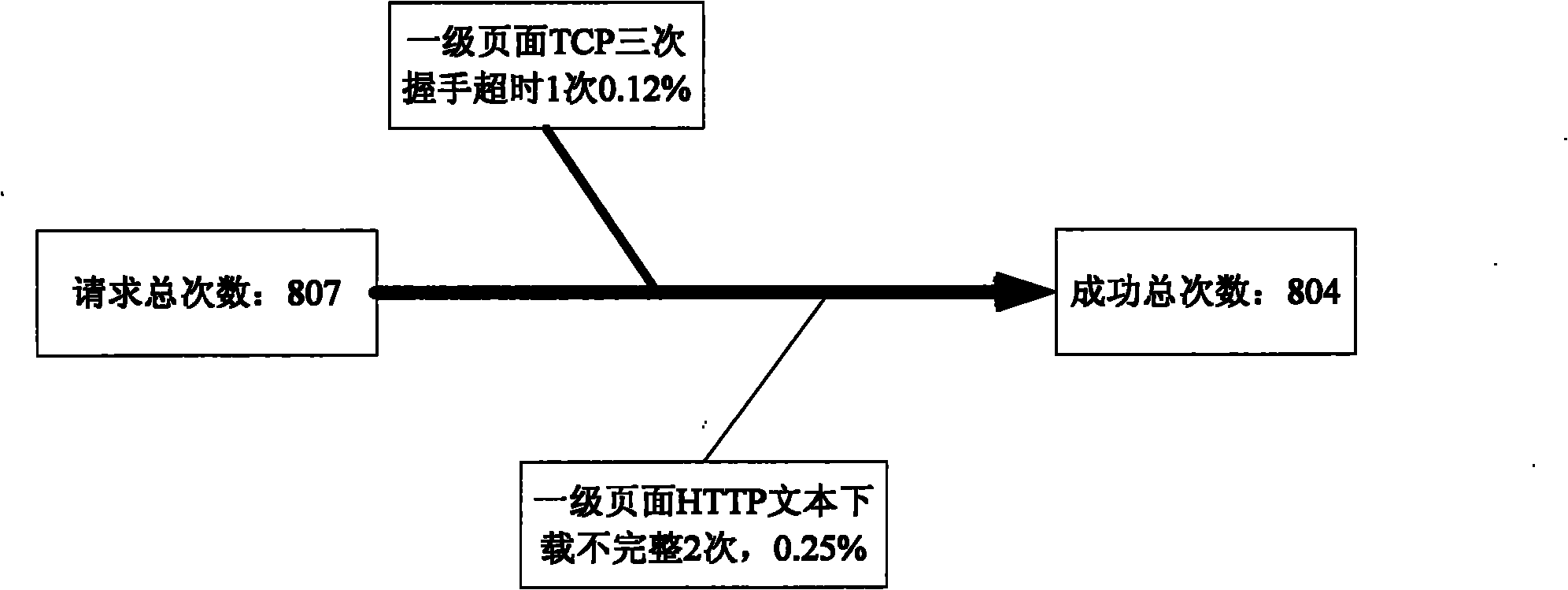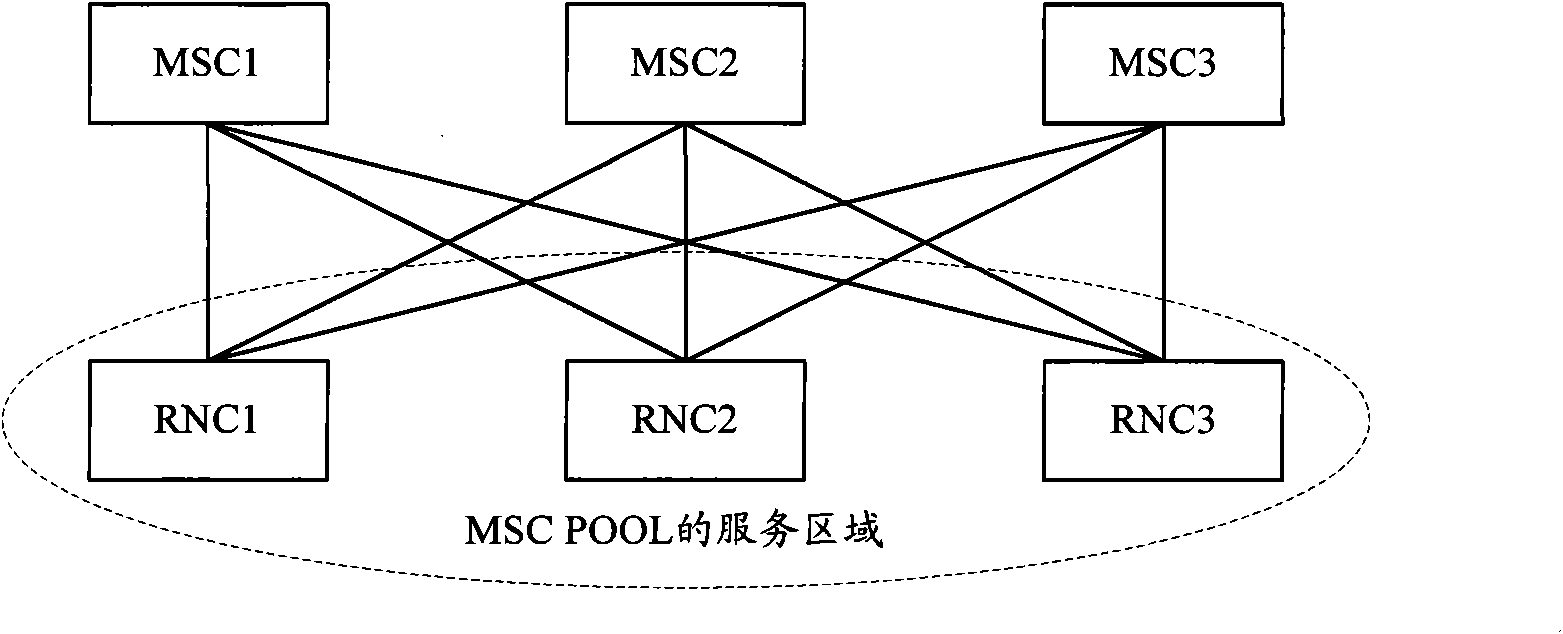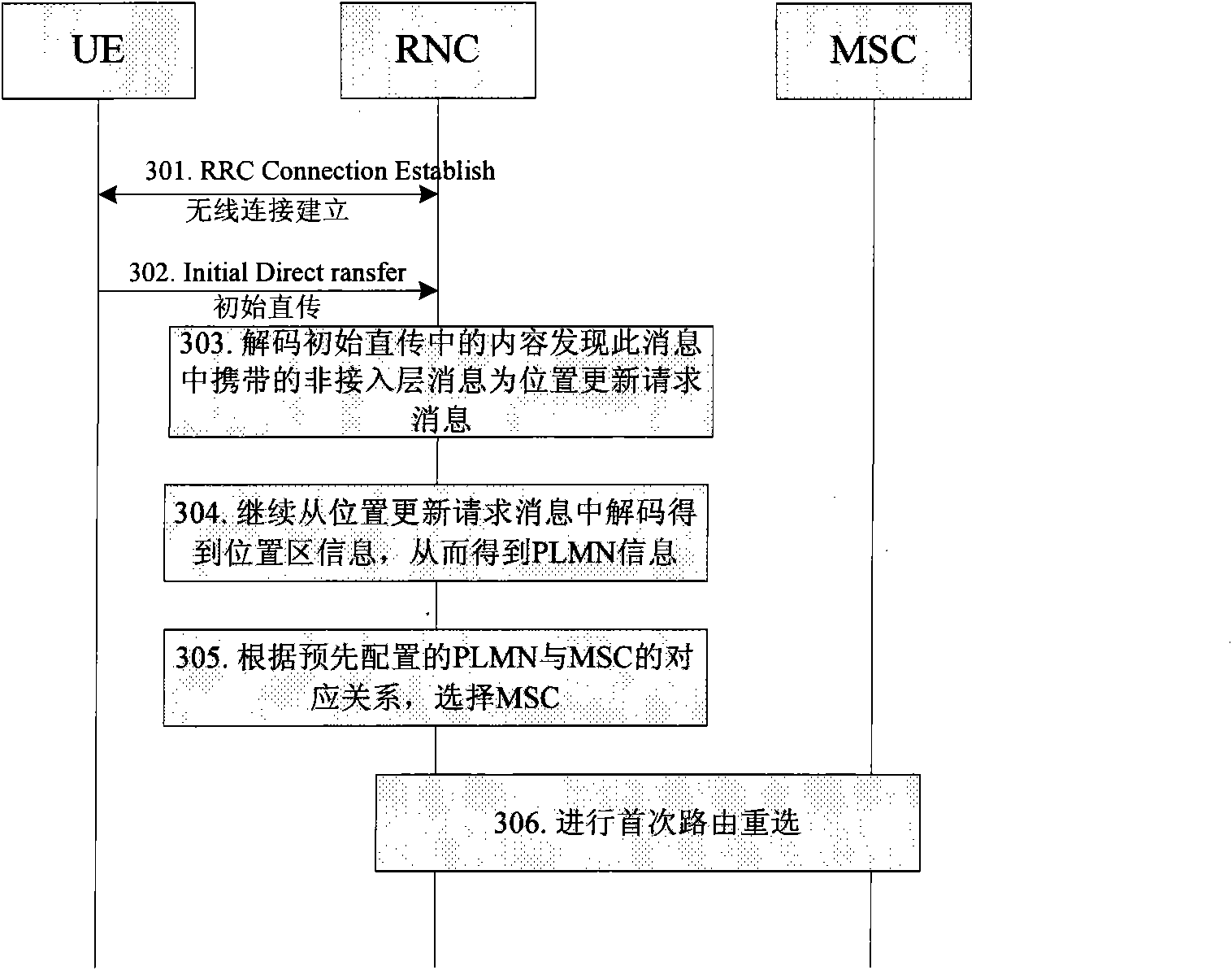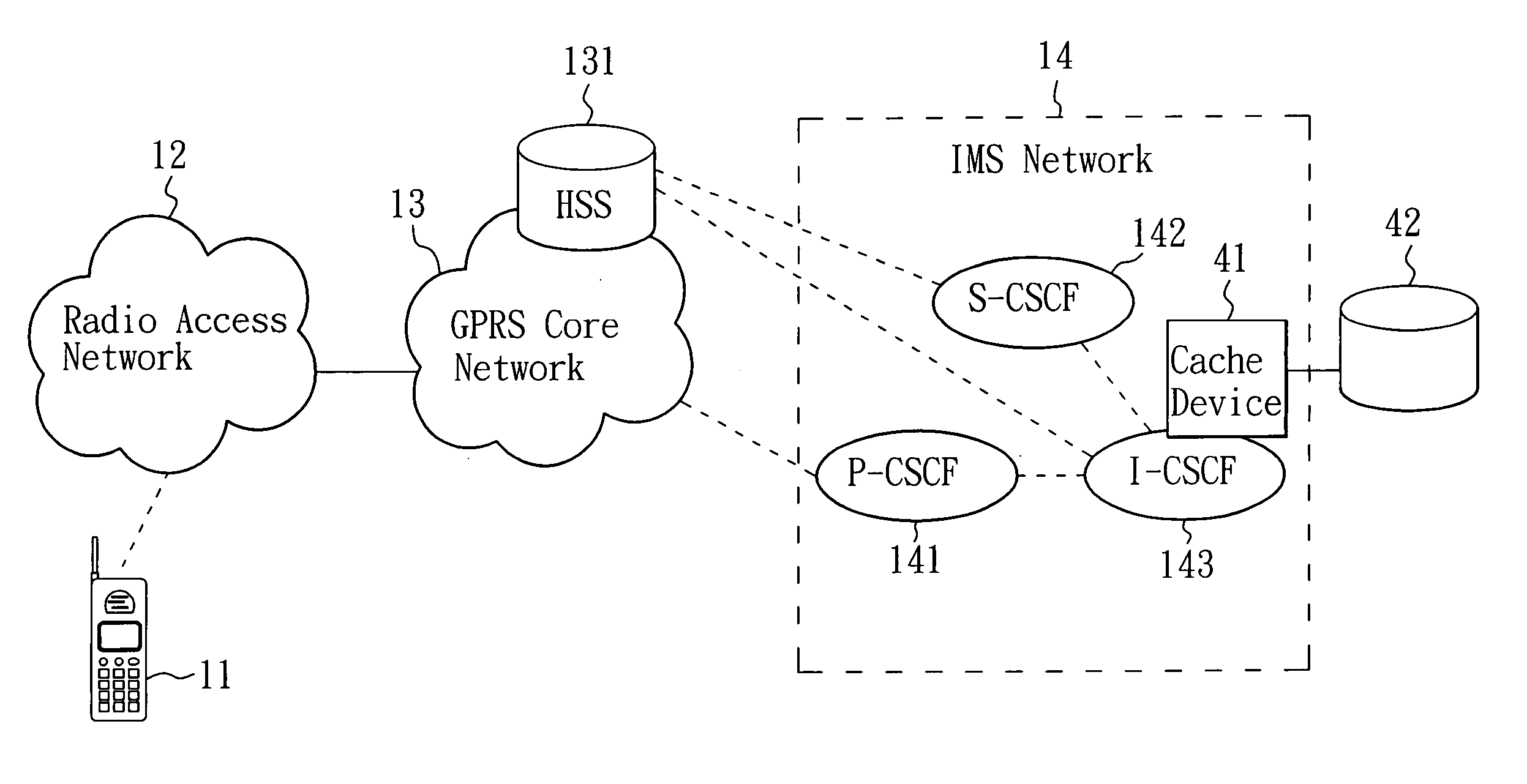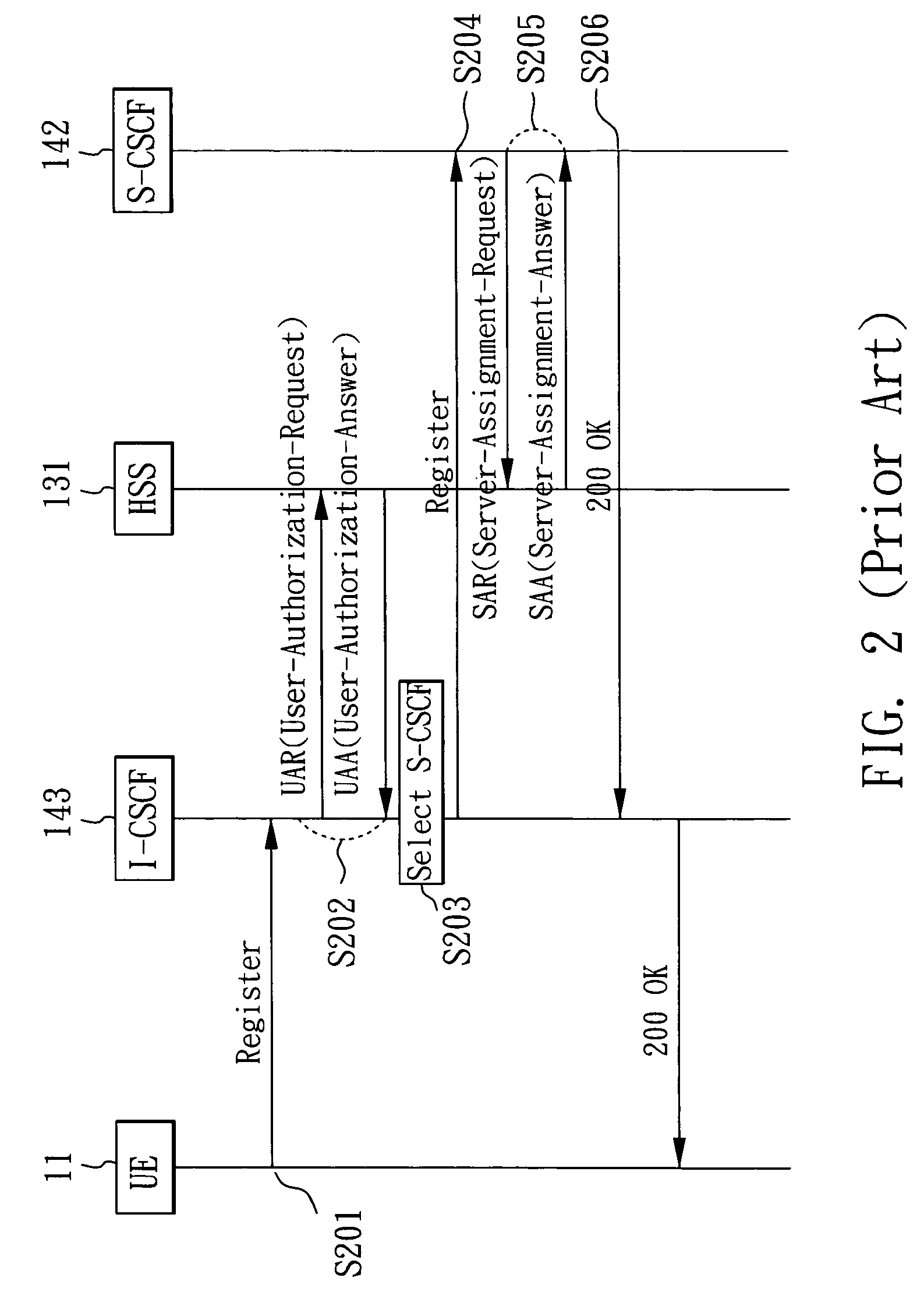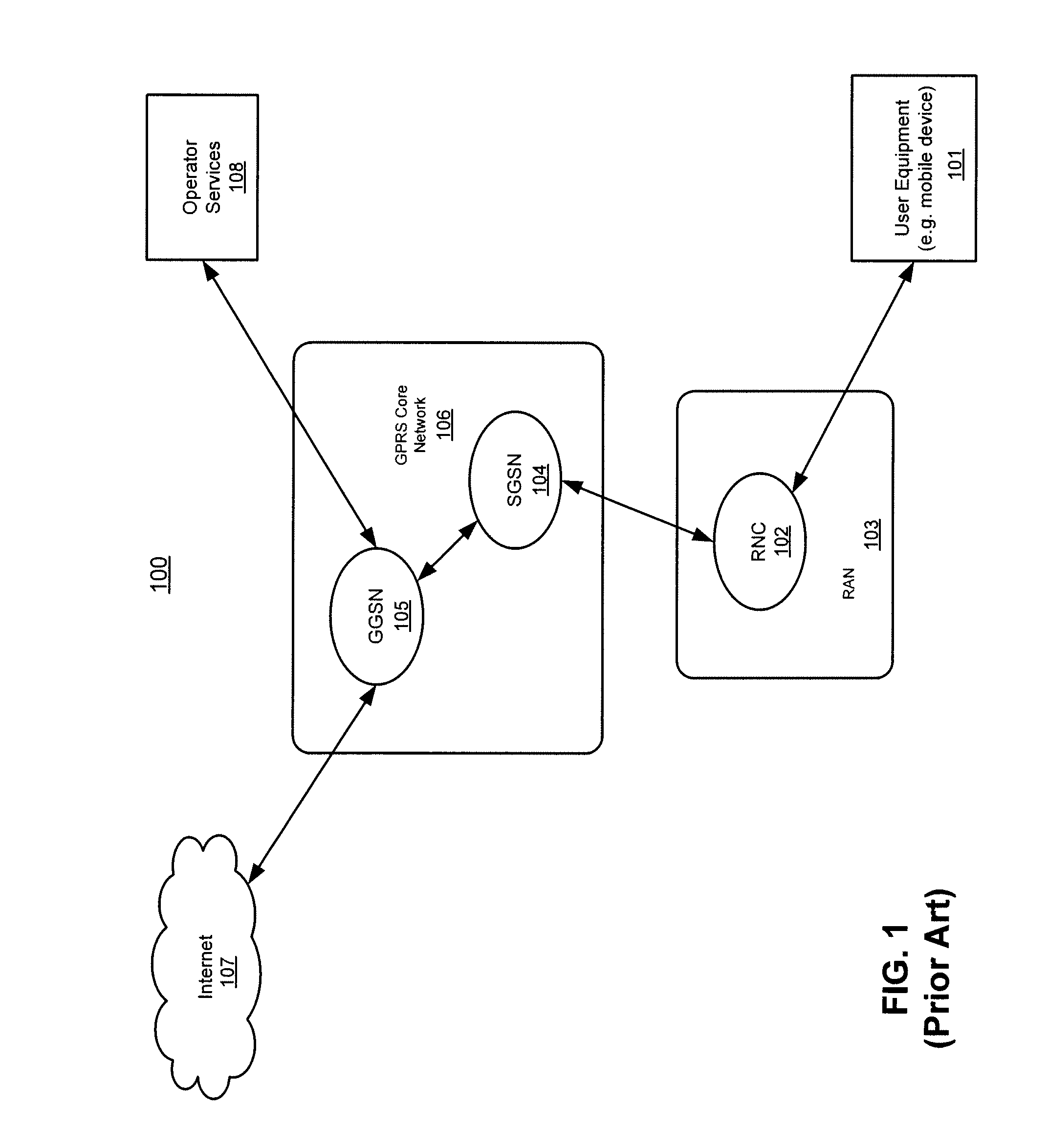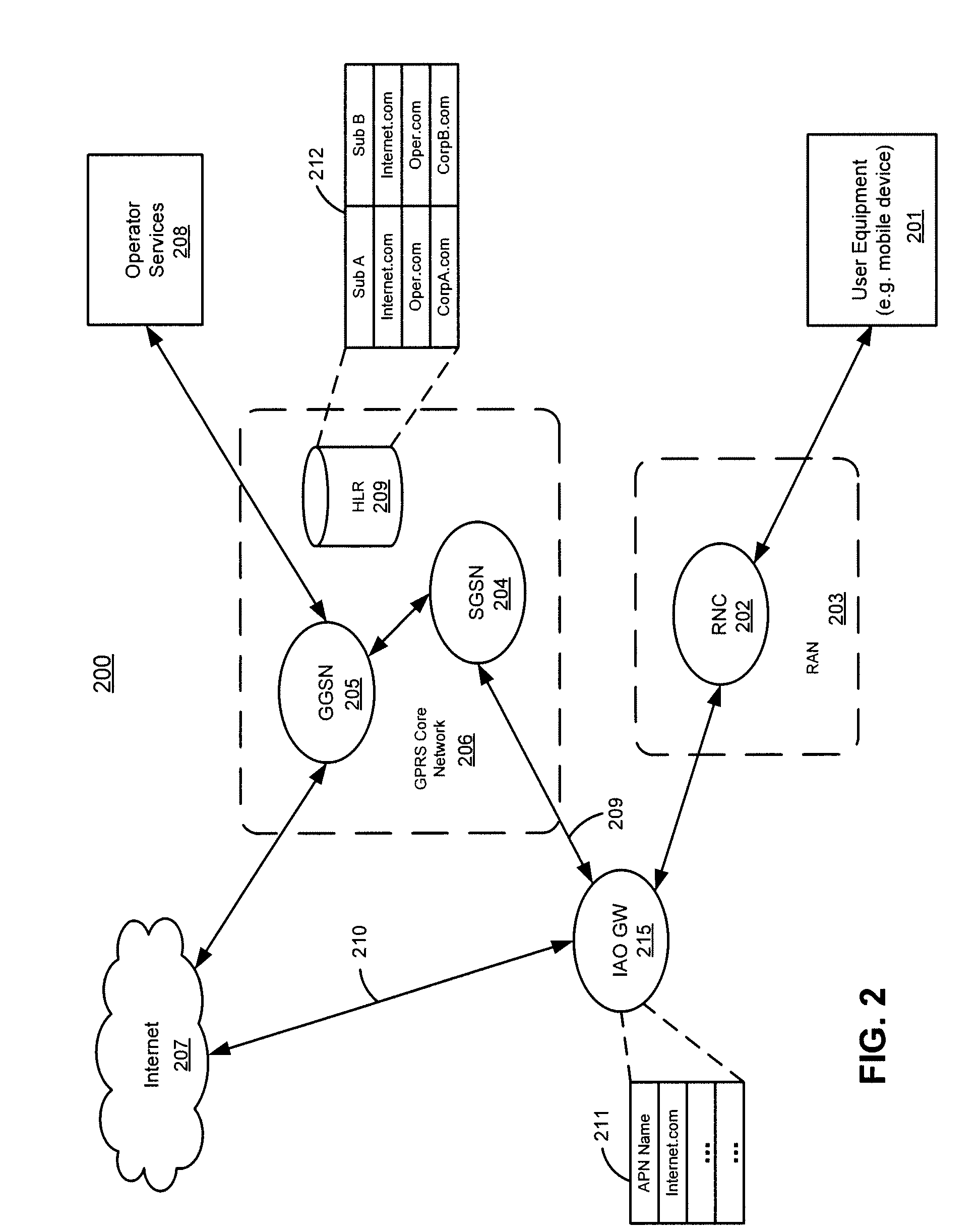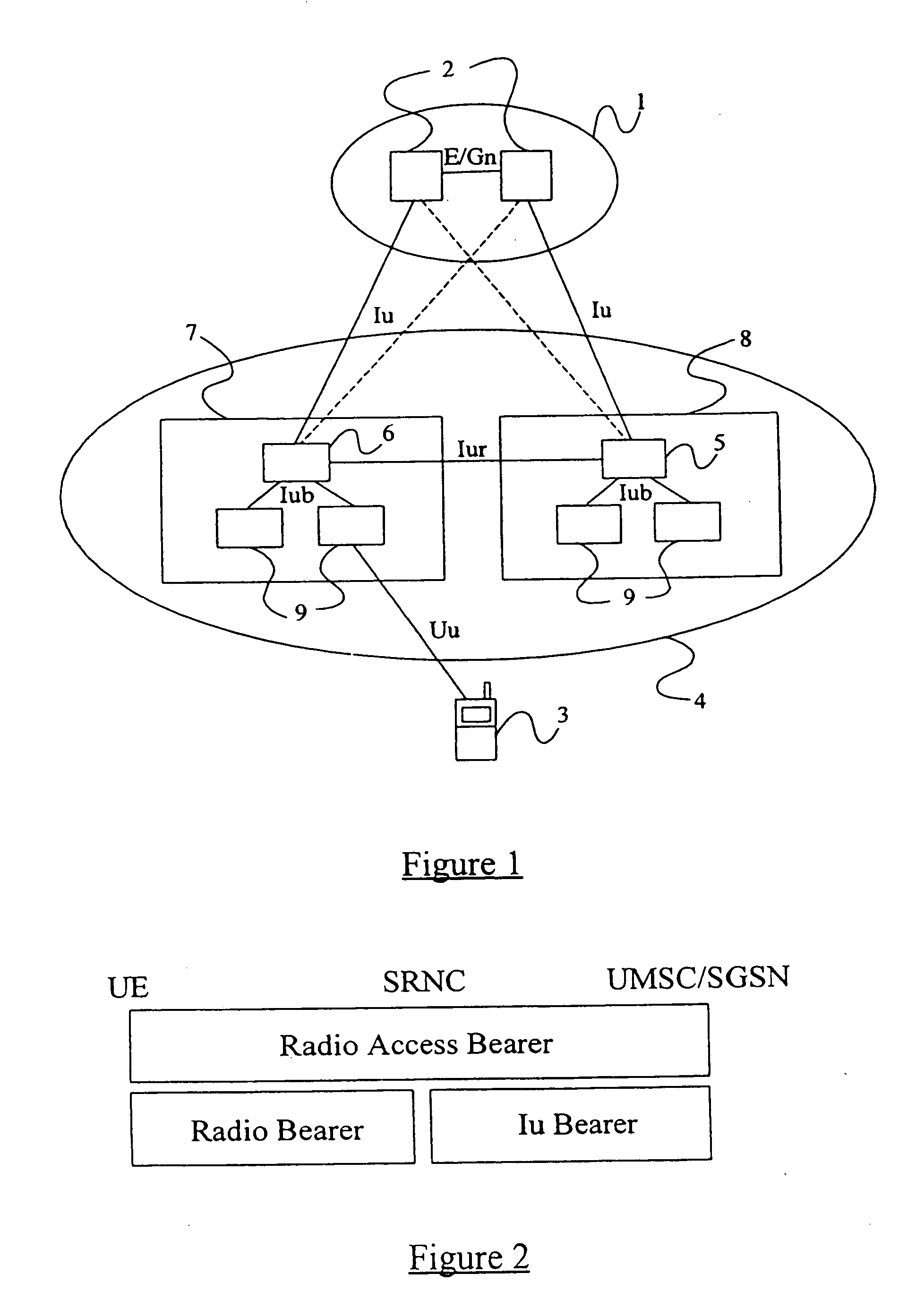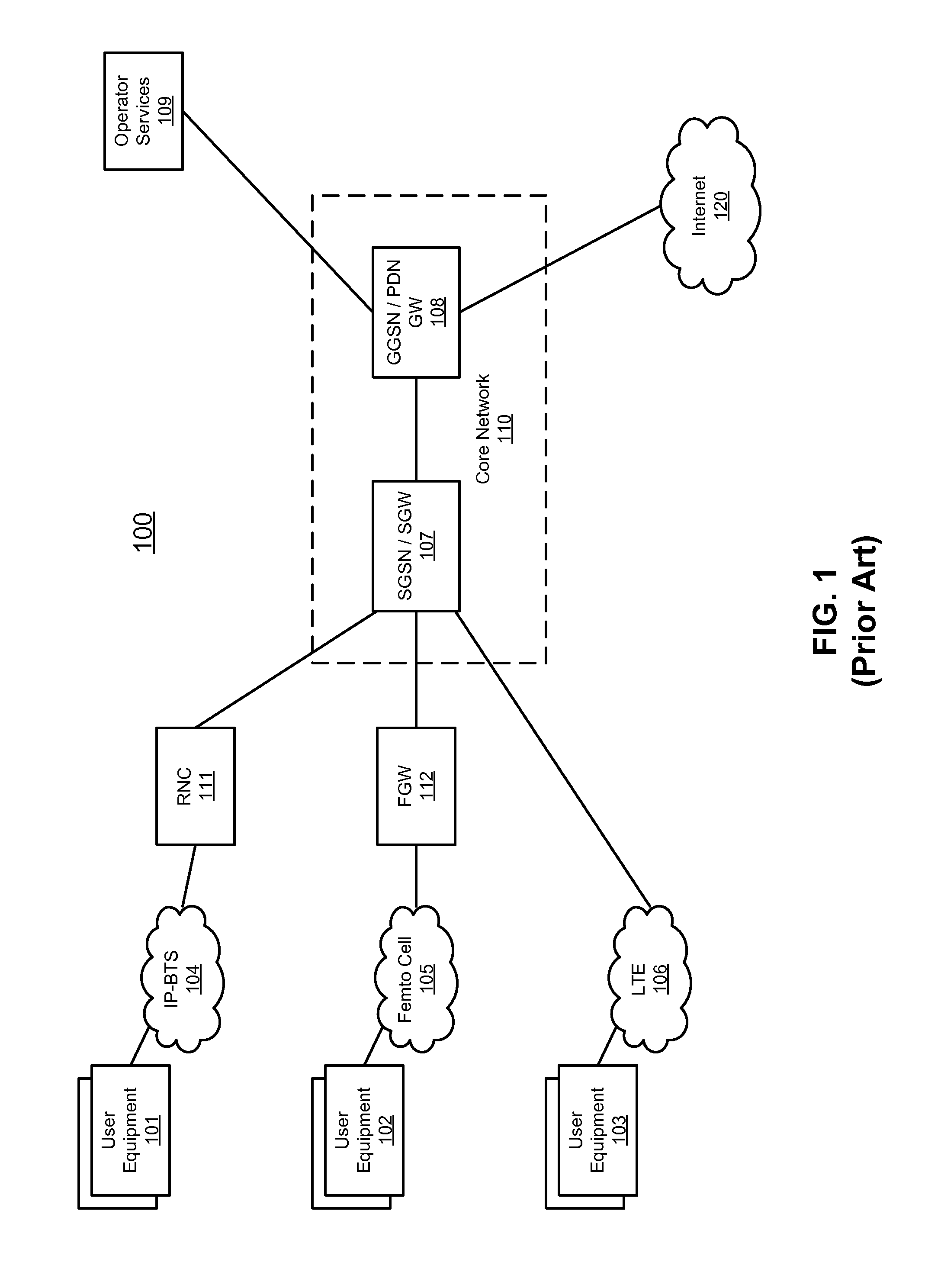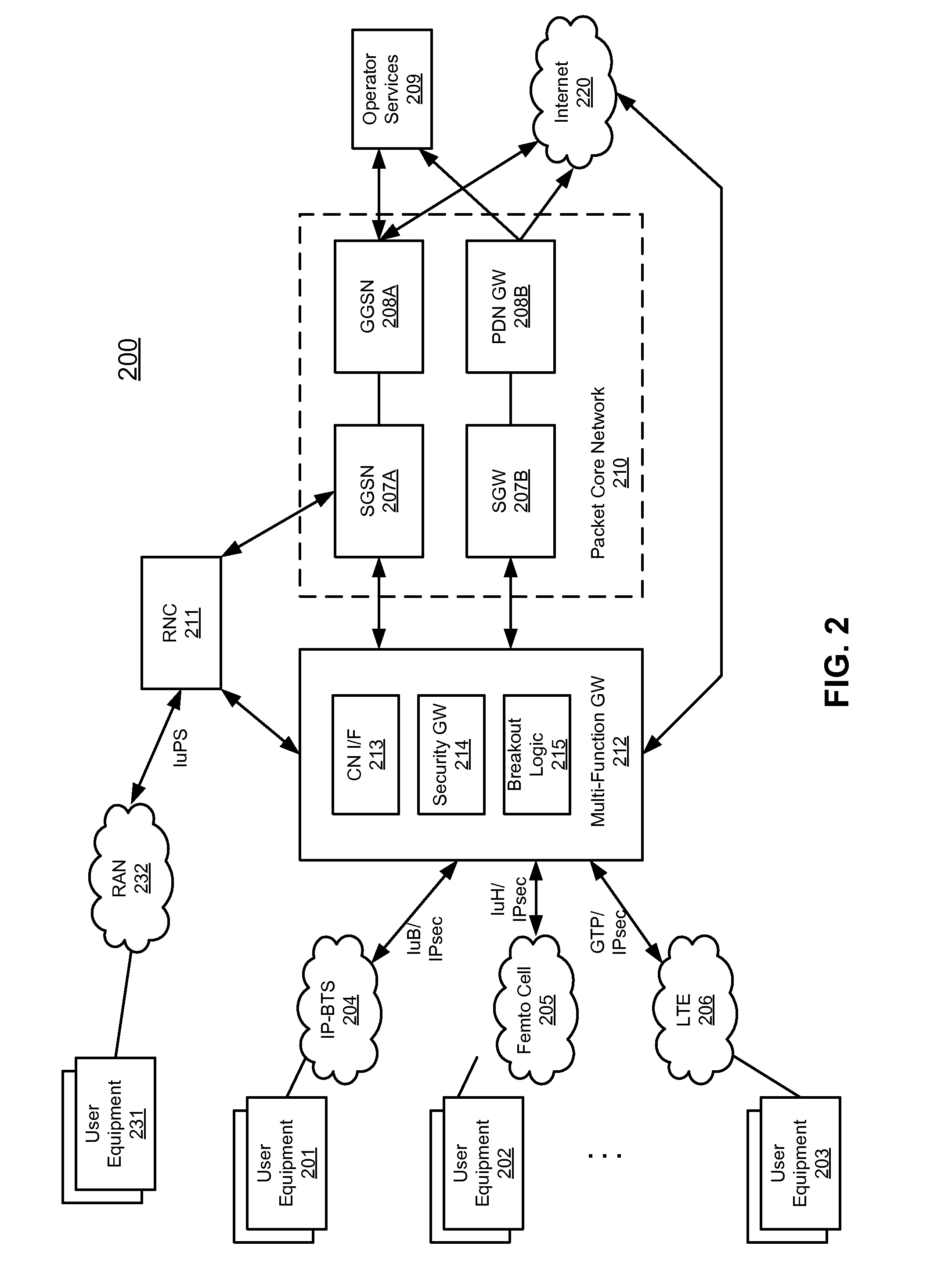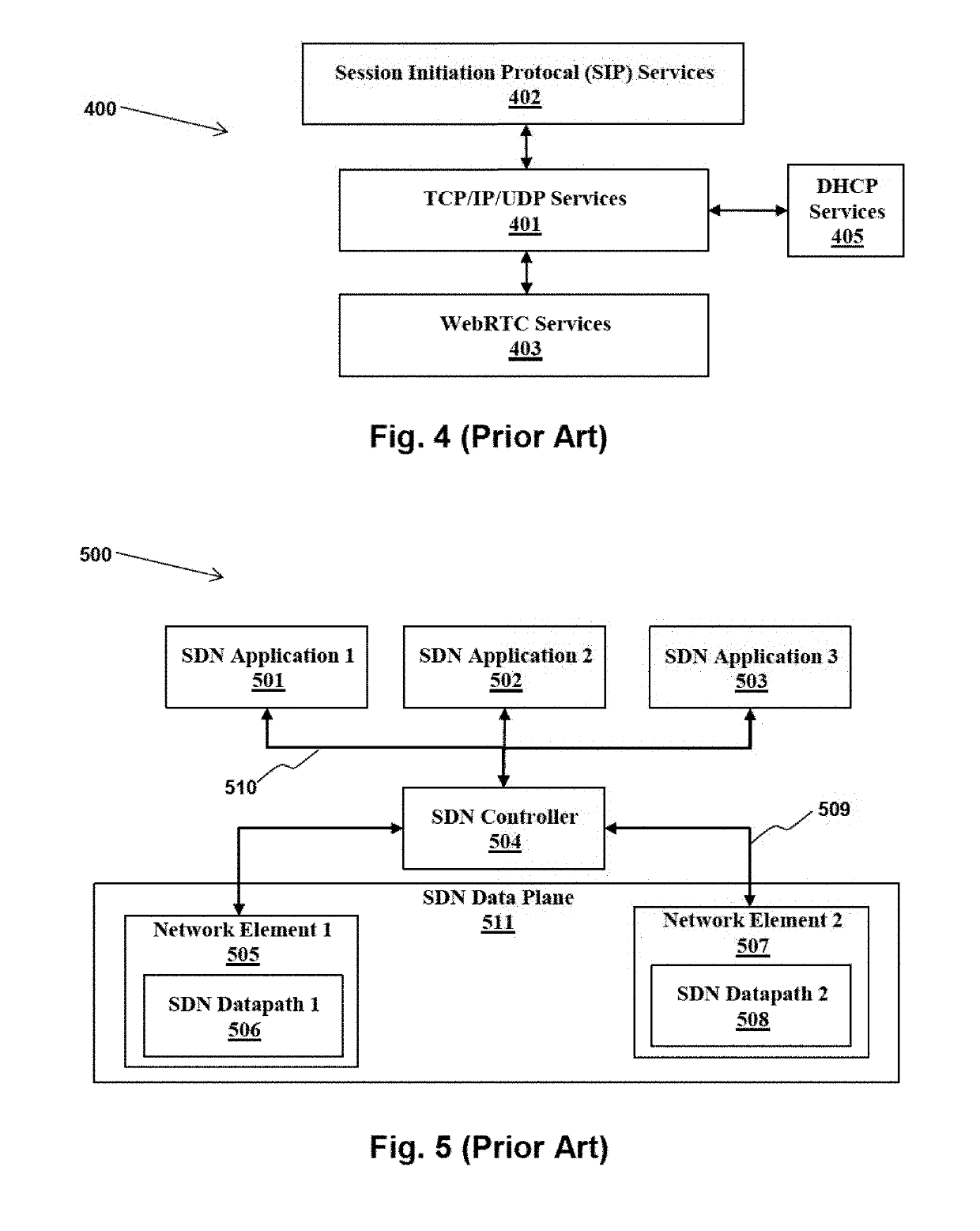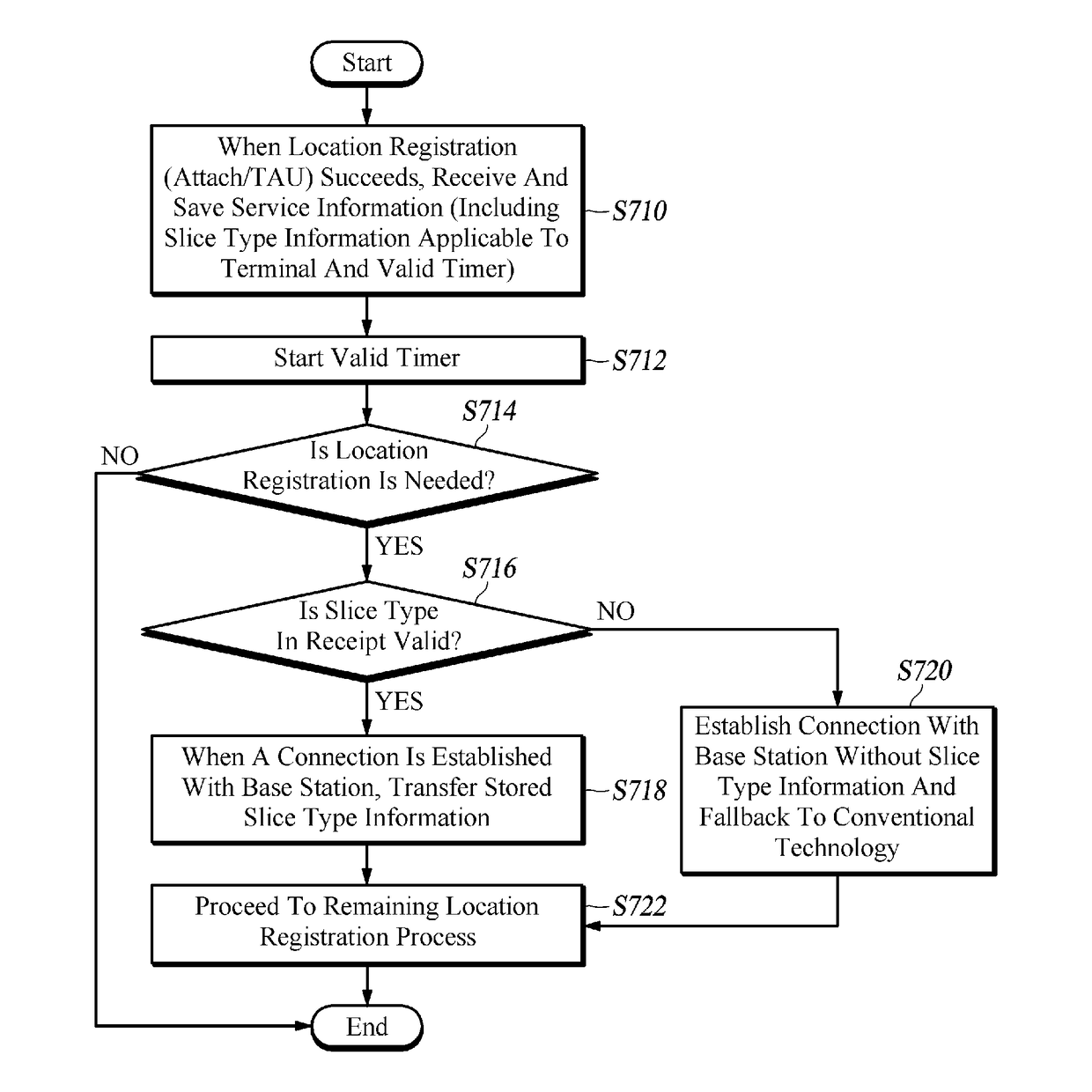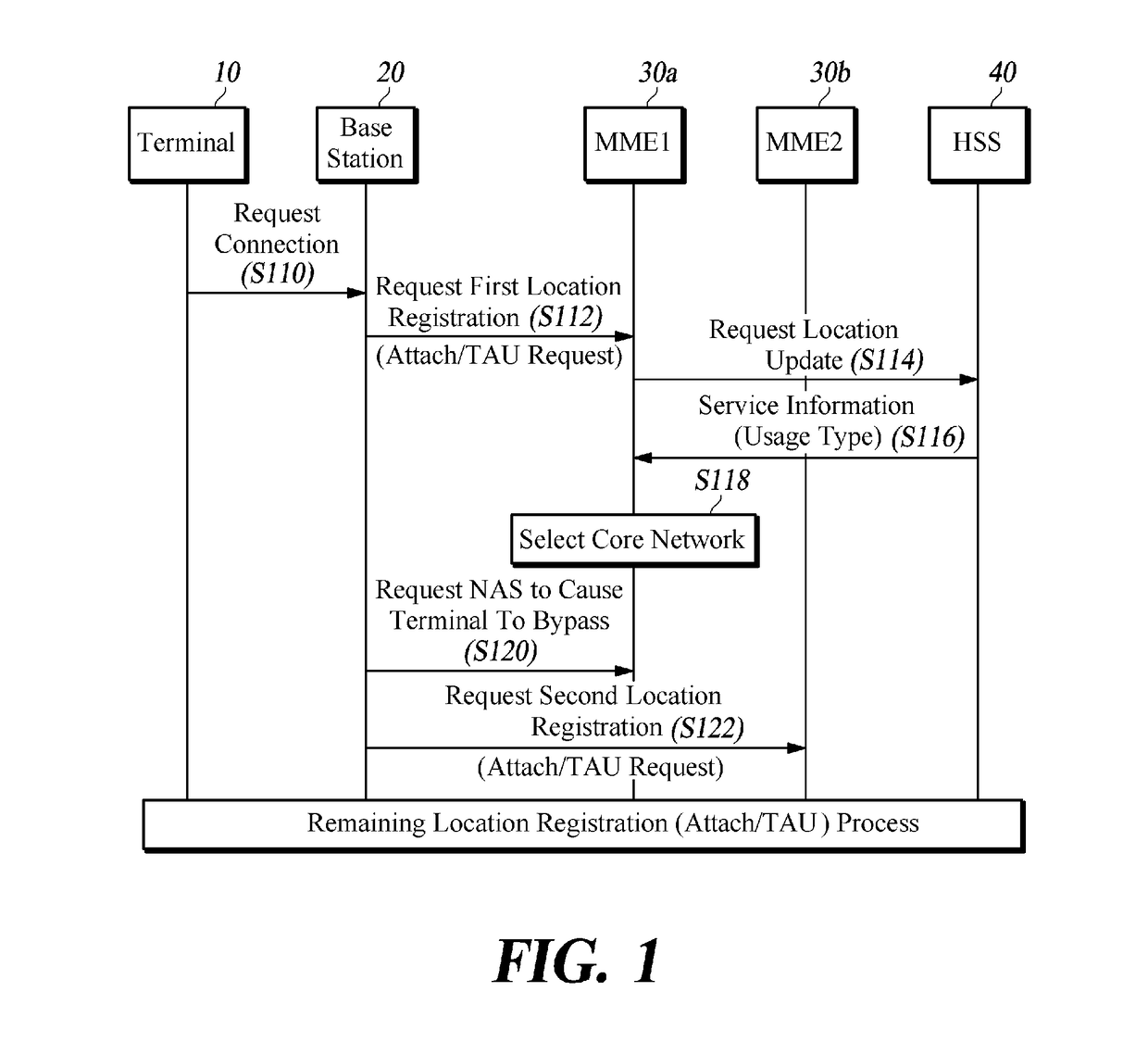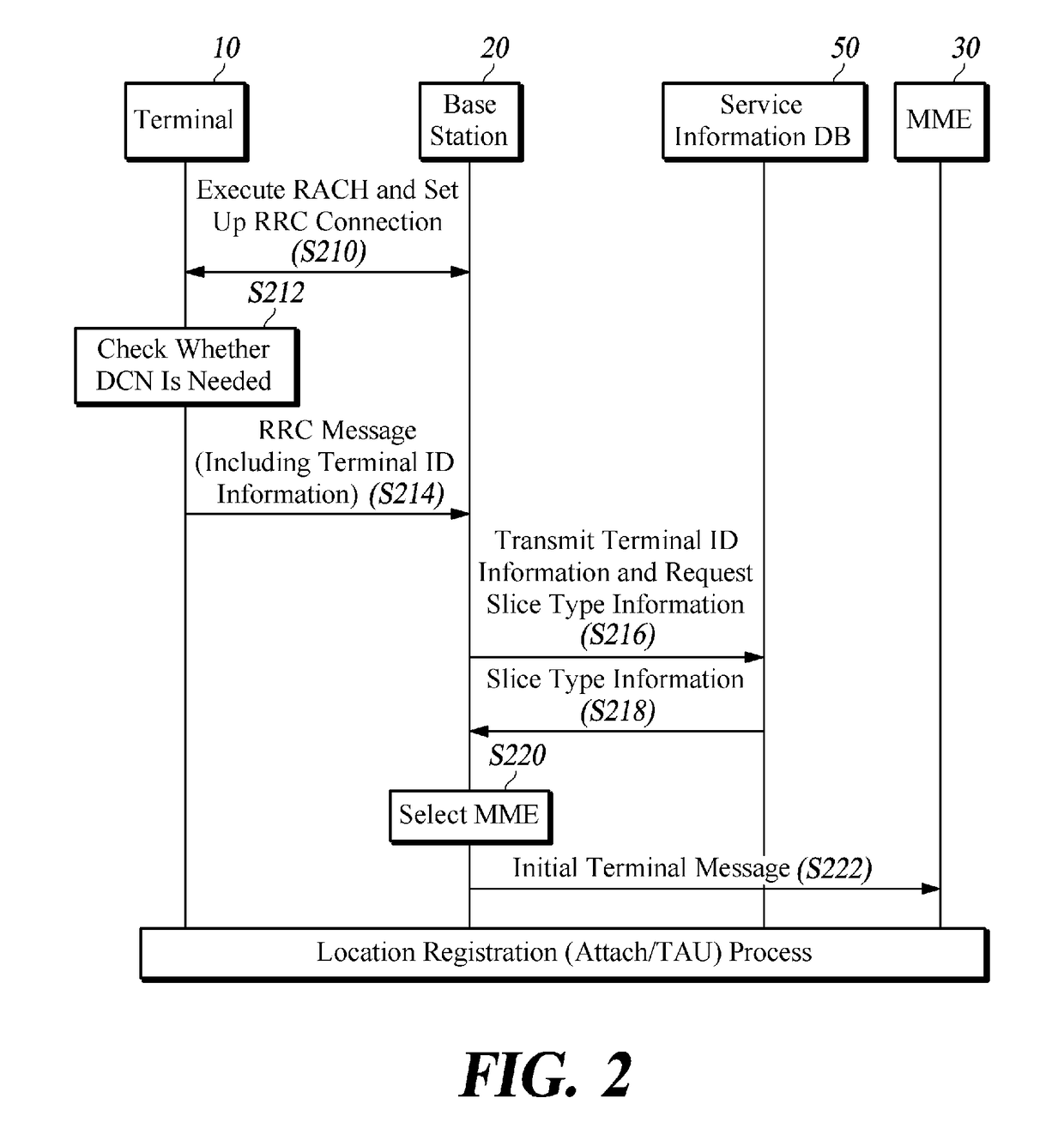Patents
Literature
Hiro is an intelligent assistant for R&D personnel, combined with Patent DNA, to facilitate innovative research.
243 results about "GPRS core network" patented technology
Efficacy Topic
Property
Owner
Technical Advancement
Application Domain
Technology Topic
Technology Field Word
Patent Country/Region
Patent Type
Patent Status
Application Year
Inventor
The GPRS core network is the central part of the general packet radio service (GPRS) which allows 2G, 3G and WCDMA mobile networks to transmit IP packets to external networks such as the Internet. The GPRS system is an integrated part of the GSM network switching subsystem.
Cloud platform supporting fusion network service and operating method thereof
InactiveCN101969391APromote innovationGood varietyData switching by path configurationGPRS core networkClosed platform
The invention relates to a cloud platform supporting fusion network service and an operating method thereof. The cloud platform is provided with a plurality of hardware and software resources, and is connected with three access networks of a telecommunication network, an interconnection network and a broadcasting and television network respectively through three core networks of operators of the three networks and the corresponding communication protocol to allow platform users (including the operators of the three networks or service providers and the like) to rent platform resources according to respective requirements to deploy respective services and operational capabilities. The cloud platform has a layered structure, and is provided with a platform management layer, a service execution layer, a resource virtualization and management layer and a hardware resource layer respectively from top to bottom, and in an interactive mode among the layers, an upper-layer module uses the function provided a lower-layer module in a mode of interface call. The cloud platform supports the platform users to adjust the rent resources dynamically and conveniently according to actual requirements, and simultaneously, provides the access capability on the resources of the three networks and convenience for the development and operation of the fusion network service by the platform users.
Owner:BEIJING UNIV OF POSTS & TELECOMM
Method and apparatus for facilitating push communication across a network boundary
ActiveUS20100124191A1Facilitate communicationData switching by path configurationMultiple digital computer combinationsGPRS core networkPrivate IP
Provided is a method and apparatus for facilitating push communication from a first network to a target device of a second network, the second network comprising a packet service network such as a GPRS core network. A private IP address, usable for addressing the target device when the packet service network is in an activated state with respect thereto, is retained. Upon receipt of a first message from the first network, indicative of a push communication for the target device, the packet service network is disposed into the activated state, and a second message, addressed to the private IP address, is transmitted. The second message may be generated by a NAT configured to implement micro-port forwarding. The second message may be generated by a representative device of the second network, configured to receive the first message via a NAT in response to a query generated by the representative device.
Owner:SEMTECH CORP
Remote Radio Unit with Adaptive Fronthaul Link for a Distributed Radio Access Network
ActiveUS20170373890A1Error prevention/detection by using return channelBaseband system detailsGPRS core networkRadio networks
A distributed radio frequency communication system facilitates communication between a wireless terminal and a core network. The system includes a remote radio unit (RRU) coupled to at least one antenna to communicate with the wireless terminal. The RRU includes electronic circuitry to perform at least a first portion of a first-level protocol of a radio access network (RAN) for communicating between the wireless terminal and the core network. The system also includes a baseband unit (BBU) coupled to the core network, and configured to perform at least a second-level protocol of the RAN. A fronthaul link is coupled to the BBU and the RRU. The fronthaul link utilizes an adaptive fronthaul protocol for communication between the BBU and the RRU. The adaptive fronthaul protocol has provisions for adapting to conditions of the fronthaul link and radio network by changing the way data is communicated over the fronthaul link.
Owner:COMMSCOPE TECH LLC
Application aware traffic shaping service node positioned between the access and core networks
ActiveUS20060233100A1Error preventionFrequency-division multiplex detailsGPRS core networkData traffic
A method and apparatus for an application aware traffic shaping service node positioned between the access and core networks is described. One embodiment of the invention enforces a per subscriber, per application traffic policy for network traffic between one or more subscribers communicatively connected through an access network and a set of one or more service providers communicatively connected through a core network. According to another embodiment of the invention enforcement of the per subscriber, per application traffic policy comprises classifying the network traffic into application level subscriber flows, maintaining real-time statistics on the application level subscriber flows and overall network element congestion, updating, in real-time, the per subscriber, per application traffic policy based on the real-time statistics and restricting bandwidth and dropping packets on the application level subscriber flows as necessary to enforce the per subscriber, per application traffic policy. Another embodiment of the invention is a passthrough mode where the data traffic is transmitted by the traffic in the same manner as received by the traffic shaping service node. Yet another embodiment of the invention is a combined service node with integral edge routing and traffic aggregator.
Owner:TELLABS COMM CANADA
Application aware traffic shaping service node positioned between the access and core networks
A method and apparatus for an application aware traffic shaping service node positioned between the access and core networks is described. One embodiment of the invention enforces a per subscriber, per application traffic policy for network traffic between one or more subscribers communicatively connected through an access network and a set of one or more service providers communicatively connected through a core network. According to another embodiment of the invention enforcement of the per subscriber, per application traffic policy comprises classifying the network traffic into application level subscriber flows, maintaining real-time statistics on the application level subscriber flows and overall network element congestion, updating, in real-time, the per subscriber, per application traffic policy based on the real-time statistics and restricting bandwidth and dropping packets on the application level subscriber flows as necessary to enforce the per subscriber, per application traffic policy. Another embodiment of the invention is a passthrough mode where the data traffic is transmitted by the traffic in the same manner as received by the traffic shaping service node. Yet another embodiment of the invention is a combined service node with integral edge routing and traffic aggregator.
Owner:TELLABS COMM CANADA
Overlay transport virtualization
ActiveUS8166205B2Data switching by path configurationMultiple digital computer combinationsGPRS core networkVirtualization
In one embodiment, an apparatus includes one or more internal interfaces in communication with one or more network devices in a first network site through a Layer 2 link, an overlay interface in communication through a Layer 3 link with a core network connected to one or more other network sites, and a table mapping addresses for network devices in the other network sites to addresses of edge devices in the same network site as the network device. The apparatus further includes a processor operable to encapsulate a packet received at one of the internal interfaces and destined for one of the network devices in the other network sites, with an IP header including a destination address of the edge device mapped to the destination network device, and forward the encapsulated packet to the core network.
Owner:CISCO TECH INC
Home Node B System Architecture
InactiveUS20090265542A1Lower deployment costsSpeed andAssess restrictionNetwork topologiesGPRS core networkHome Node B
Some embodiments provide methods and systems for integrating a first communication system with a core network of a second communication system that has a licensed wireless radio access network. The first communication system includes one or more user hosted access points that operate using short range licensed wireless frequencies in order to establish service regions of the first communication system and a network controller for communicatively coupling the service regions to the core network. The first communication system includes a Home Node-B (HNB) system where the access points are Home Node-Bs and the network controller is a HNB Gateway (HNB-GW). Some embodiments define multi-layered protocol stacks for implementing management functionality and control plane functionality for the access points and the network controller. The HNB is connected to the HNB-GW via the Iuh interface. The Iuh management functionality is provided via a HNBAP protocol layer and control plane functionality, such as relay of RANAP, is provided via a RUA protocol layer.
Owner:KINETO WIRELESS
Method and system for bypassing 3gpp packet switched core network when accessing internet from 3gpp ues using ip-bts, femto cell, or LTE access network
A type of network traffic associated with a packet received from a remote node of an access network is determined. A first interface logic routes the packet to a radio network controller (RNC) if the packet is received from an Internet protocol-basestation (IP-BTS) access network and destined to a packet core network. The RNC forwards the packet to a component of the packet core network. A second interface logic routes the packet to the component of the packet core network, including aggregating other packets of the same type received from other remote nodes, if the packet is received from a femto cell and destined to the packet core network. A breakout logic routes the packet to a destination of the Internet directly to enable the packet to reach the Internet without having to route the packet to the component of the packet core network, if the packet is destined to the Internet.
Owner:MAVENIR SYSTEMS
System, method and computer readable medium for bearer activation in a core network for wireless devices
ActiveUS20140003357A1Improve efficiencyNetwork resource is reducedConnection managementWireless commuication servicesGPRS core networkNetwork packet
The method includes storing a gateway tunnel identifier, a base station identifier and a base station tunnel identifier; receiving, by the base station, a service request message from a device; establishing, by the base station, a radio bearer between the base station and the device in response to the service request message; receiving, by the base station, one or more first uplink data packets from the device using the radio bearer; modifying, by the base station, the one or more first uplink data packets such that the one or more first uplink data packets include the gateway tunnel identifier, the base station identifier and the base station tunnel identifier; and sending, by the base station, the modified uplink data packet to a gateway.
Owner:ALCATEL LUCENT SAS
Method for establishing data connectivity between a wireless communication device and a core network over an IP access network, wireless communication device and communicatin system
A method and wireless communication device are provided that establish data connectivity between the wireless communication device and a core network over an IP access network. The wireless communication device receives a request to establish data connectivity over an IP access network and provides required connectivity parameters for establishing the data connectivity requested. The wireless communication device then sends a message to initiate an authentication procedure with the core network over the IP access network, receives an authentication request message and sends a response to the authentication request message, the response including the required connectivity parameters when the IP access network is determined to be a trusted IP access network. The wireless communication device uses a data connection between the core network and IP access network established with the required connectivity parameters and after the authentication procedure is completed for communication between the wireless communication device and the core network.
Owner:GOOGLE TECH HLDG LLC
Methods, systems, and computer program products for modifying bandwidth and/or quality of service in a core network
ActiveUS20060039381A1Network traffic/resource managementTelephonic communicationAccess networkQuality of service
Bandwidth and / or Quality of Service (QoS) may be modified in a Regional / Access Network (RAN) that includes a core network, the RAN facilitating differentiated end-to-end data transport between an enterprise, a Network Service Provider (NSP), and / or an Application Service Provider (ASP) and a customer Premises Network (CPN). Application Programming Interface (API) calls are used at the enterprise, NSP, and / or the ASP to communicate with the RAN to query a resource allocation in the core network that is assigned to the enterprise, NSP, and / or the ASP. API calls are also used at the enterprise, NSP, and / or the ASP to communicate with the RAN to modify the bandwidth and / or the QoS of the resource allocation in the core network that is assigned to the enterprise, NSP, and / or the ASP.
Owner:BELLSOUTH INTPROP COR
Methods and apparatus for hybrid access to a core network
ActiveUS20140213219A1Unauthorised/fraudulent call preventionEavesdropping prevention circuitsWi-FiWireless router
Apparatus and methods for hybrid access to a core network. In one embodiment, a wireless router enables a subscriber device to connect to a core network via an intermediate network (e.g., a Wi-Fi network) rather than the network traditionally associated with the core network (e.g., a cellular network). In one implementation, a Wi-Fi Access Point (AP) is configured to directly connect to a Long Term Evolution (LTE) core network as a logical evolved NodeB (eNB).
Owner:NCORE COMM INC
Wireless access network sharing among core networks and methods
ActiveUS20050090255A1Assess restrictionRadio/inductive link selection arrangementsGPRS core networkAccess network
A method for access network (112) sharing, for example, a GSM or UMTS 3G wireless communications radio access network (RAN), among multiple core networks (120, 12, 124 &126), for example, wireless communications services networks, including transmitting information about the core network sharing the common access network, e.g., a pseudo network identity or the number of core networks sharing the common access network or pointer information, in a system information message. The communication device (102) uses the information provided in the system information message to connect to a core network.
Owner:GOOGLE TECH HLDG LLC
Handover management method based on mobile edge calculation
ActiveCN108282801AReduce handover interruption delayImproved performance for seamless mobilityHigh level techniquesWireless communicationQuality of serviceGPRS core network
The invention relates to a handover management method based on mobile edge calculation, and belongs to the technical field of wireless communication. The method comprises the following steps: inventing a network architecture for deploying a mobile edge server in a dense cellular network scene, and proposing a path-free handover procedure processing method based on MEC handover decision to reduce the quality of service of users while reducing path switching request and reducing the load of a large amount of signaling of the core network. An MEC controls an X2 interface to realize the data transmission of buffer data area of a source base station through a data link formed between the base stations in a handover completion phase, an optimal length of a data link list is determined by using aMarkov decision process (MDP) model optimization method under the condition of satisfying the user service quality requirements, and by adoption of the scheme, the signaling load and delay of the core network are effectively reduced, and meanwhile higher throughput is achieved.
Owner:CHONGQING UNIV OF POSTS & TELECOMM
Femtocell integration into the macro network
ActiveUS8019331B2Unauthorised/fraudulent call preventionAssess restrictionGPRS core networkCommunications system
Some embodiments of the invention provide a communication system that includes a first communication network, a second communication network, and a core network. The second communication network includes a network controller and a group of two or more access areas that are communicatively coupled to the core network by the network controller. Some embodiments service the second network access areas by providing access area identifiers to each access area while communicating with the first network or core network using a single are identifier assigned to the network controller. Some embodiments provide access control by sending a series of invalid messages to a user equipment (UE) that is not authorized to access services of the second network to reject the UE. Some embodiments reject the UE by sending a message to ban a UE from an access area with a particular access area identifier.
Owner:RIBBON COMM OPERATING CO INC
Controller for gsm and 3g base transceiver stations in a gsm core network with external handover possibility from 3g cells to gsm cells trasparent to gsm core network
InactiveUS20050153743A1Failure to successfullySubstation equipmentRadio/inductive link selection arrangementsGPRS core networkTransceiver
A station controller (M-BSC) is connected to base transceiver stations BTS of the GSM (Global System for Mobile), or DCS (Digital Cellular System) mobile transceiver system, and to BTSC base transceiver stations of the TD-SCDMA (Time Division Synchronous Code Division Multiple Access) system through code division transceiver access technology, typical of 3G systems, and TDD duplexing. The controller is connected to a MSC circuit switch of GSM type. The new 3G technology shares the GSM core network, which on the contrary ignores the existence of the latter. Transparency of the 3G new technology towards the core network is achieved inhibiting any handover from GSM cells to BTSC cells and enabling the external handover (through MSC intervention) from BTSC cells to GSM cells after appropriate treatment of information to be sent to MSC. The ad hoc procedure is carried out by the station controller and consists in reprocessing the mixed list (2G and 3G) of cells candidate for handover furnished with by BTSC, to obtain two lists of cells differing as to radio technology, selecting a list to be forwarded to MSC according to service qualification criteria, comparing in a local memory the (MS / UE) mobile classmarks owned by MSC with those associated to the selected list and, in case of inconsistency, updating MSC classmarks prior to the forwarding of the selected list.
Owner:SIEMENS INFORMATION & COMM NEWTWORKS INC
Vehicle antitheft system based on third generation mobile communication network
InactiveCN1976488ARealize anti-theftRealize real-time monitoringAnti-theft devicesTelephonic communicationGPRS core networkAccess network
An automobile burglar proof system based on the third mobile communication network is prepared as forming 3G mobile communication operation network by radio access network and core network, forming user unit by vehicle terminal and mobile phone terminal, combining 3G mobile communication operation network with Bluetooth technique for realizing P2P real time monitoring.
Owner:陈锋
Access network element, access network system and access method
InactiveCN102711218ASimple system architectureReduce overheadAssess restrictionNetwork topologiesGPRS core networkAccess network
The invention discloses an access network element, an access network system and an access method and aims to solve the problems of complicated system architecture of a long-term evolved (LTE) home NodeB, high overhead and long delay time. The access network element has integrated functions of a serving gateway and a packet data gateway or integrated functions of the serving gateway, the packet data gateway and a mobility management entity, and an interactive interface between the integrated access network element and a core network, an interactive interface between the access network elements and an interactive flow are provided. By adoption of the technical scheme provided by the invention, the system architecture of an LTE home access network can be simplified, overhead is reduced, and delay time is shortened.
Owner:ZTE CORP
Safe data transmission method and LTE access network system
ActiveCN103929740AImprove experienceReduce loadNetwork traffic/resource managementSecurity arrangementGPRS core networkAccess network
The invention discloses a safe data transmission method and an LTE access network system. The method comprises the steps that a MeNB obtains a base station secret key from a core network to generate a first access layer secret key according to the base station secret key, the first access layer secret key is utilized to encrypt corresponding control plane information and user data and carry out integrated protection on the corresponding control plane information to send the corresponding control plane information to LTE user equipment, the MeNB confirms a distribution strategy of the LTE user equipment for the user data and sends request information for providing multi-thread transmission service for the LTE user equipment to a corresponding LPN, the MeNB receives request response sent by the LPN, uses the first access layer secret key to encrypt one part of the user data received by the core network, sends the encrypted part of user data to the LTE user equipment and sends the other part of the user data to the LPN, and the LPN uses a second access layer secret key to encrypt the corresponding user data and sends the encrypted user data to the LTE user equipment.
Owner:ZTE CORP
Network access method, access gateway and access control device
ActiveCN104540185AResolve interferenceAchieve sharingAssess restrictionSecurity arrangementWi-FiGPRS core network
The embodiment of the invention discloses a network access method and device. The identification information of UE is obtained from a received UE access request through an access gateway, a mobile network to which the UE is about to have access is determined through the correspondence of preset identification information of the UE and the identification information of the mobile network according to the identification information of the UE, the UE has access to the mobile network and has access to a core network through the mobile network, multiple operators can have access to the network by sharing Wi-Fi, and the problems that due to the fact that the operators arrange Wi-Fi hotspots, repeatedly covered with one another, in the same section, APs of the operators interfere with one another, and the network speed gets slow are solved.
Owner:SHANGHAI HUAWEI TECH CO LTD
Method, equipment and system for transferring IP service of core network
InactiveCN102056347AAlleviate resource constraintsSolving the LIPA transfer problemAssess restrictionNetwork topologiesGPRS core networkService gateway
The embodiment of the invention provides a method, equipment and a system for transferring an Internet protocol (IP) service of a core network. The method comprises the following steps of: receiving an attach request message which is initiated by user equipment and forwarded by a base station or an access gateway, and local IP export capability indication information of the base station or the access gateway; judging the user equipment allows executing local IP access (LIPA) or not according to LIPA subscription information of the user equipment and the local IP export capability indication information; if so, sending the attach request message which carries the LIPA indication information to the base station or the access gateway; receiving a handover request message which carries LIPA bearer request information and is sent by the base station or the access gateway; and establishing a local IP bearer between a packet data network gateway and a service gateway of the base station or the access gateway according to the address of the base station or the access gateway, the LIPA bearer request information and an access point name so as to transfer the IP service of the core network locally. The invention also provides the corresponding equipment and the corresponding system.
Owner:GLOBAL INNOVATION AGGREGATORS LLC
GPRS (General Packet Radio Service) core network simulation and test system
InactiveCN101888658AAvoid occupyingAvoid influenceWireless communicationGPRS core networkSoftware emulation
The invention discloses a GPRS (General Packet Radio Service) core network simulation and test system applied to the field of mobile phone network testing. The system comprises a system access module, a system configuration and management module, a service test and management module, an alarm and management module and a fault analyzing and positioning module, wherein the system access module is accessed into a network through a simulated core network element and a hardware interface; and the service test and management module is used for issuing a test task, transferring a mobile phone simulated by the system configuration module to generate signaling and sending the signaling to the core network for testing through the simulated network element for testing. In the system, the simulated mobile phone and core equipment before an access point are used for testing, which crosses a wireless network and avoids the occupation to wireless network resources and the influence of the wireless network on a testing result. Meanwhile, in the method of the invention, a GPRS terminal quantity and a high-intensity test task are generated through software simulation, thus the system expansion cost is relatively lower.
Owner:BEIJING WANET TELECOM TECH
Route reselection method and radio network controller
InactiveCN101674628AEnsure consistencyHigh probability of supporting UEWireless communicationGPRS core networkMulti operator
The invention discloses a route reselection method and a radio network controller. The method is applied in a multi-operator core network, when the radio network controller, that is the RNC receives an initial direct transfer message sent by a user device, a mobile switching center, that is the MSC is selected for carrying out route reselection. When the RNC decodes a non-access layer message in the initial direct transfer message and a position updating request message is obtained, the RNC obtains a core network operator identifier carried in the position updating request message, that is PLMN-ID information; and the RNC selects the MSC for carrying out the first route reselection according to the PLMN-ID information and the corresponding relationship between the PLMN-ID and the MSC configured in the RNC. The use of the method can ensure the consistency of operators of the core network selected for UE and the operators of the core network for serving the UE during the last position updating before roaming of the UE, and improve the success probability of the first route reselection.
Owner:ZTE CORP
System and method for accelerating call setup by caching
InactiveUS20060149812A1Reduce actionReduce workloadMultiple digital computer combinationsTransmissionGPRS core networkRadio access network
The present invention provides a system and method for accelerating call setup by caching, wherein a user equipment accesses an IMS network via a radio access network and a GPRS core network. The GPRS core network has a HSS recorded with data associated with the user equipment. The IMS network comprises at least one S-CSCF and at least one I-CSCF. The I-CSCF has a cache device. At first, the user equipment sends a register signal which is forwarded to the I-CSCF, and the I-CSCF inquiries the HSS about the services that the user equipment has applied, so as to select an S-CSCF. Then, I-CSCF forwards the register signal to the selected S-CSCF, and the S-CSCF registers to the HSS as being mapped to the user equipment. Finally, when the I-CSCF receives an OK signal, the mapping between the user equipment and the S-CSCF is recorded in the cache device.
Owner:IND TECH RES INST
Method and system for bypassing 3GPP packet switched core network when accessing internet from 3GPP UES using 3GPP radio access network
Techniques for bypassing a packet core network for Internet bound traffic from user equipment (UE) via a RAN are described herein. According to one embodiment, it is determined whether a packet of data is destined for the Internet, in response to receiving the packet from a radio network controller (RNC) of a radio access network (RAN). The packet is originated from user equipment (UE) over the RAN. The packet is routed directly to the Internet without sending the packet to an SGSN (serving GPRS support node) of a packet core network, if the packet is destined to the Internet. Other methods and apparatuses are also described.
Owner:MAVENIR SYST INC
SRNS relocation in a UMTS network
InactiveUS20050030958A1Data switching by path configurationAutomatic exchangesGPRS core networkRadio networks
Disclosed is a method and system for performing a Serving Radio Network Subsystem (“SRNS”) Relocation for a given User Equipment (“UE”) in a Universal Mobile Telecommunications System (“UMTS”) network between a UMTS radio network and a UMTS core network, in which the UMTS radio network and the UMTS core network are logically separated, the method comprising: sending a Relocation Required message from the serving Radio Network Controller (“RNC”) to the core network; and sending a Relocation Request message from the core network to the Target RNC.
Owner:TELEFON AB LM ERICSSON (PUBL)
Mobile communication system using resource reservation protocol
InactiveUS7499436B2Easy to useCurb wasteNetwork traffic/resource managementDigital computer detailsGPRS core networkData stream
A mobile communication system includes a mobile communication network connected to a core network (CN) and a plurality of radio network nodes included in the mobile communication network (RAN). Network resources for a data flow between a data transmission node and a data reception node that passes through the CN and RAN are reserved on the basis of RSVP. A region for refreshing a reservation state of network resources concerning the flow is divided into a CN side and an RAN side by taking a predetermined radio network node through which the flow passes as a boundary. Refreshment on the RAN side is conducted with a frequency higher than that of refreshment on the CN side.
Owner:FUJITSU LTD
Method and system for bypassing 3GPP packet switched core network when accessing internet from 3GPP UEs using IP-BTS, femto cell, or LTE access network
Owner:MAVENIR SYST INC
Unified cloud-based core network supporting multiple private cbrs networks of multiple operators with network slicing
ActiveUS20190166506A1Small bandwidthPoor latencyAccounting/billing servicesTelephonic communicationGPRS core networkTelecommunications network
A unified core network provides core network services to a number of telecommunications network operators. The unified core is partitioned into a number of slices with each slice being the core network for a network operator. Each network operator is then free to define services within its own partition to serve its own users. In this manner, the network operators are freed from building and maintaining a core network while simultaneously enjoying the benefit of having a core network.
Owner:NXGEN PARTNERS IP
Method and apparatus for selecting core network in mobile communication system
ActiveUS20180262980A1Improve scalabilityImprove QoSAssess restrictionNetwork topologiesGPRS core networkMobile communication systems
A method and an apparatus for selecting a core network in a mobile communication system are disclosed. According to some aspects of the present disclosure, a method and apparatus are provided for selecting a core network which is appropriate to the type of user's subscribed service in a mobile communication system, without the need for re-routing.
Owner:SK TELECOM CO LTD
Features
- R&D
- Intellectual Property
- Life Sciences
- Materials
- Tech Scout
Why Patsnap Eureka
- Unparalleled Data Quality
- Higher Quality Content
- 60% Fewer Hallucinations
Social media
Patsnap Eureka Blog
Learn More Browse by: Latest US Patents, China's latest patents, Technical Efficacy Thesaurus, Application Domain, Technology Topic, Popular Technical Reports.
© 2025 PatSnap. All rights reserved.Legal|Privacy policy|Modern Slavery Act Transparency Statement|Sitemap|About US| Contact US: help@patsnap.com
